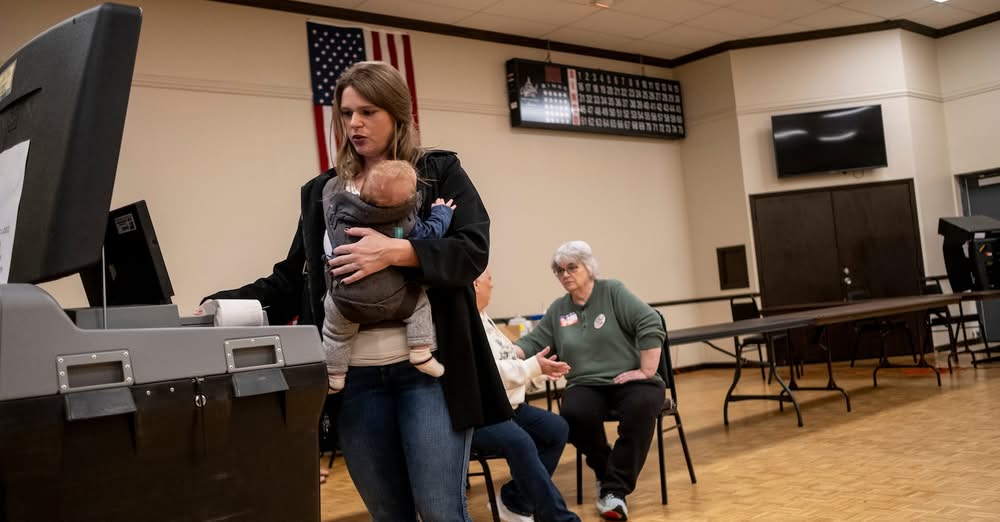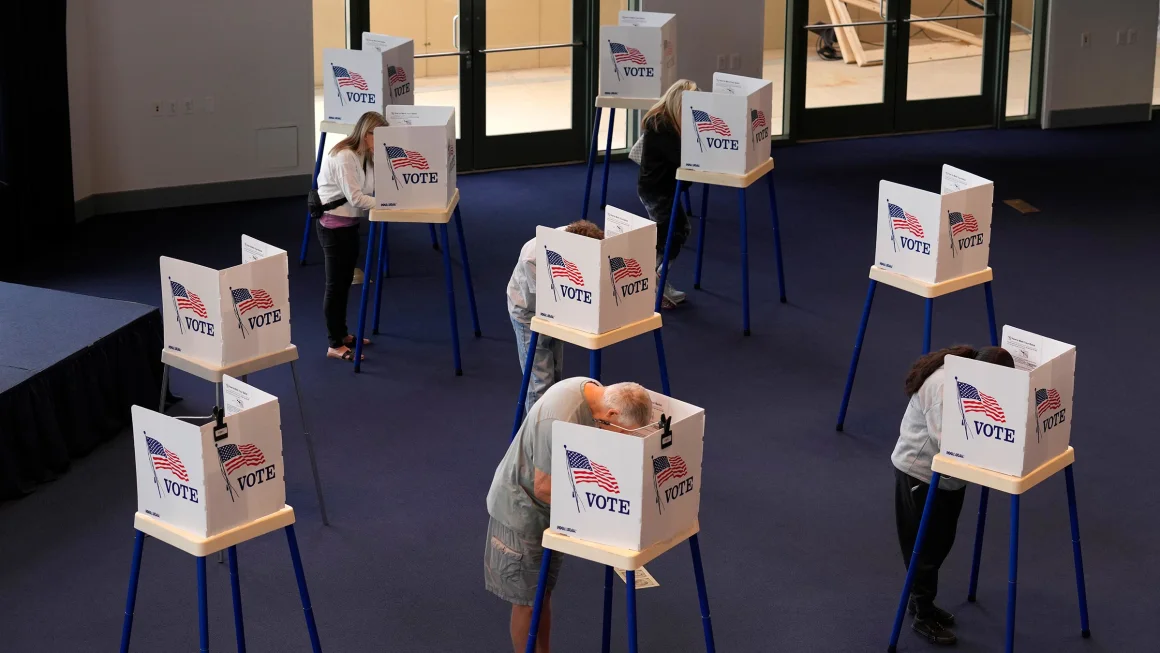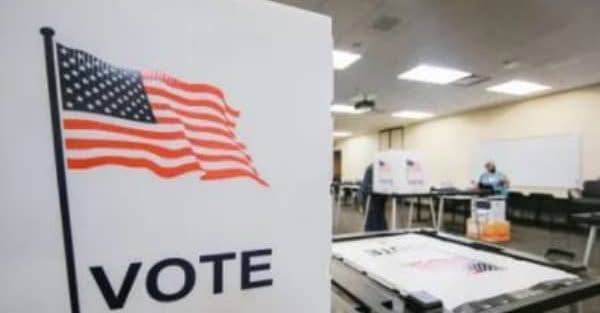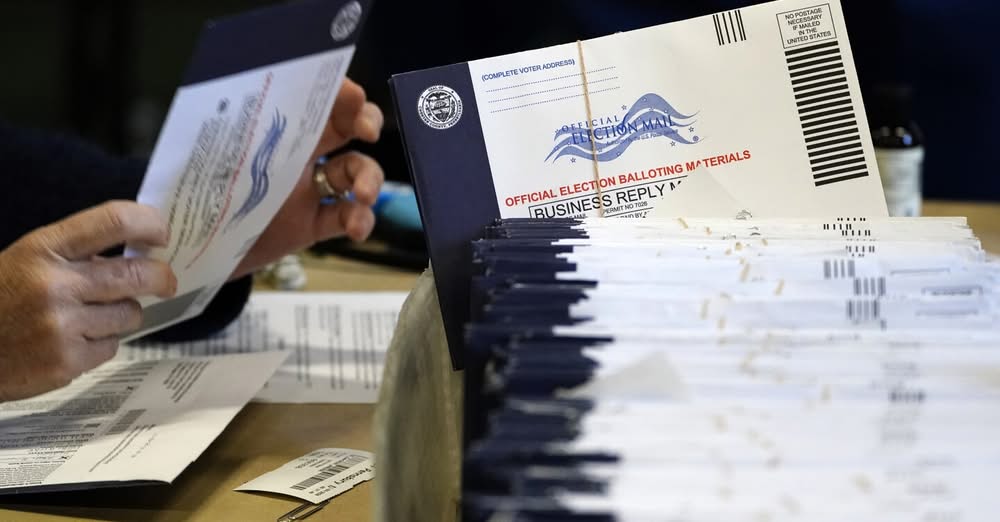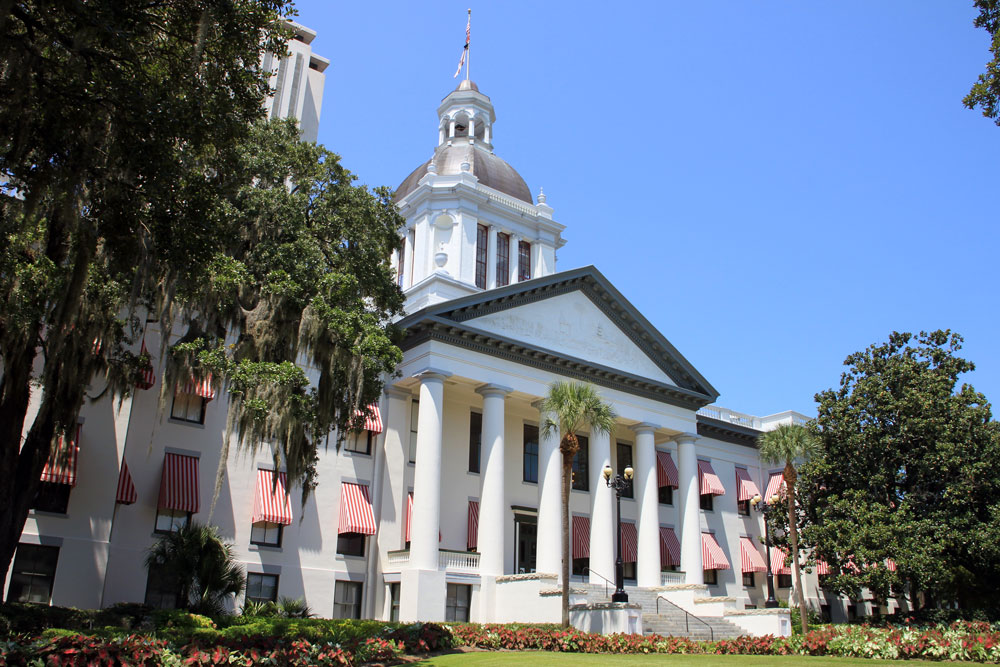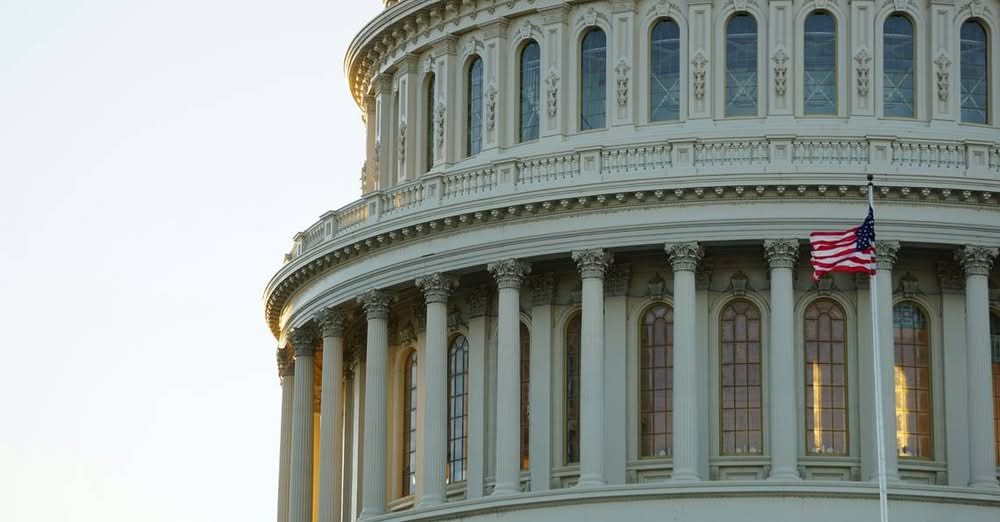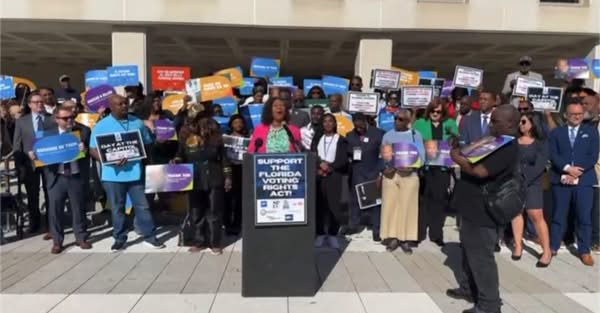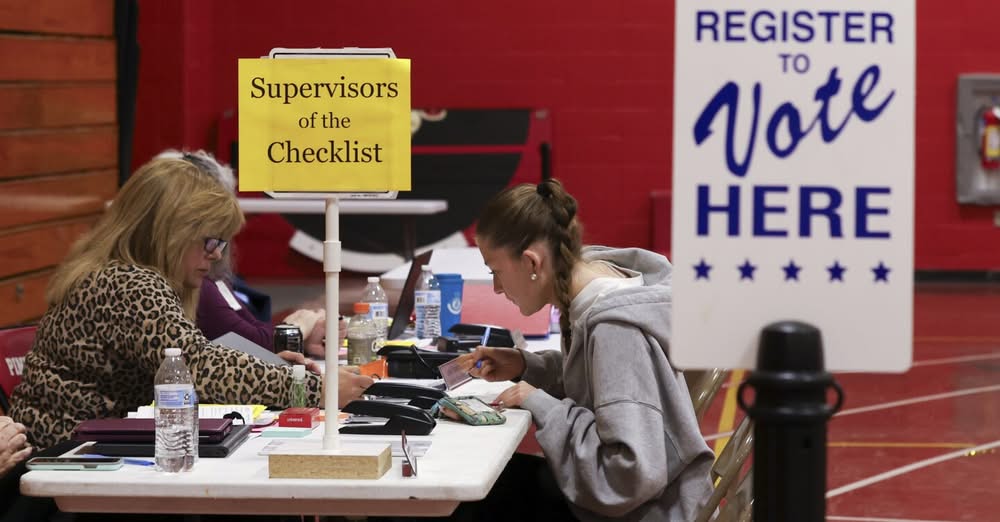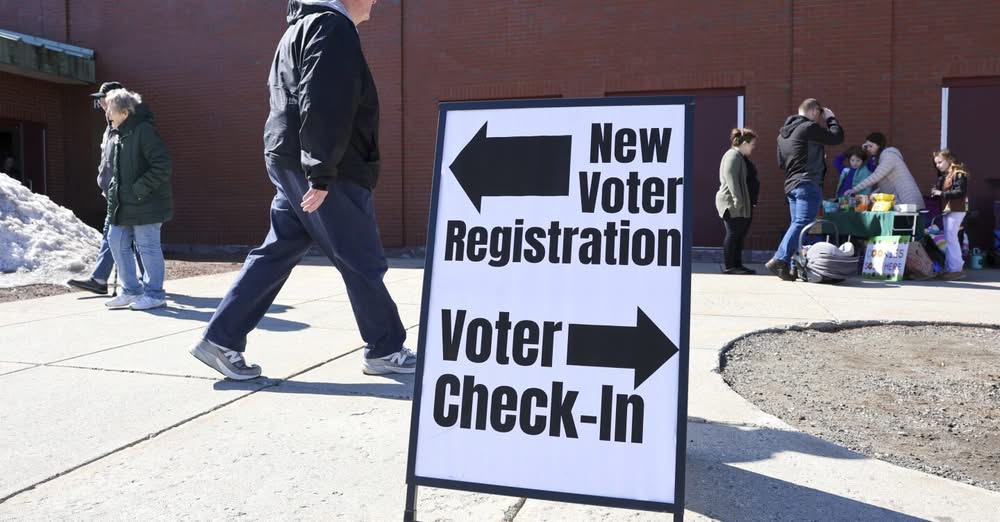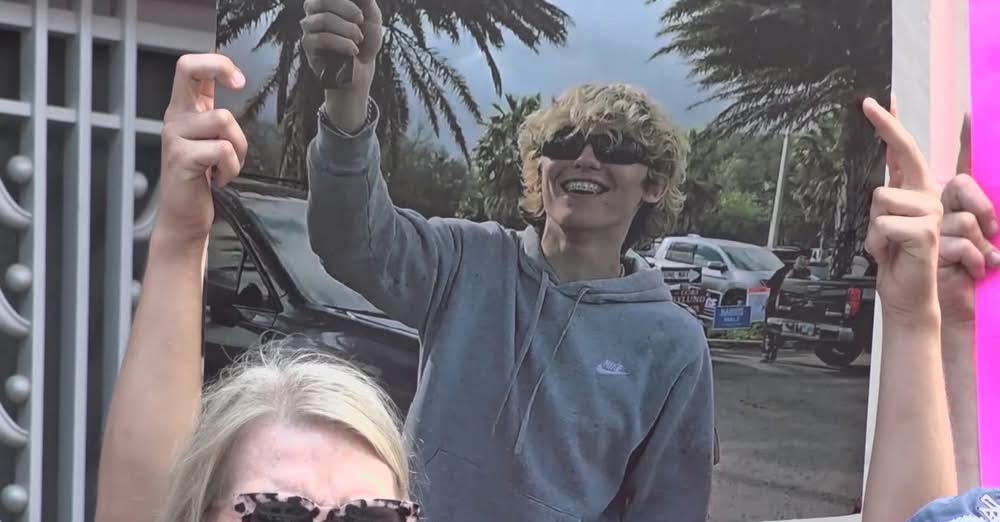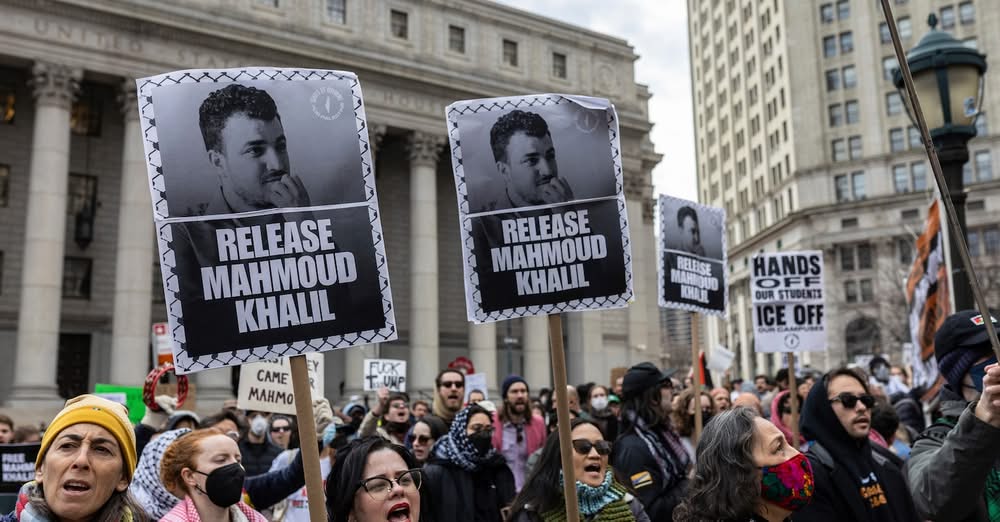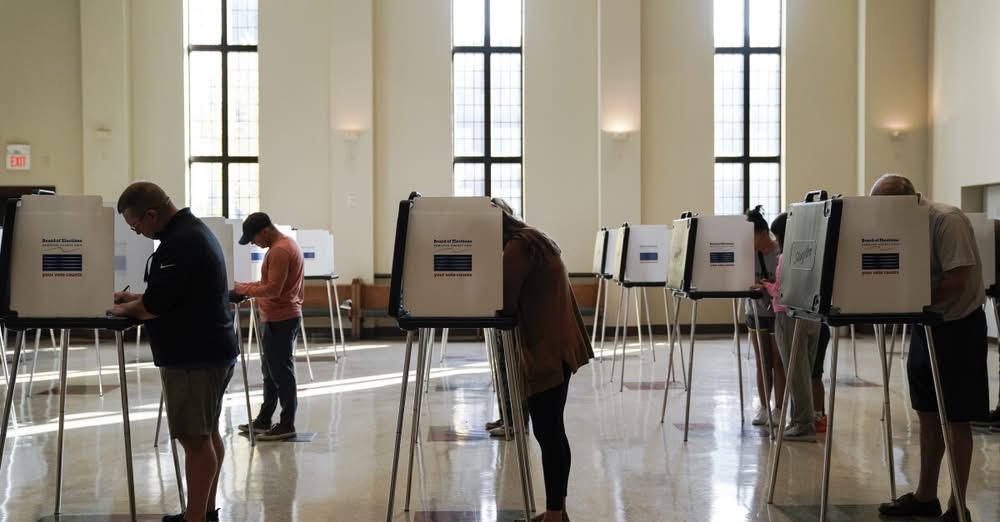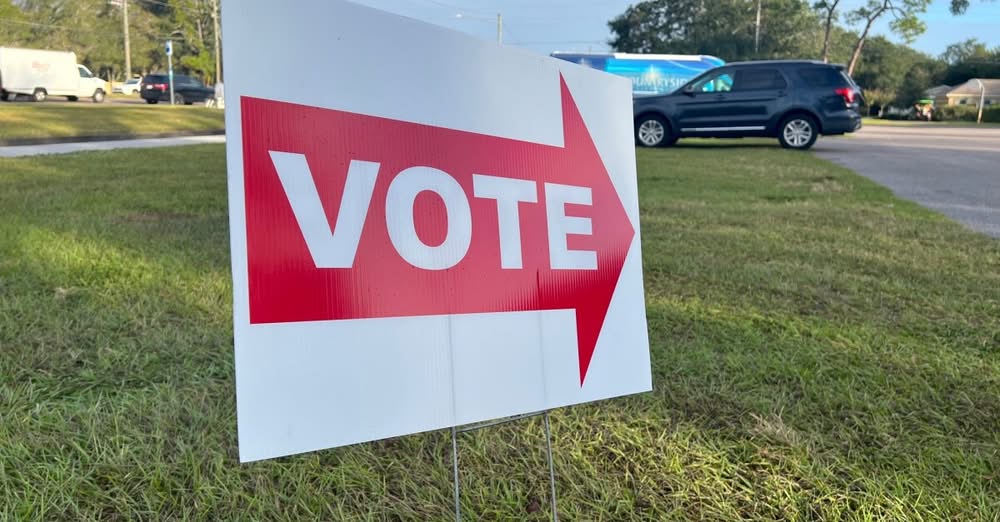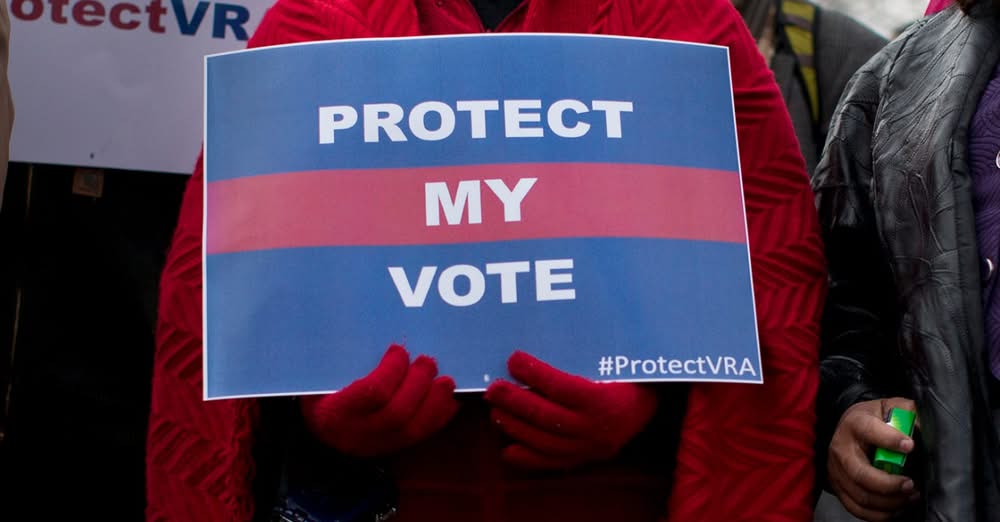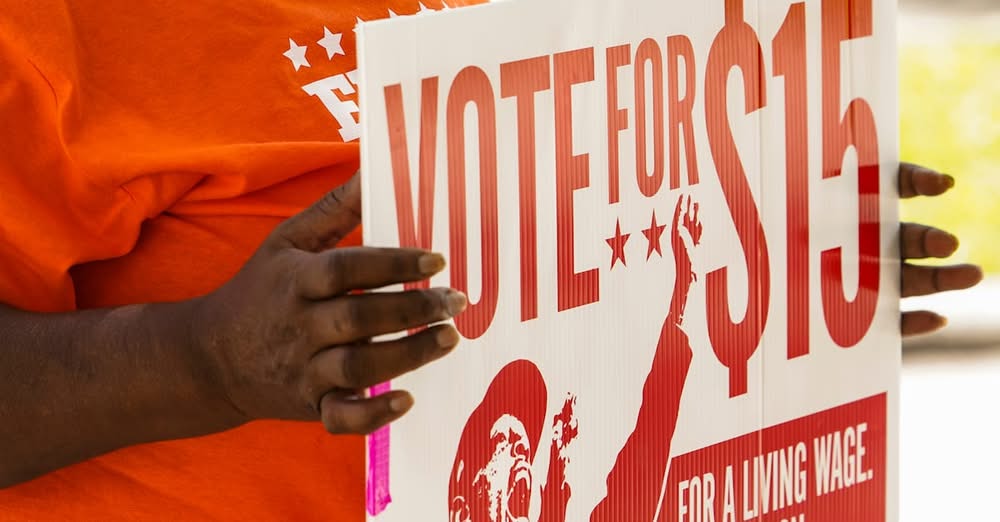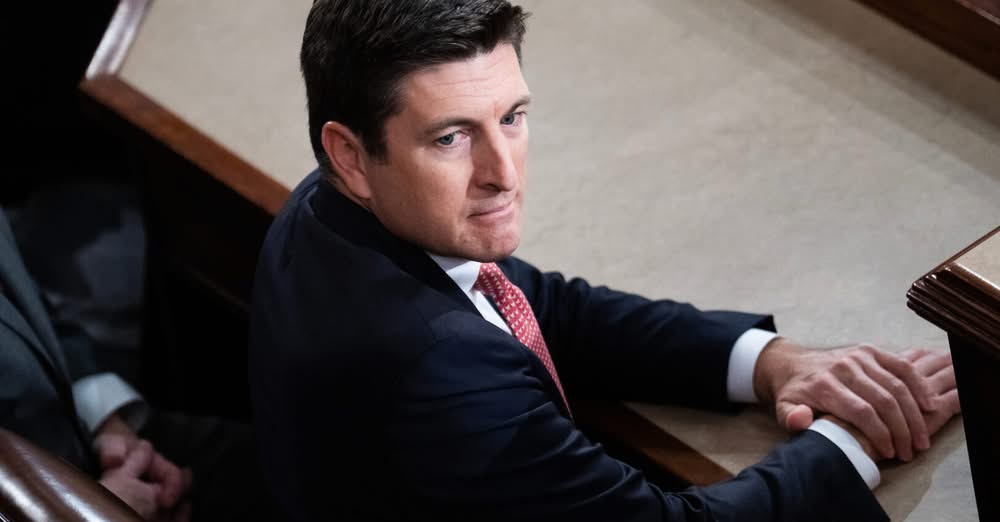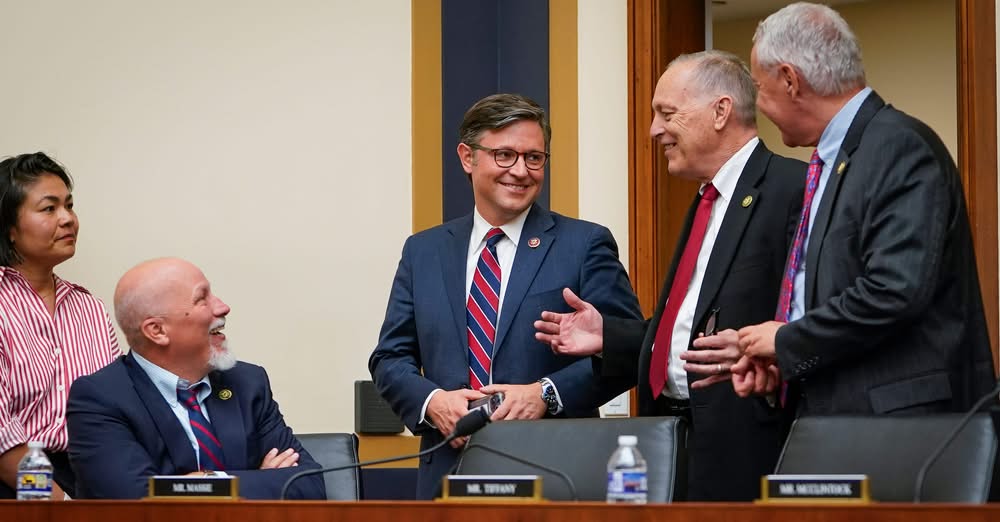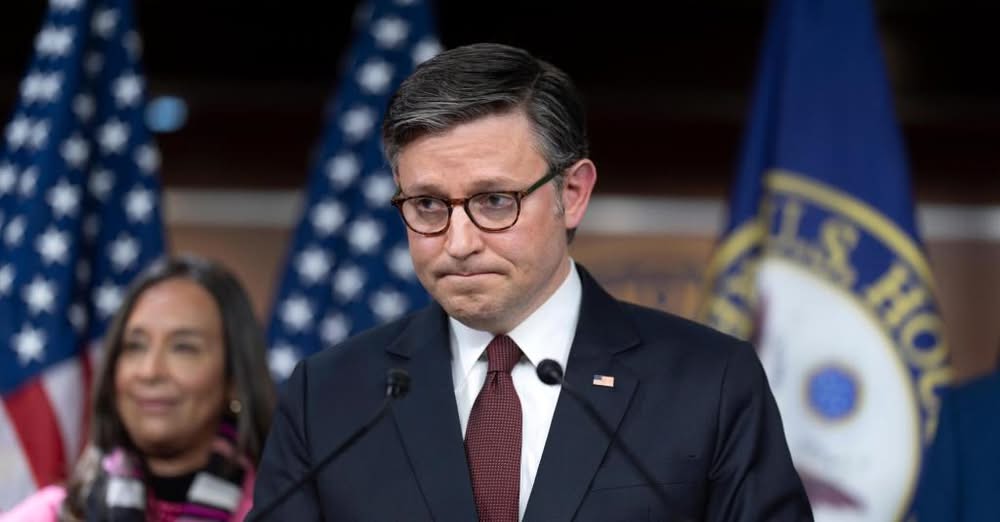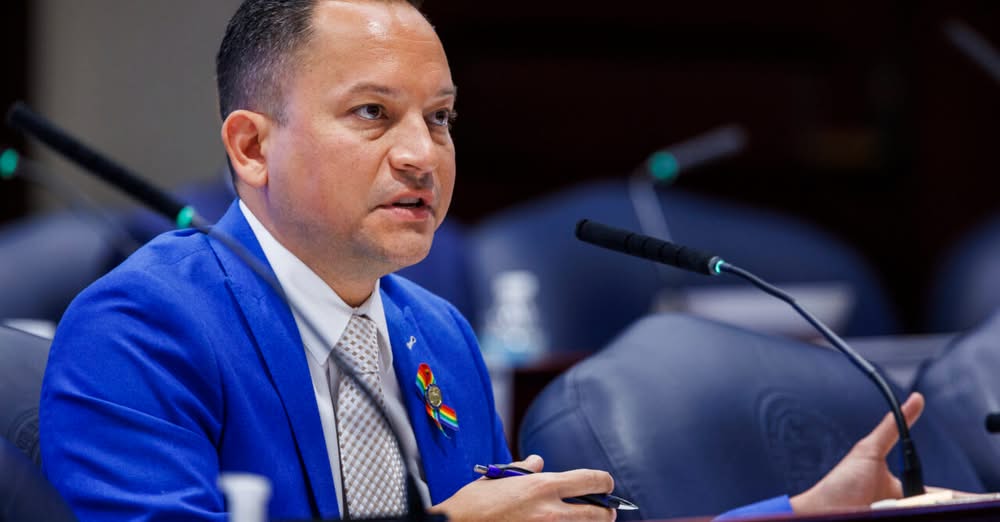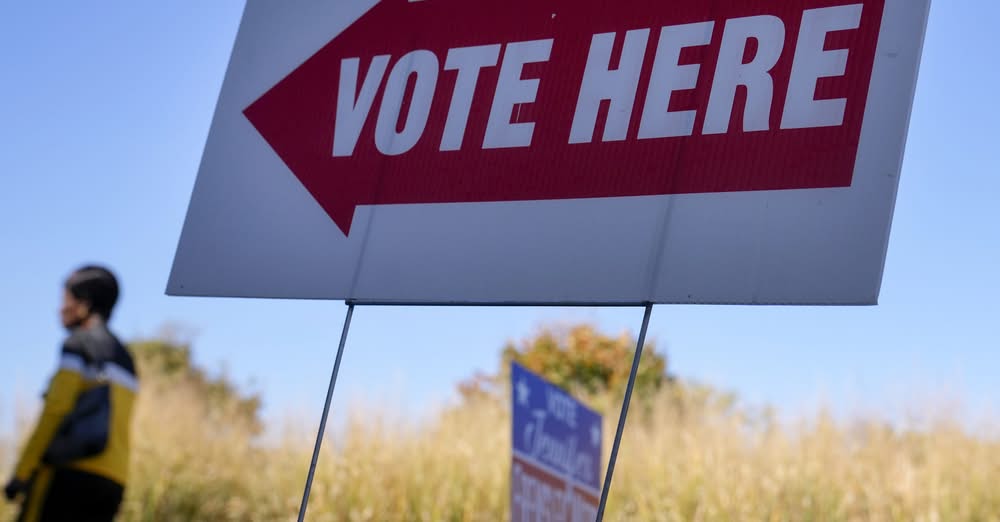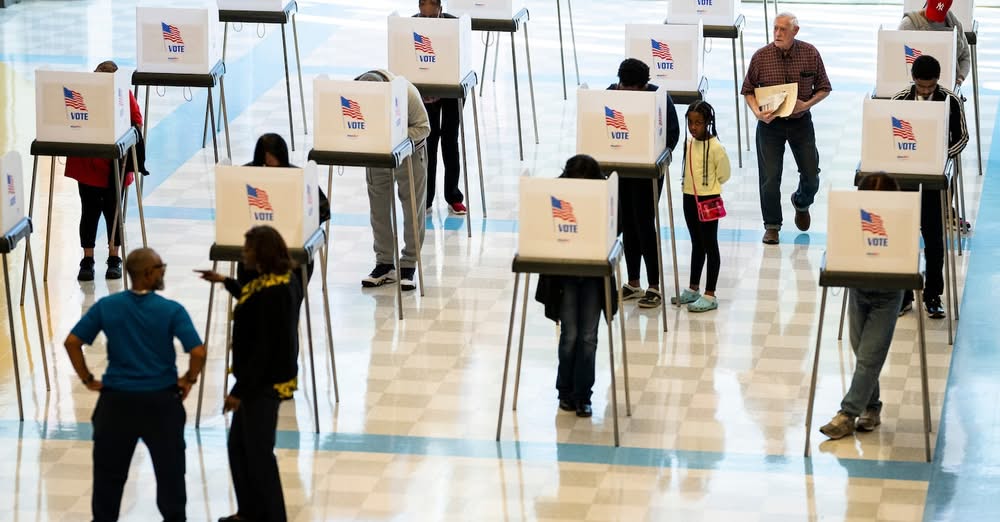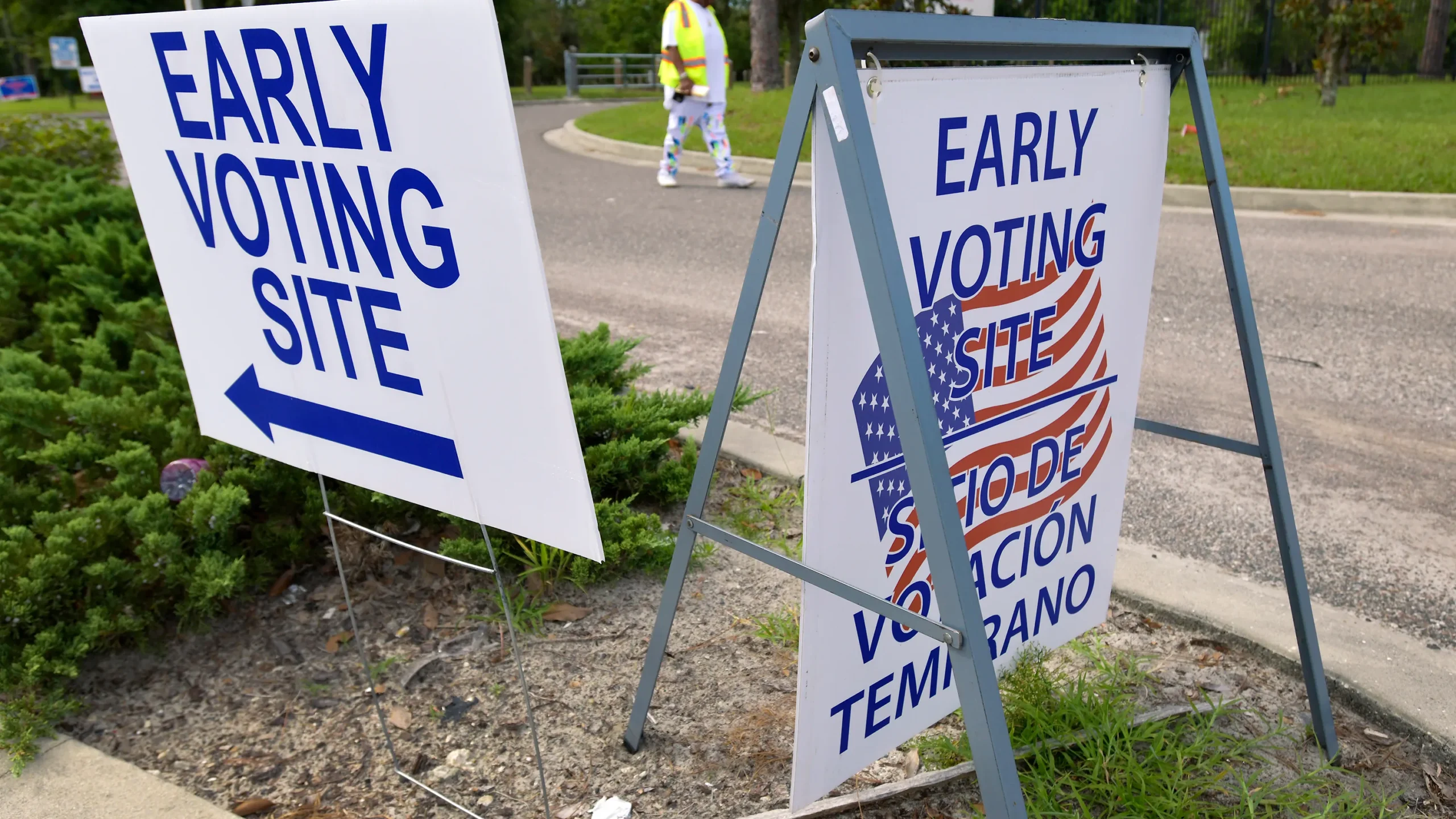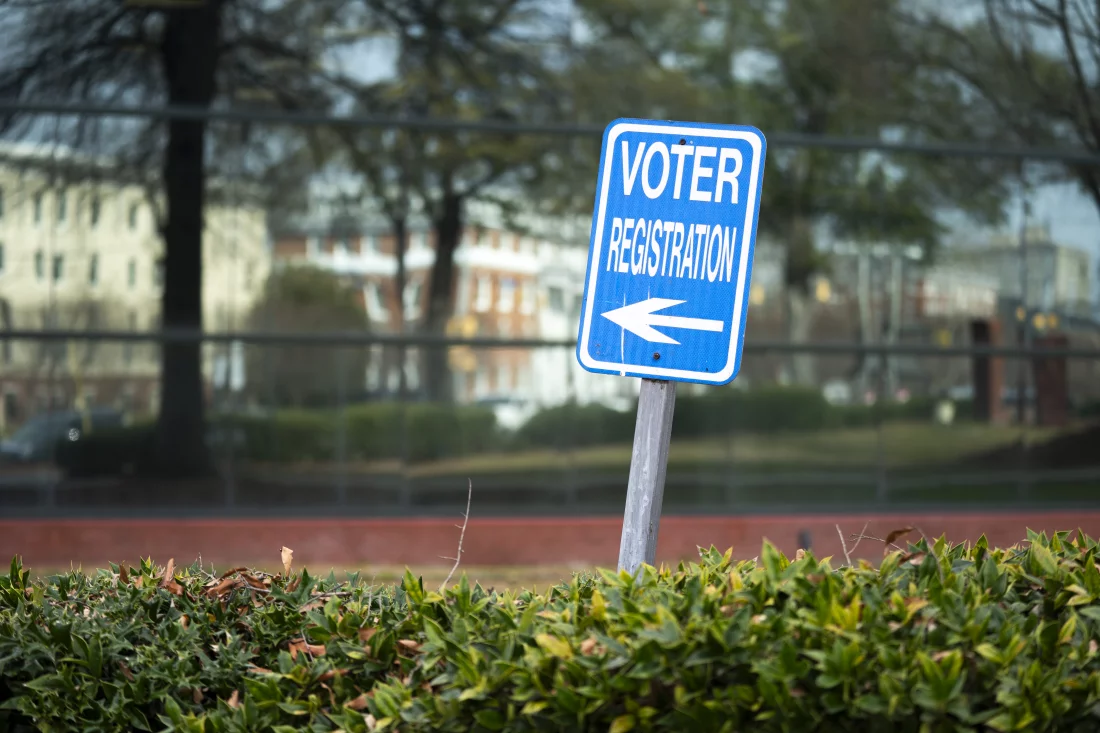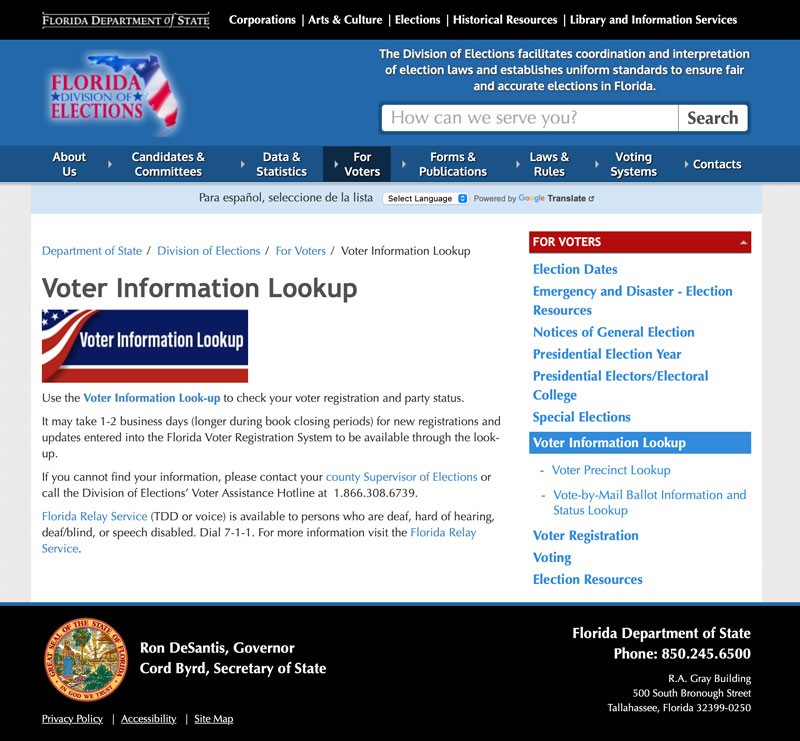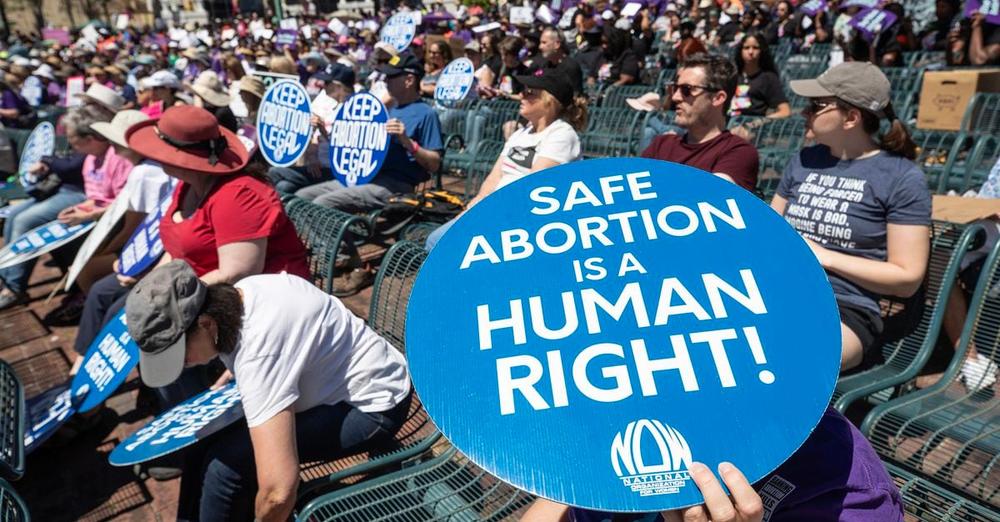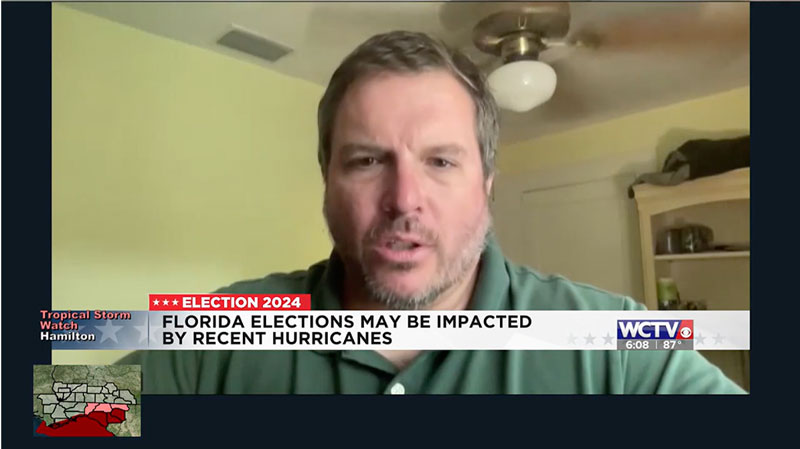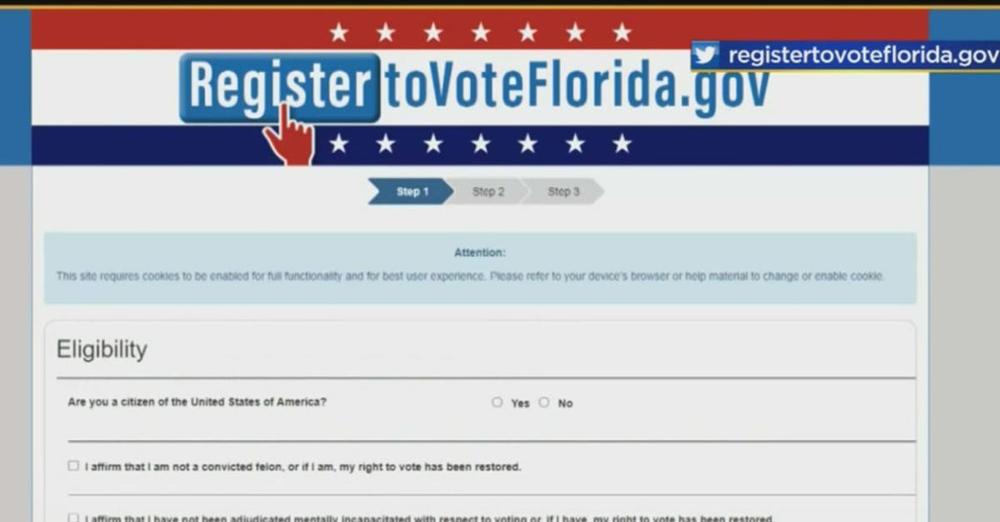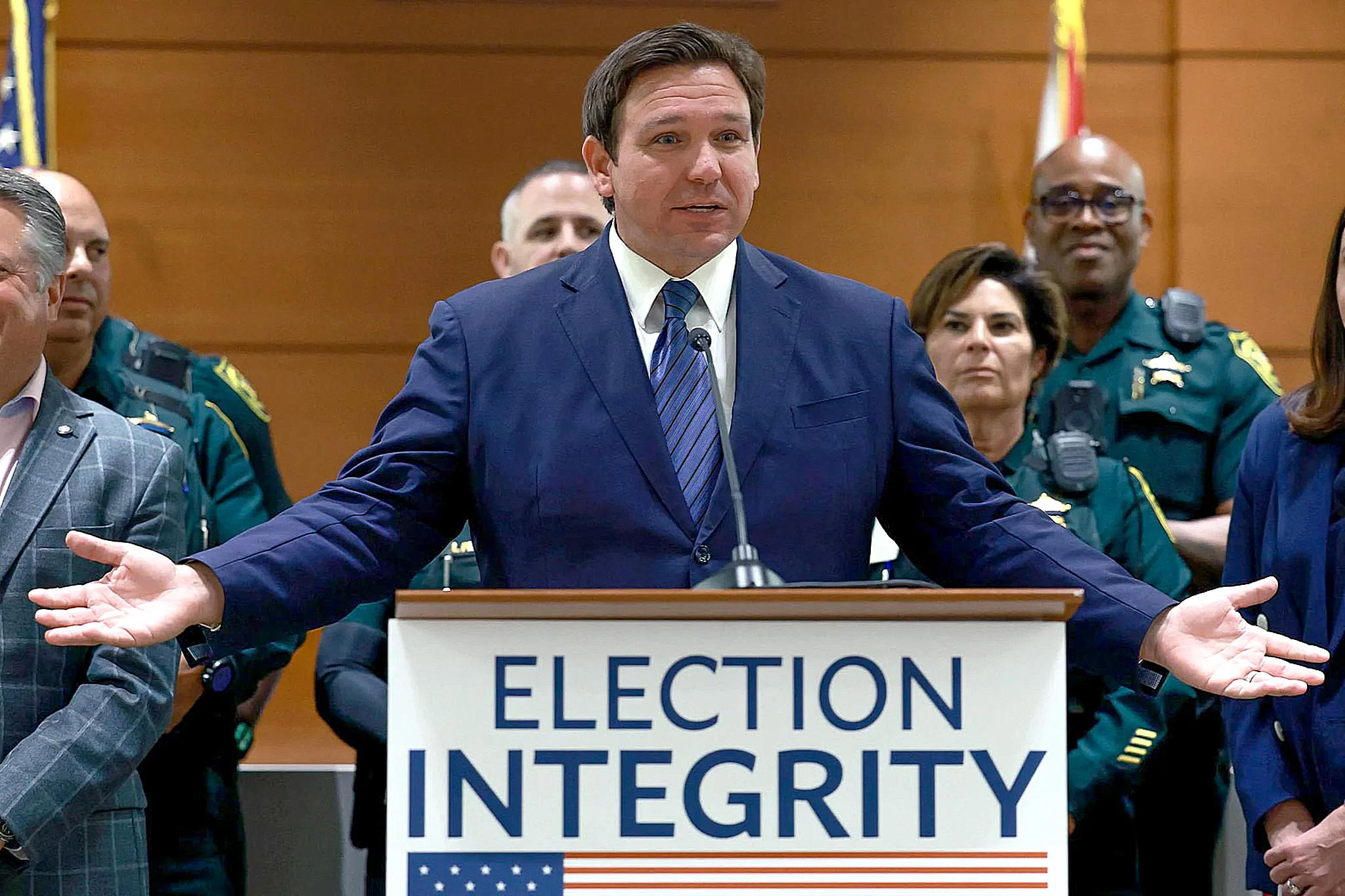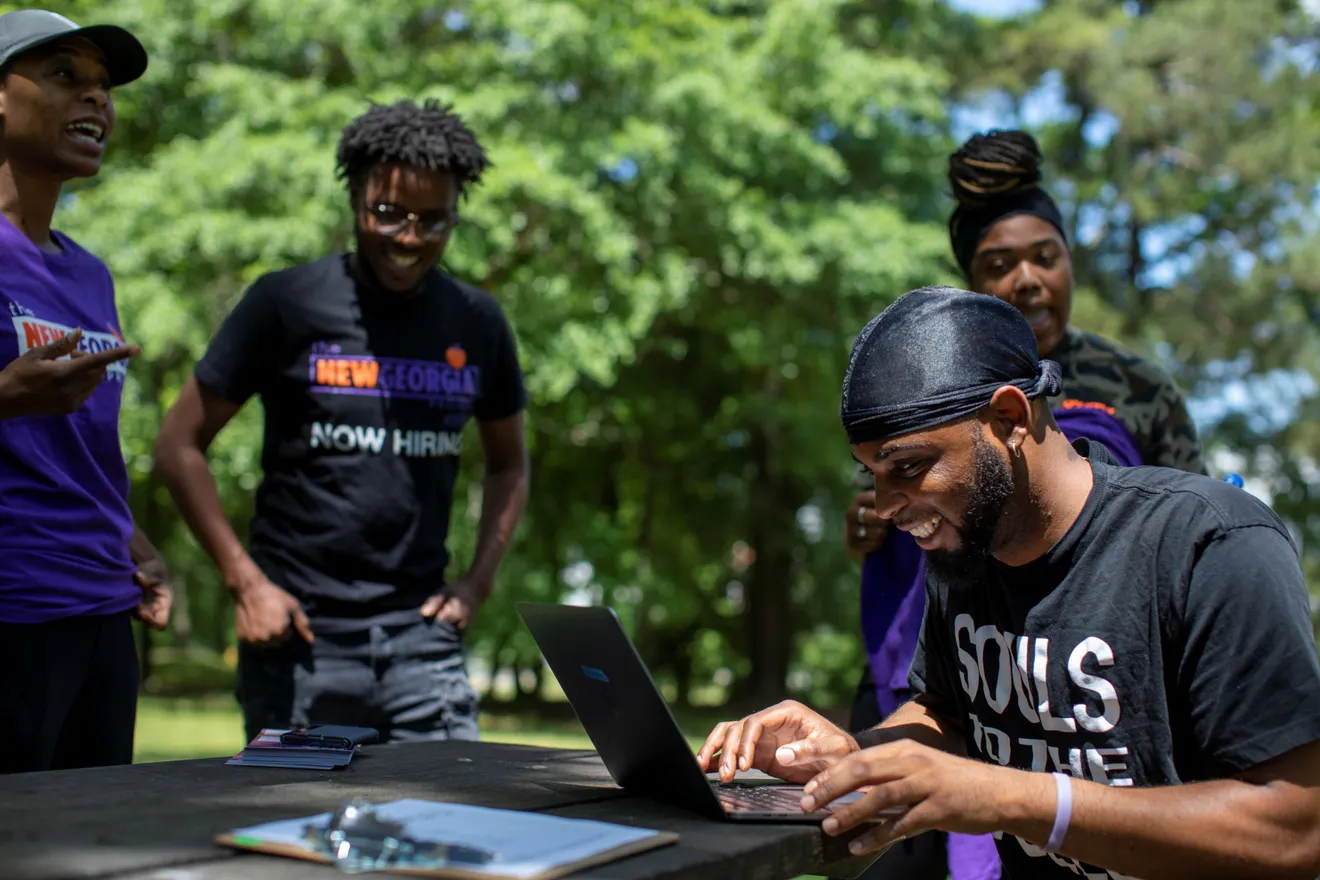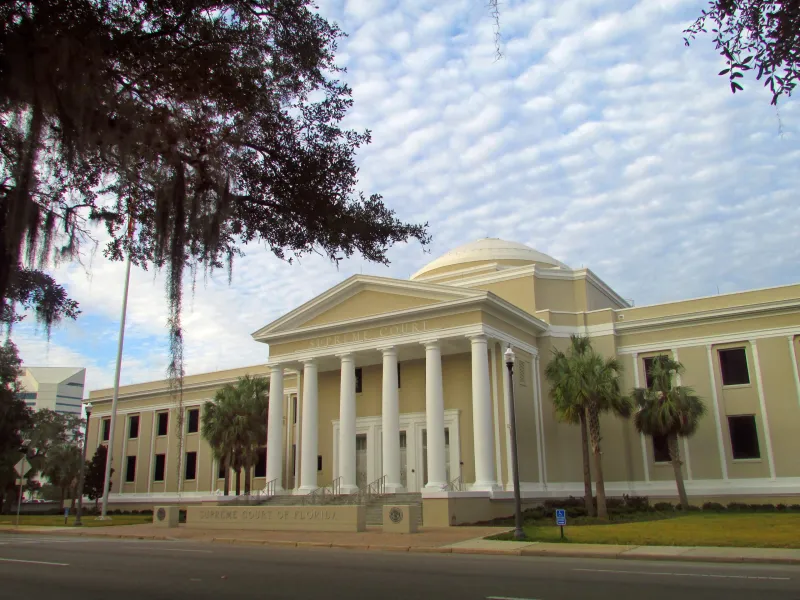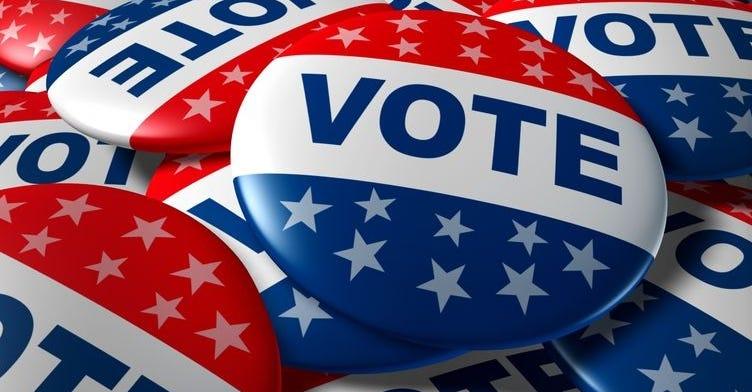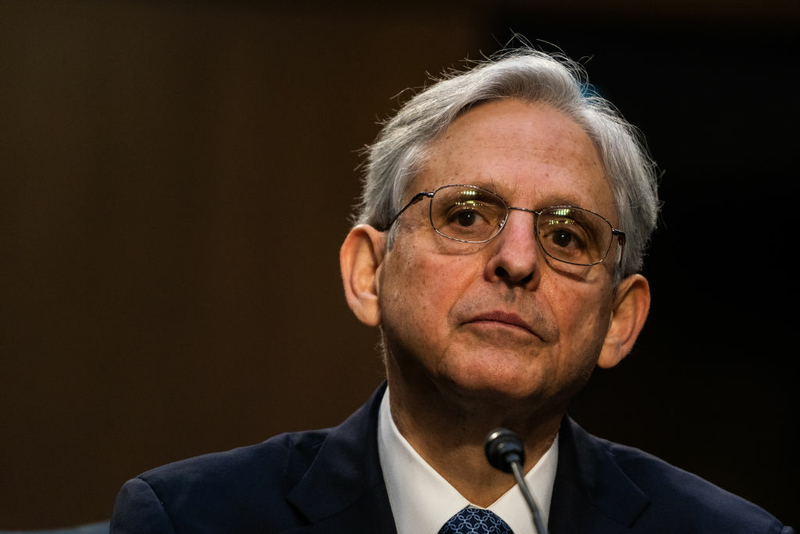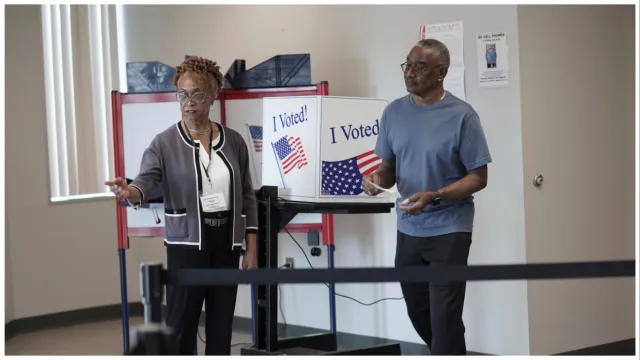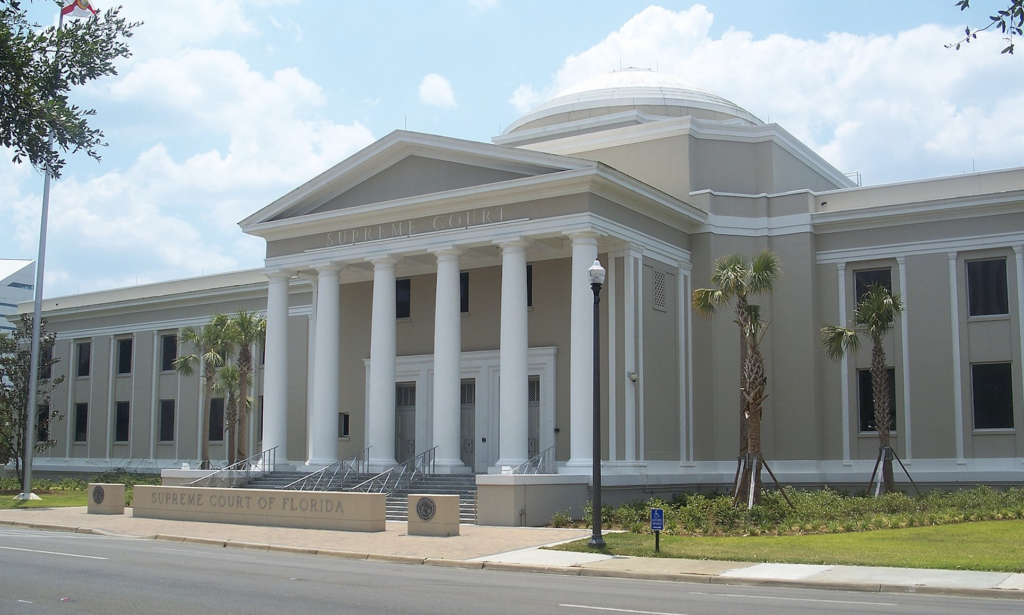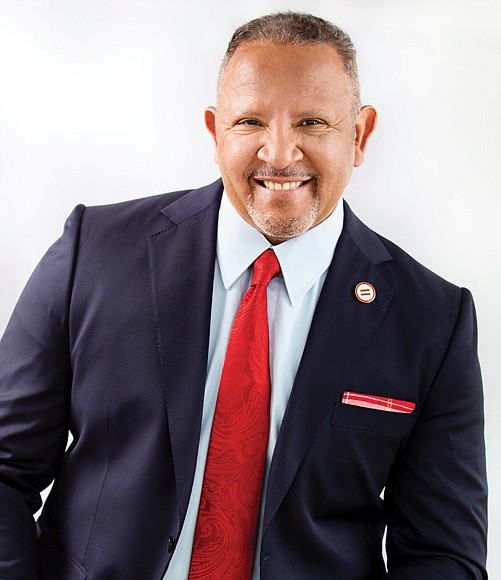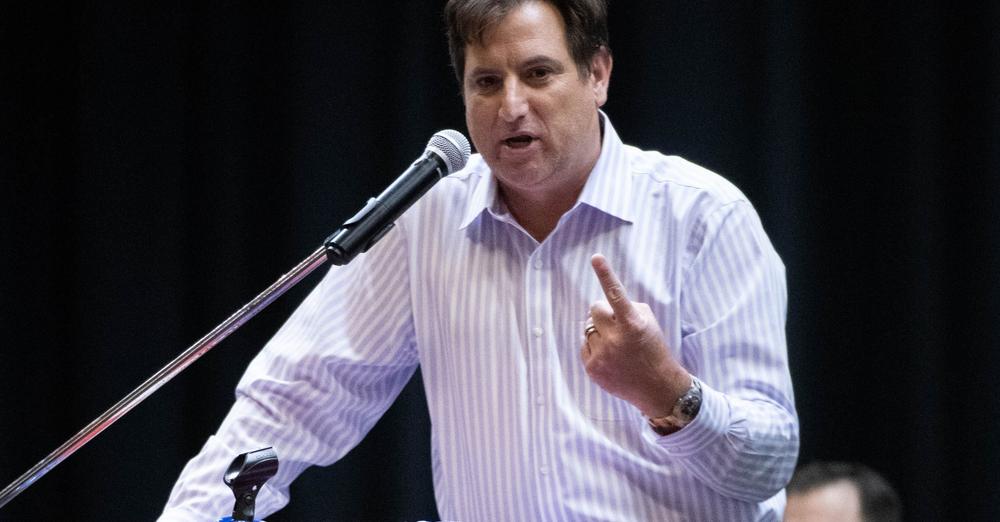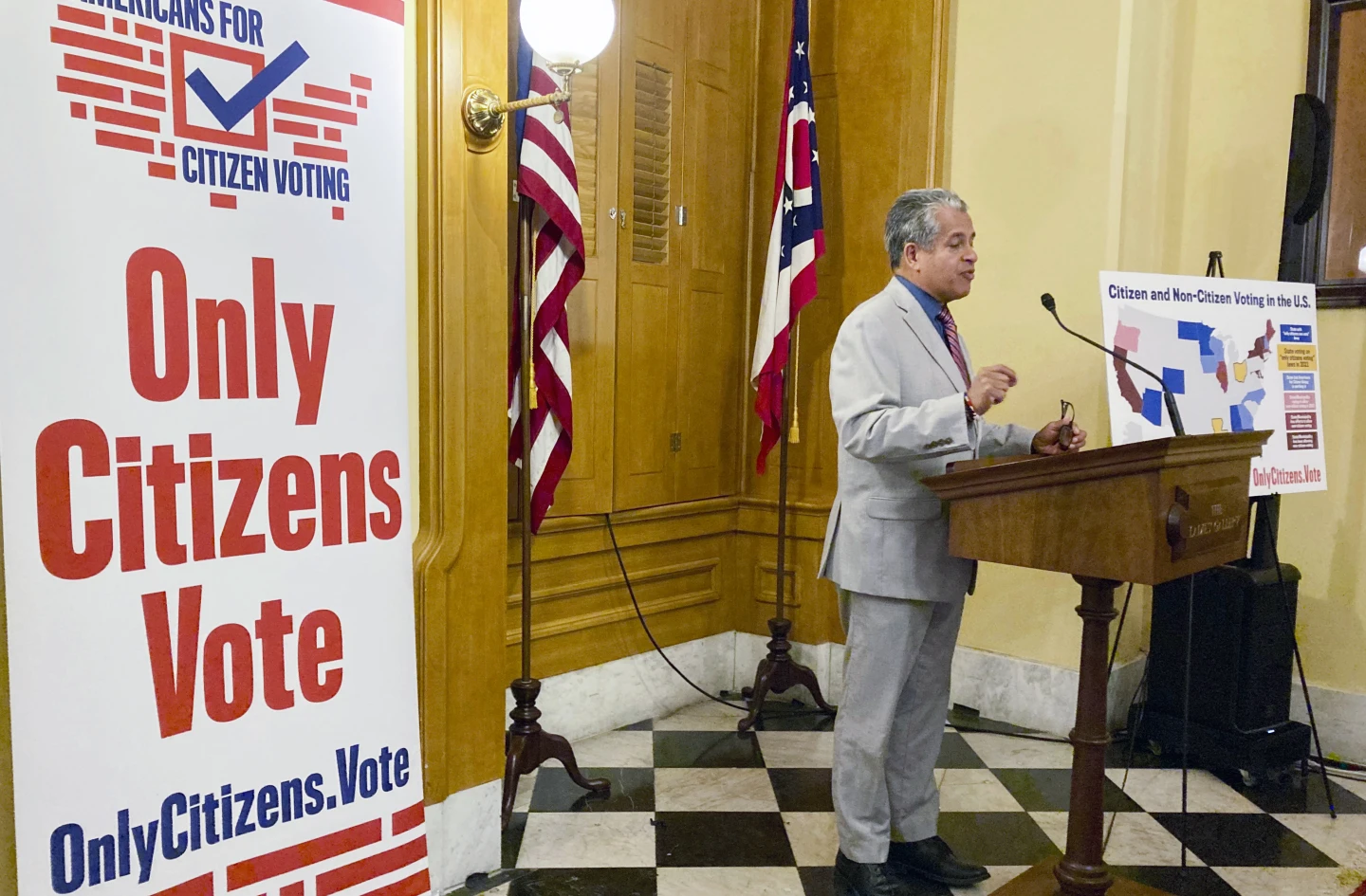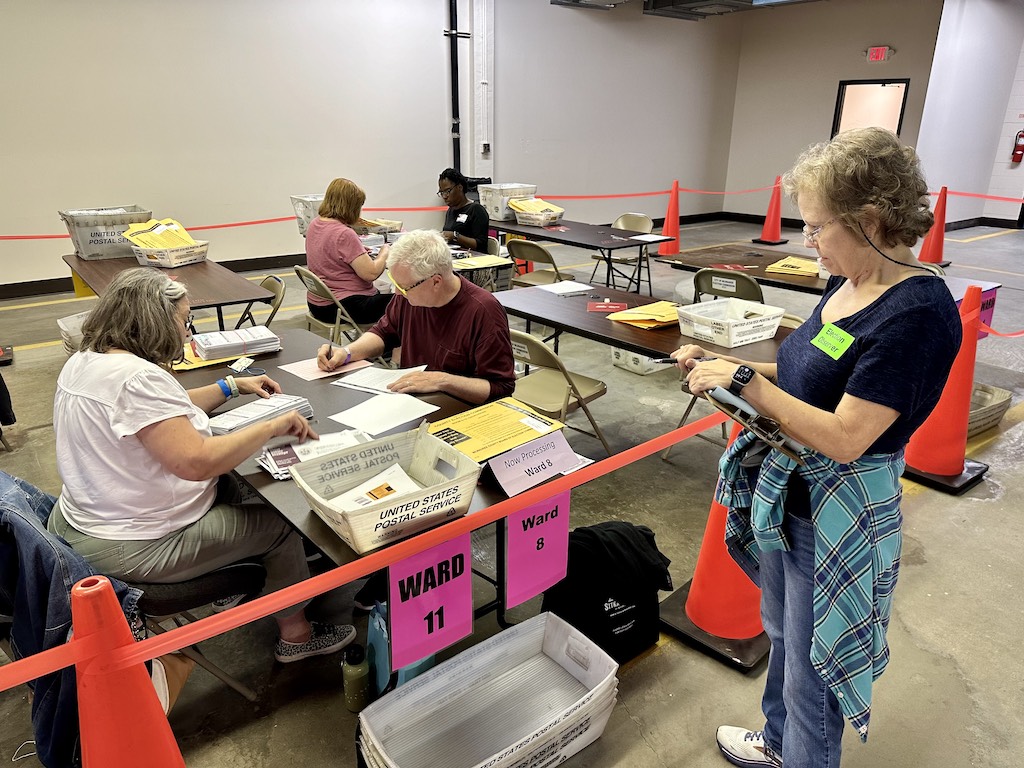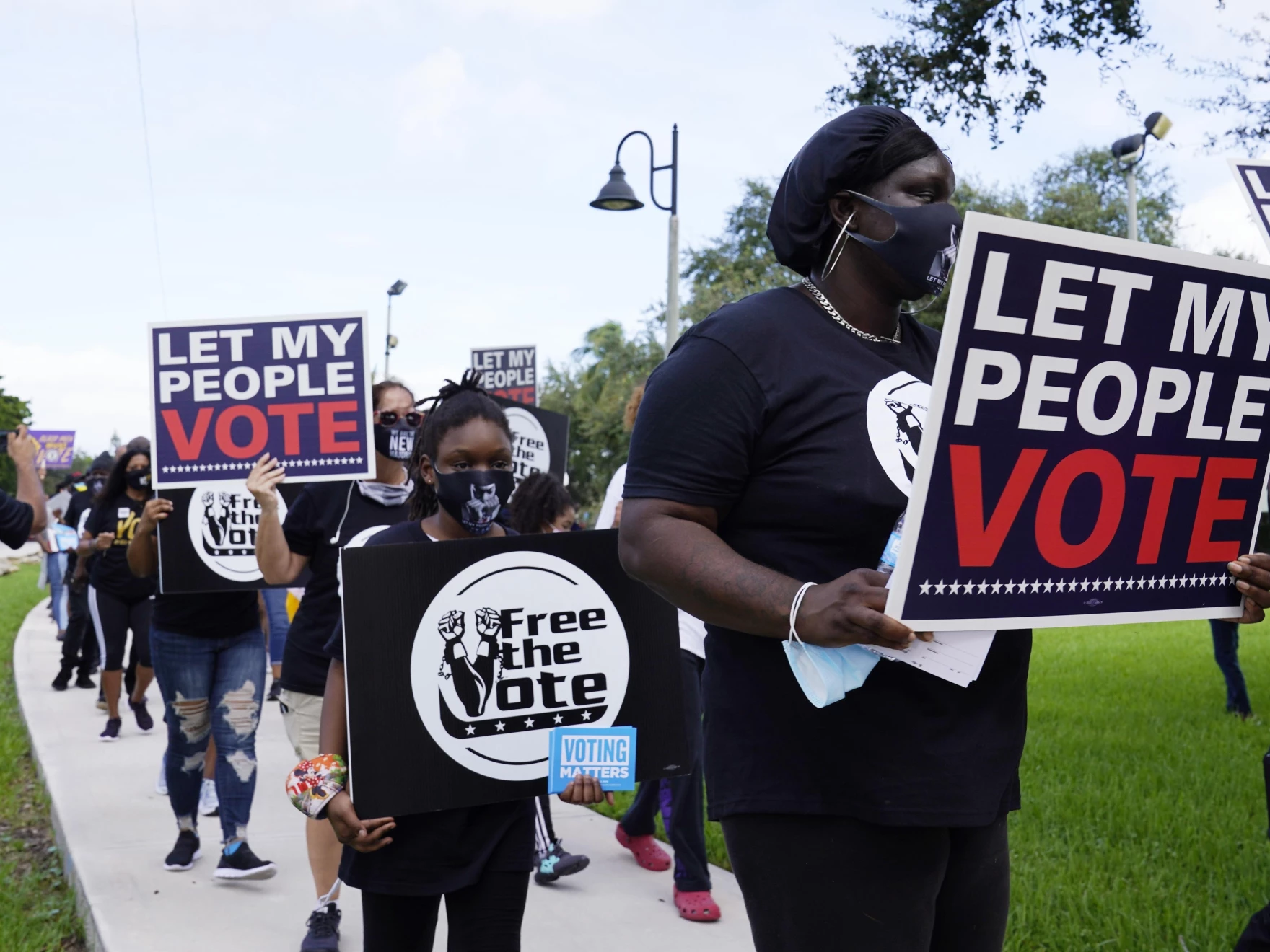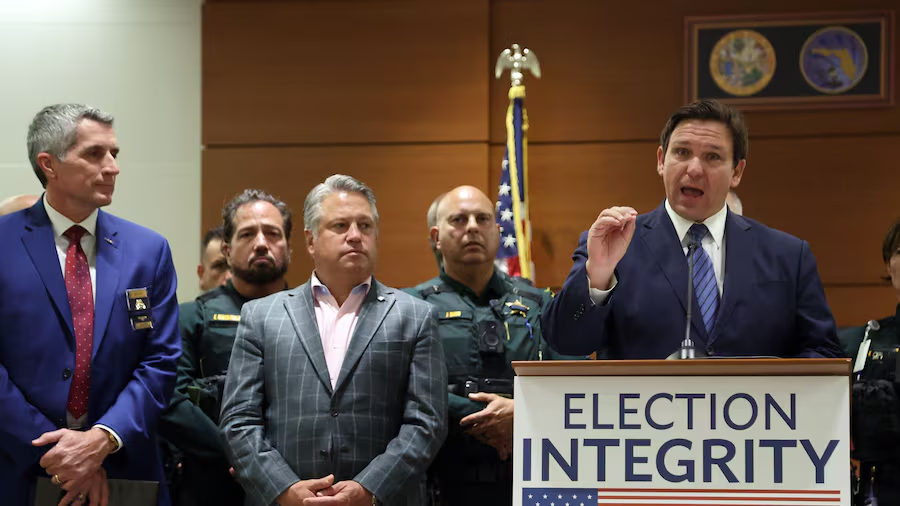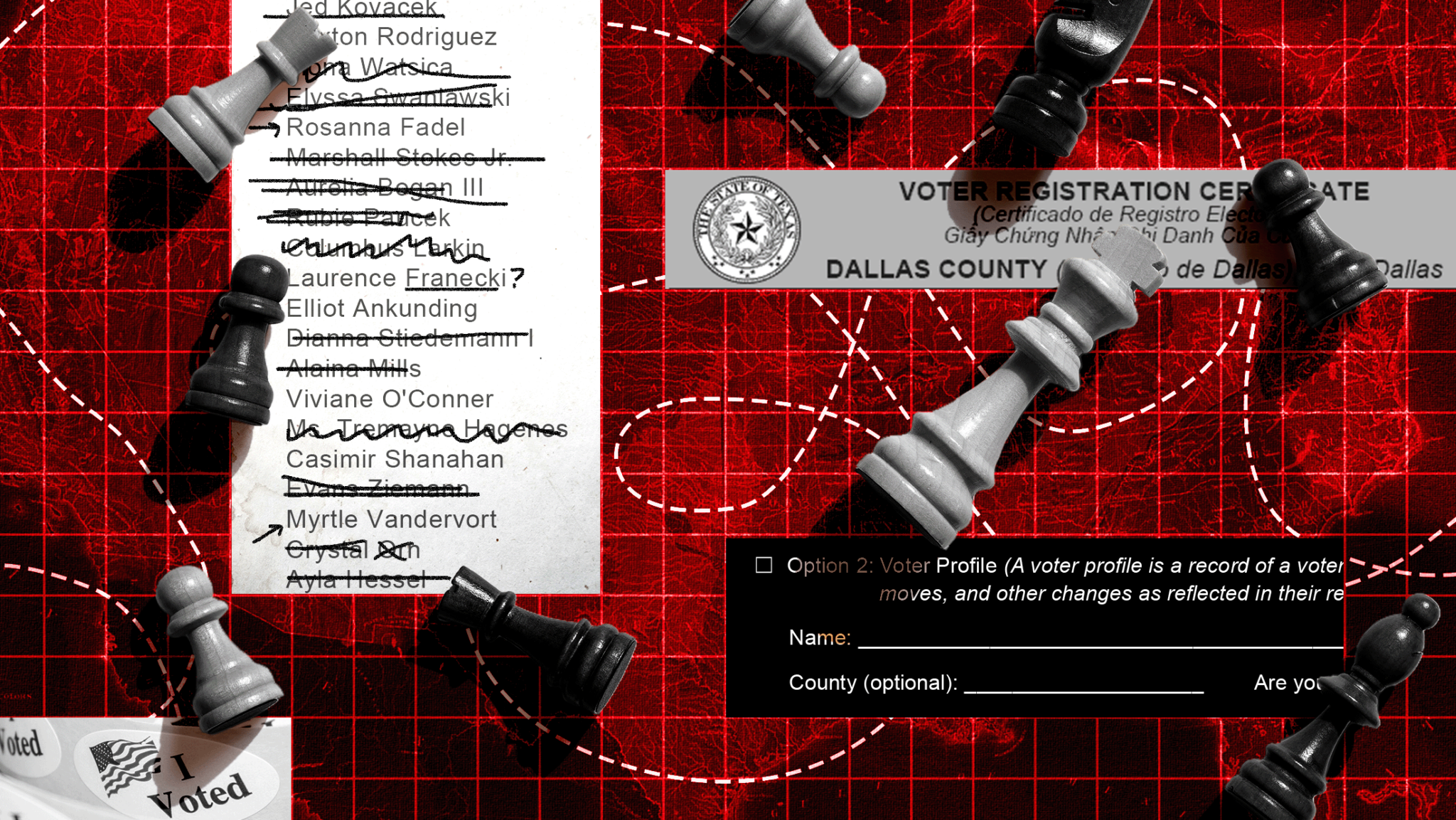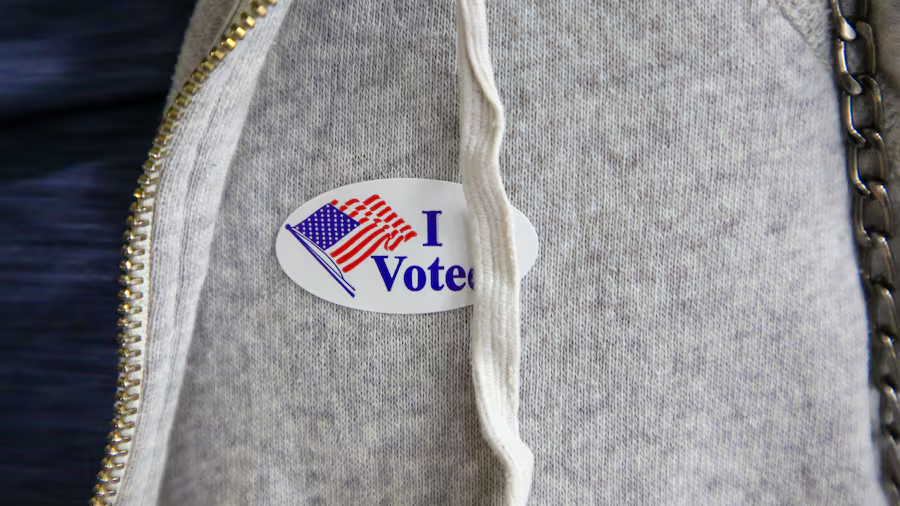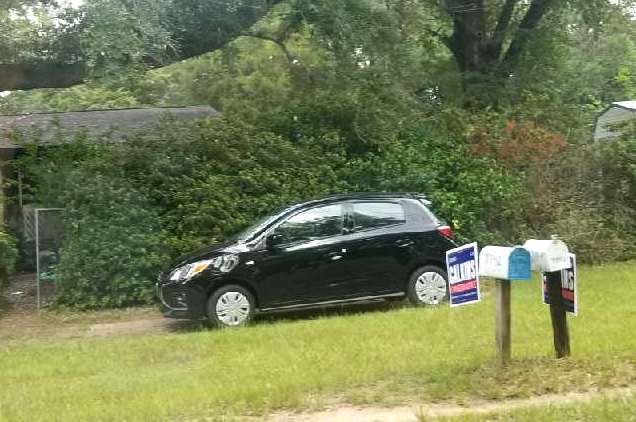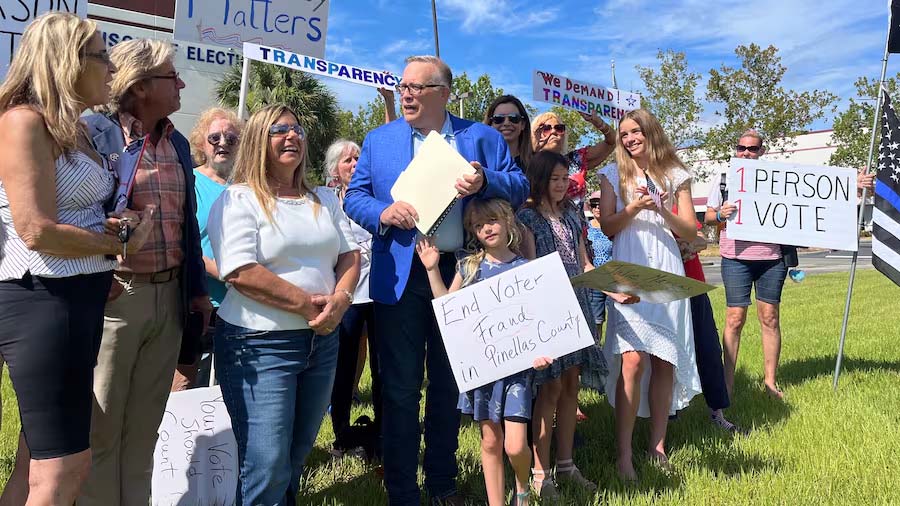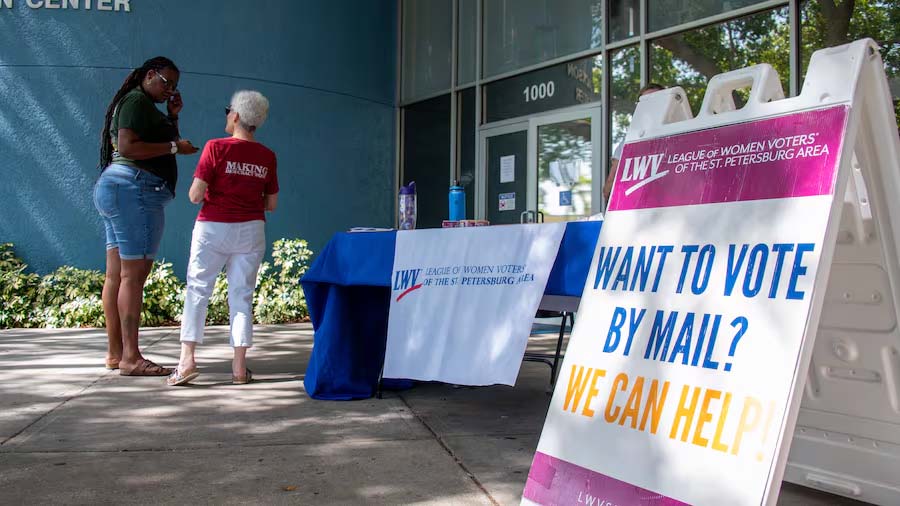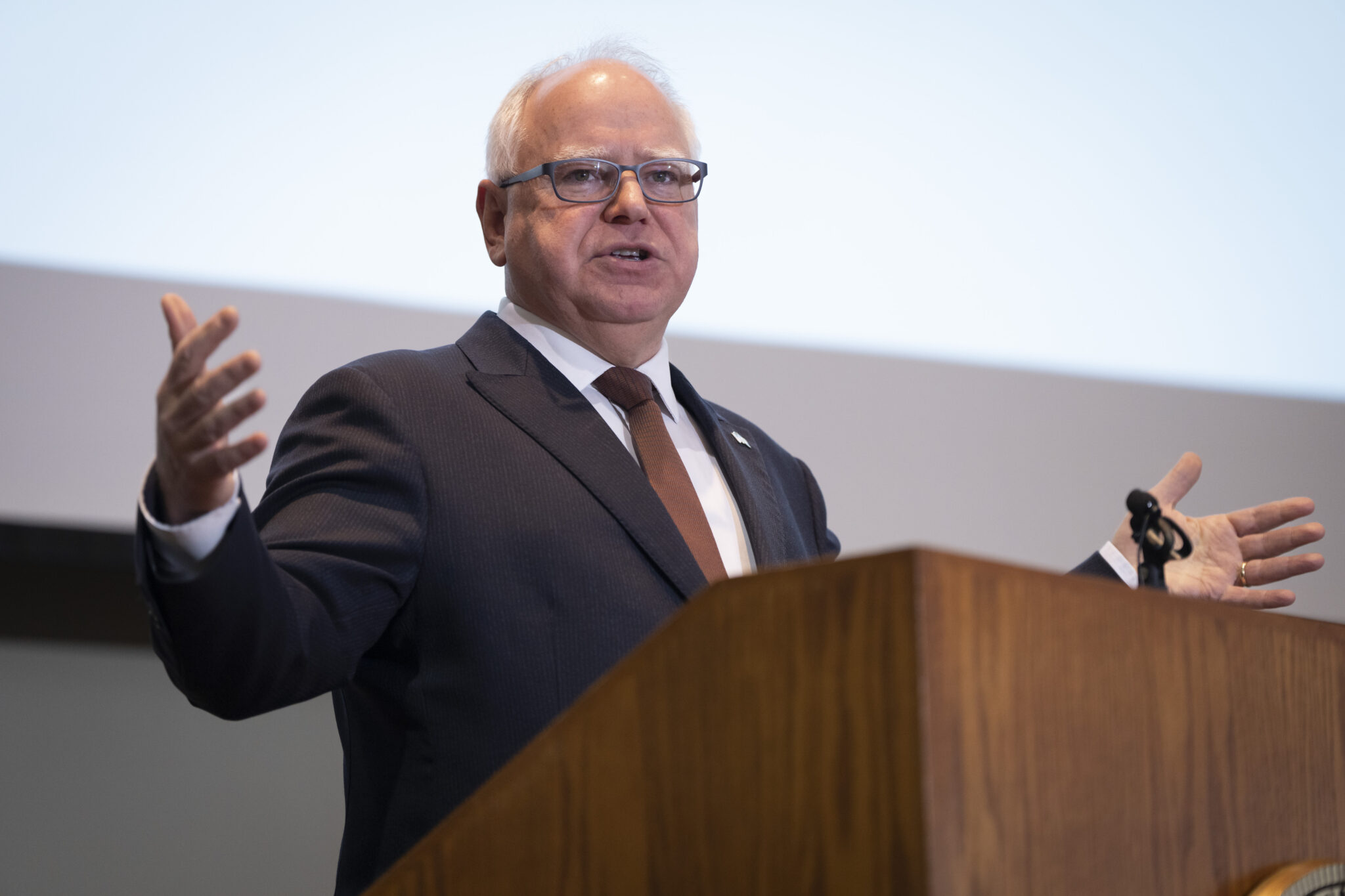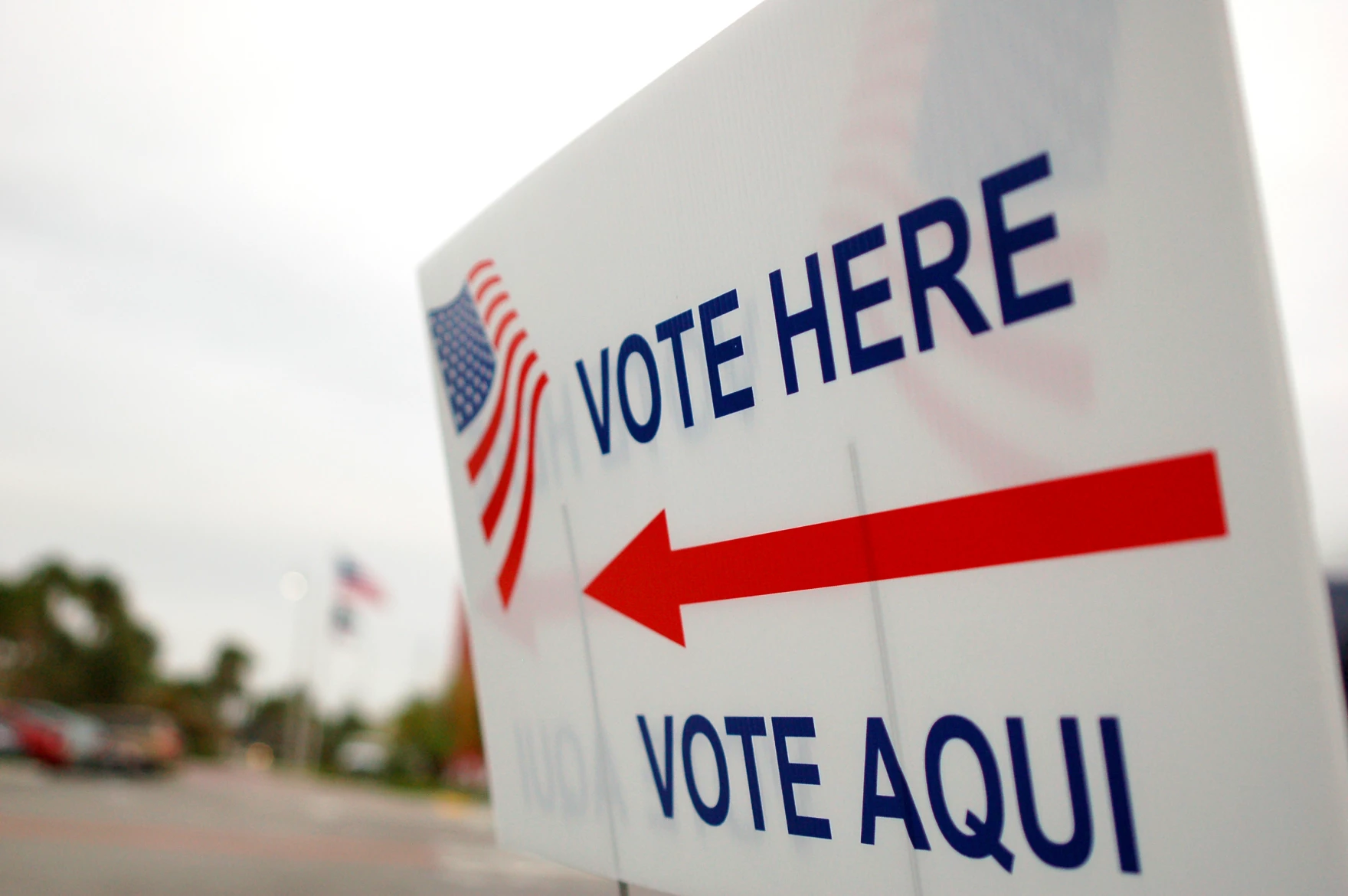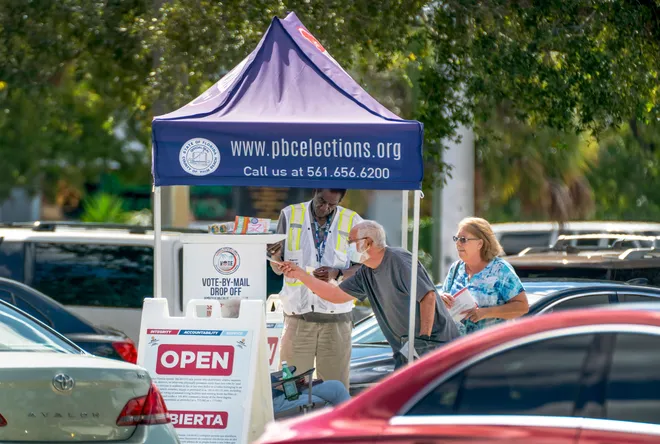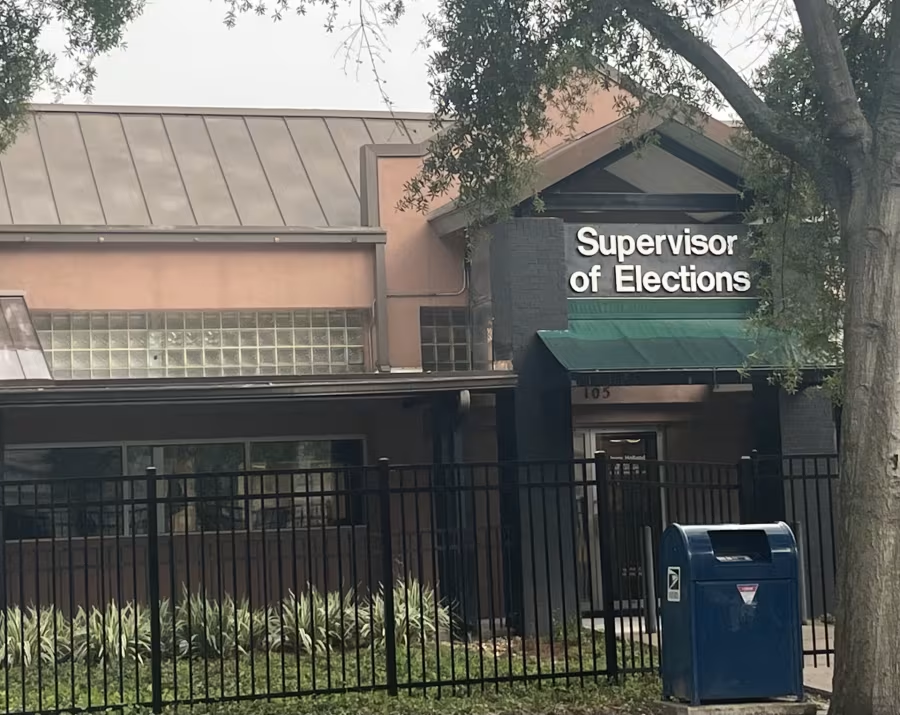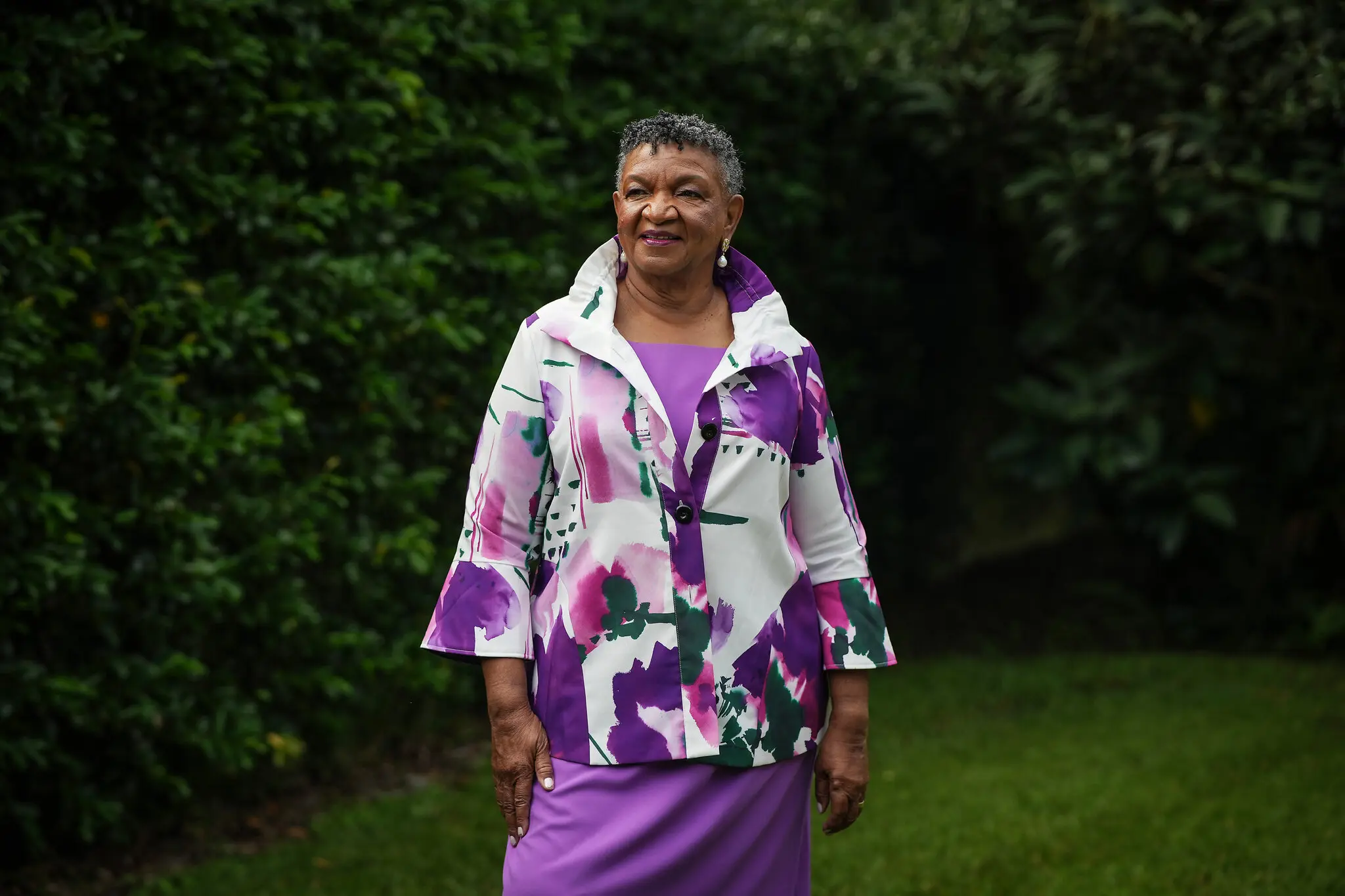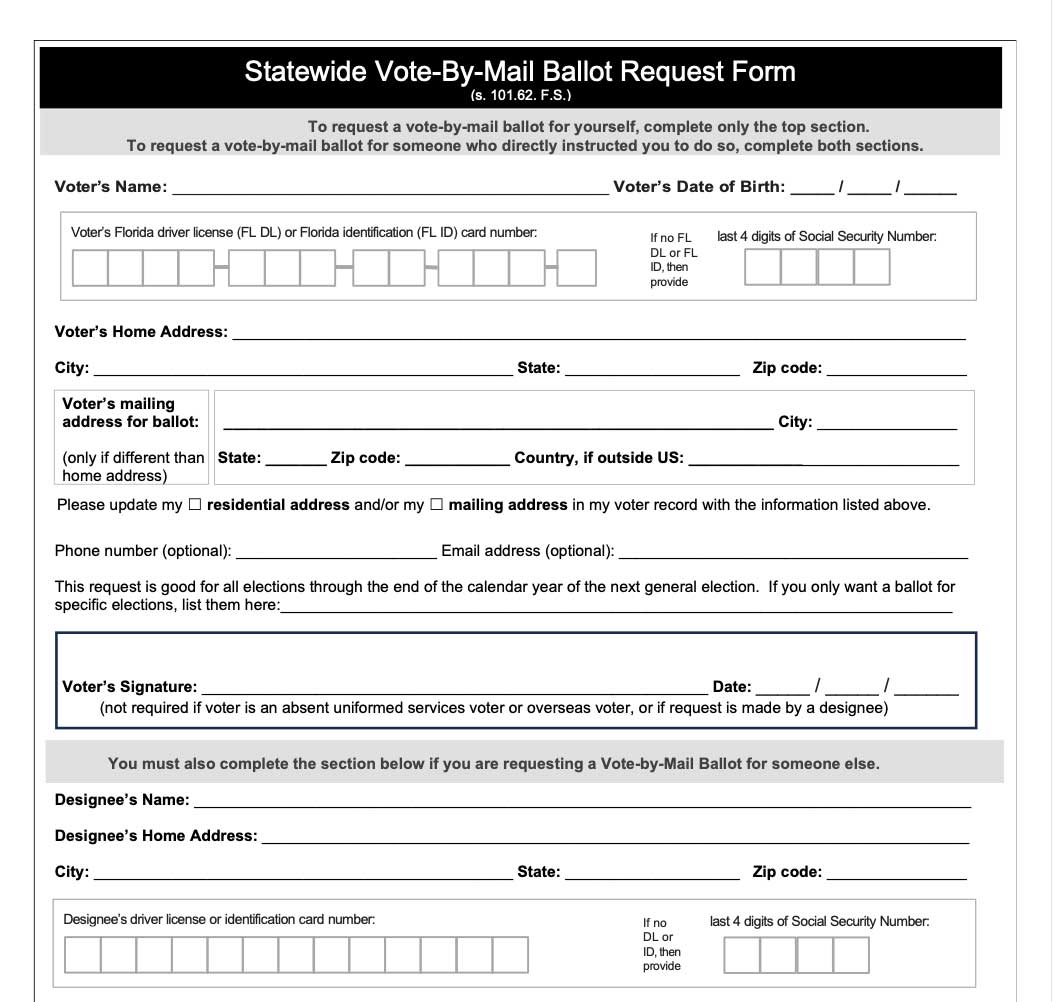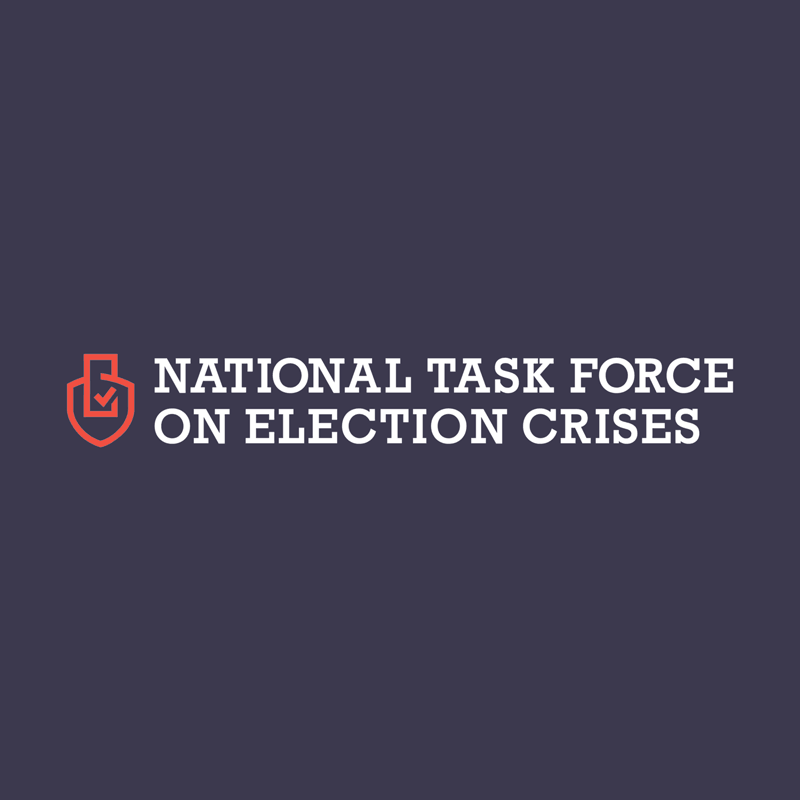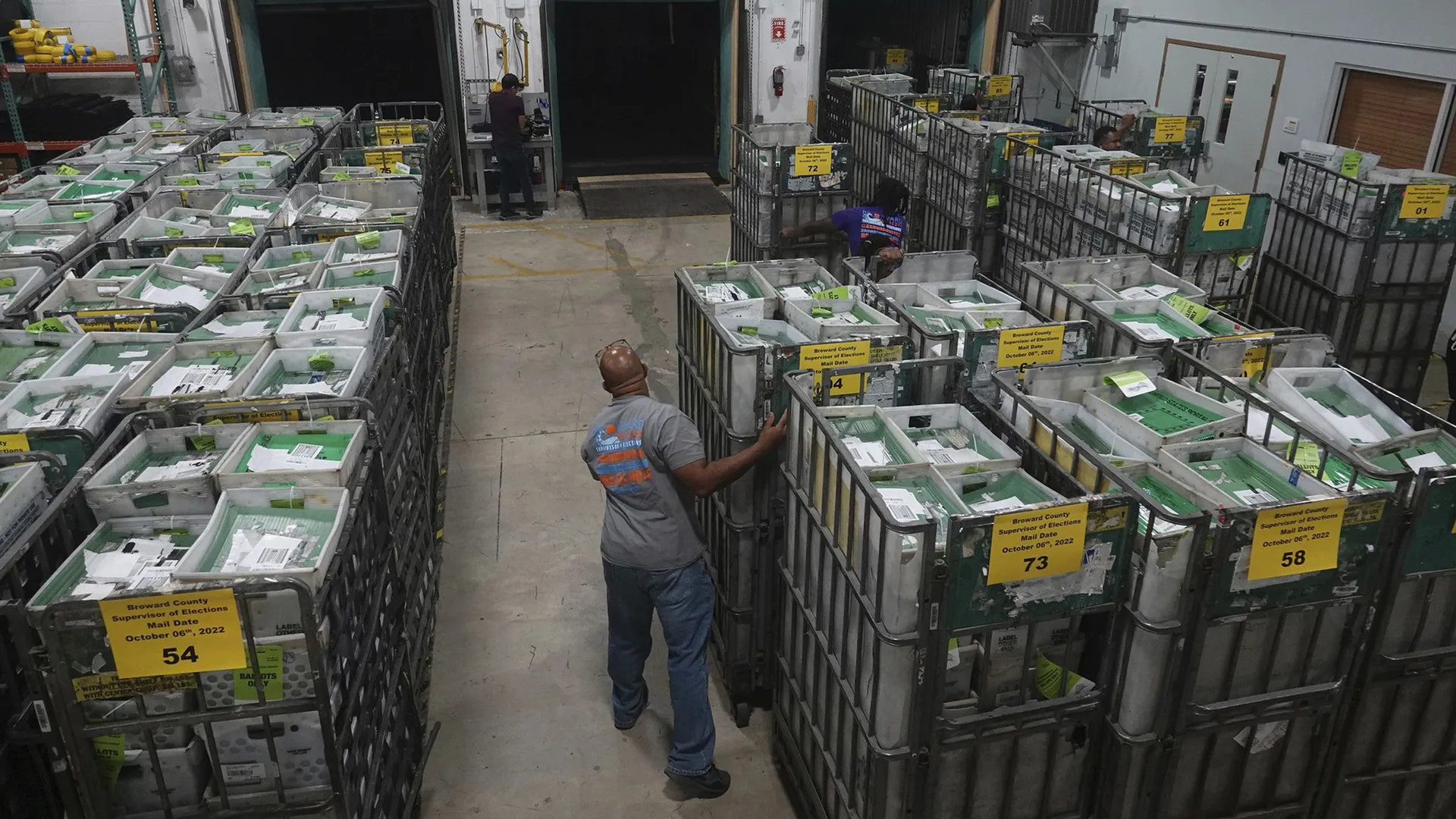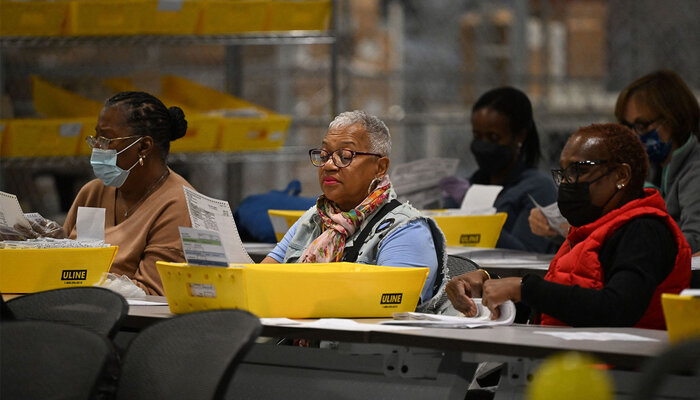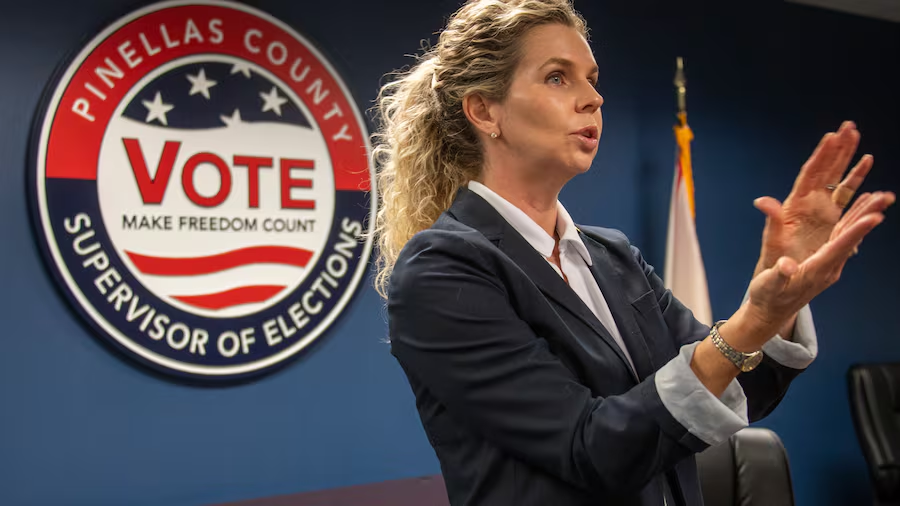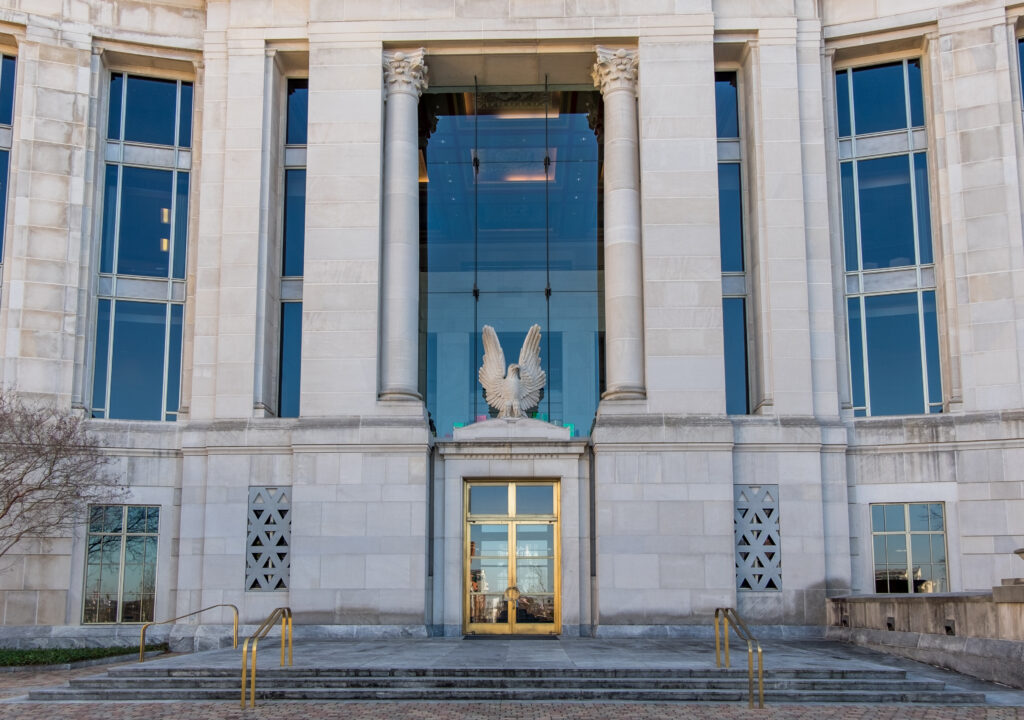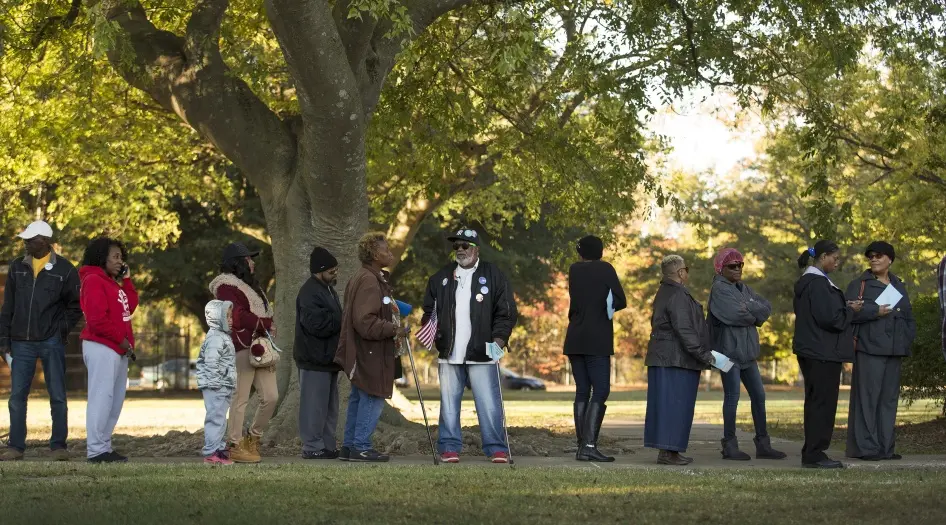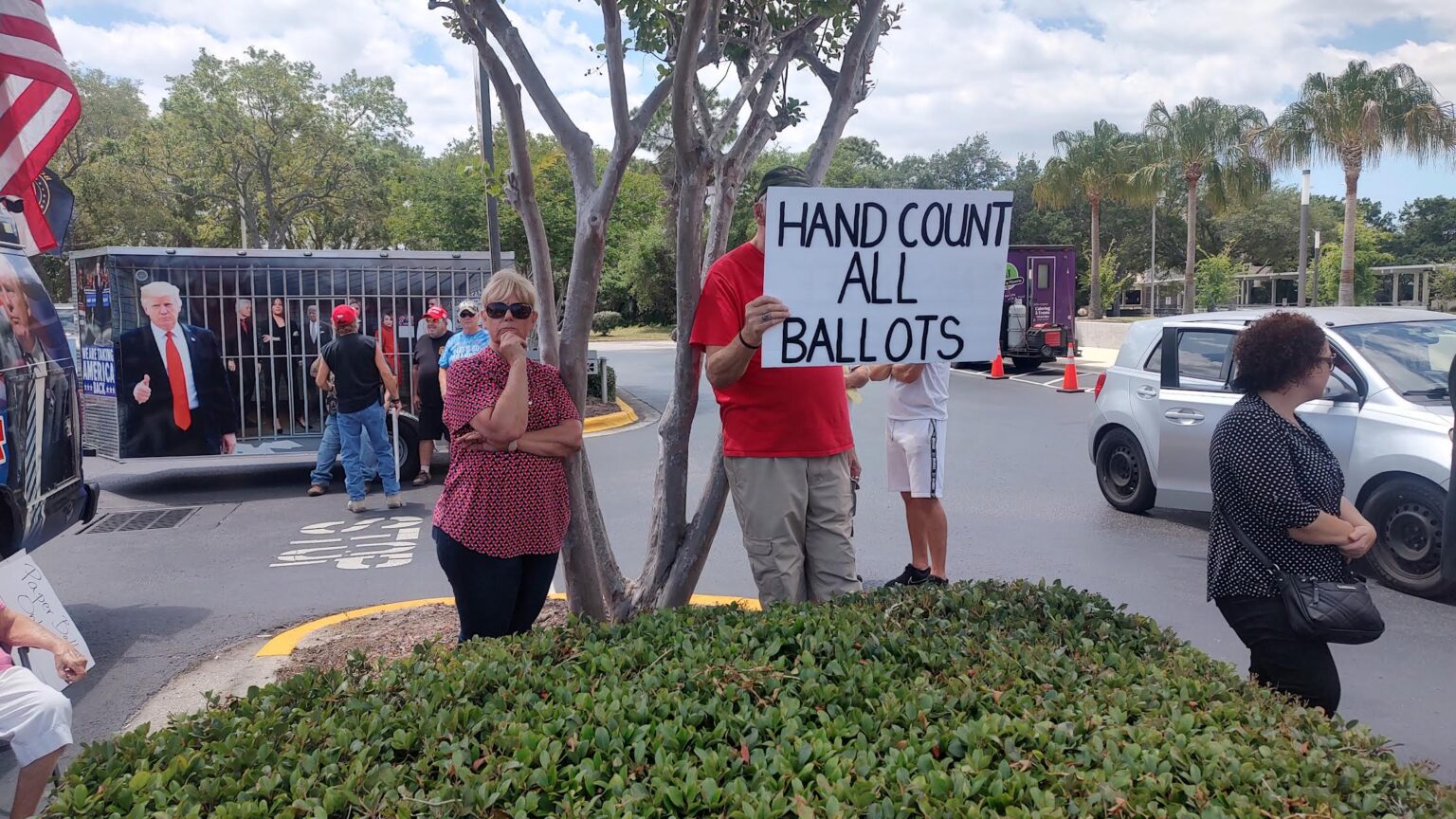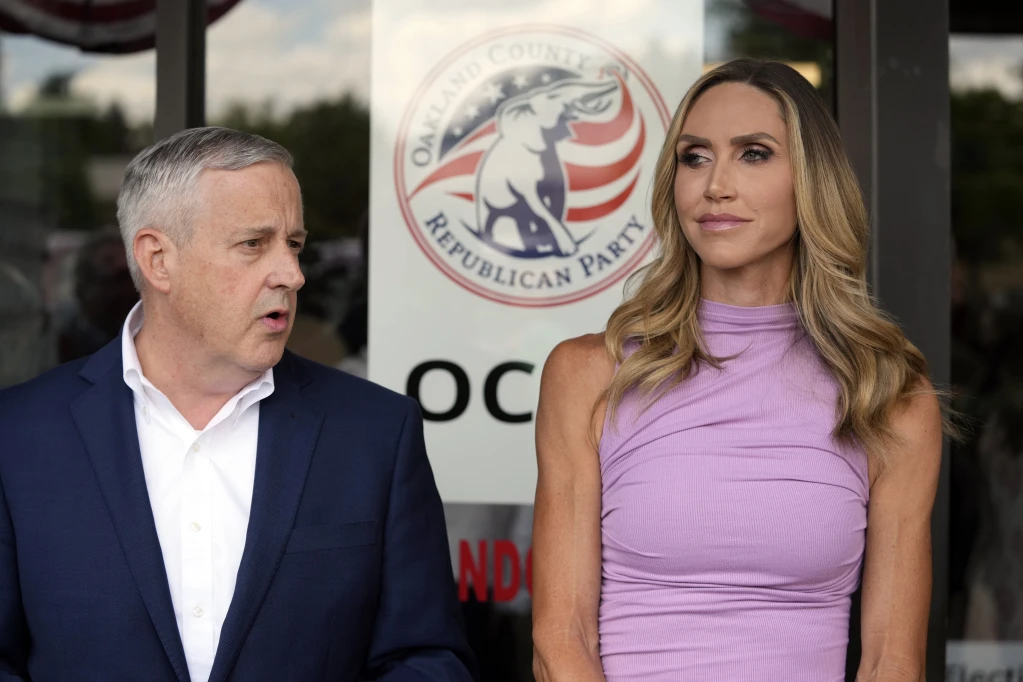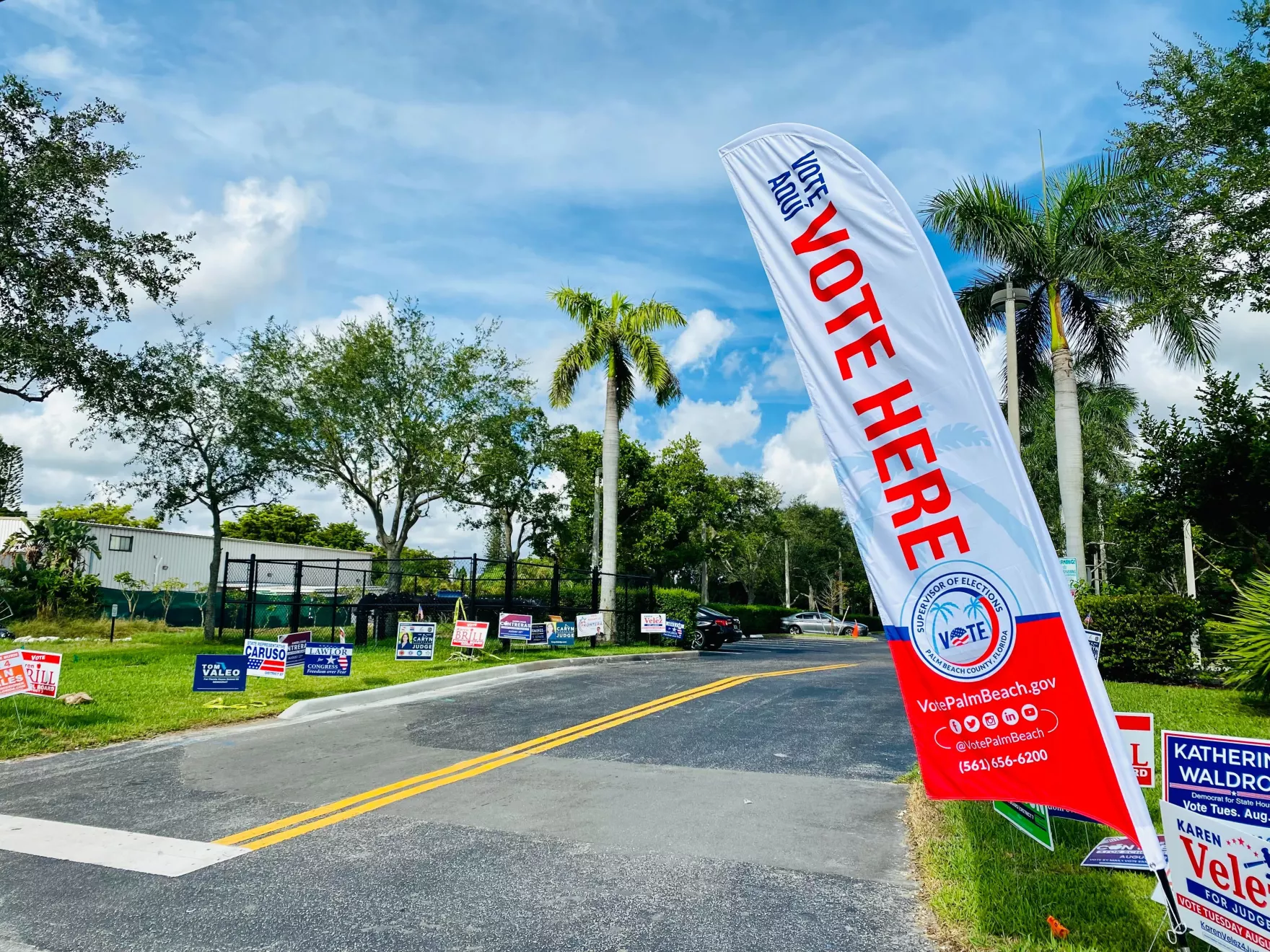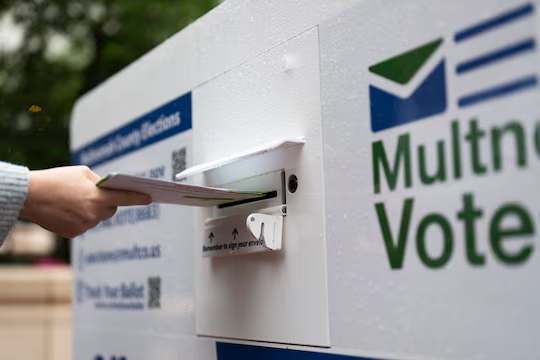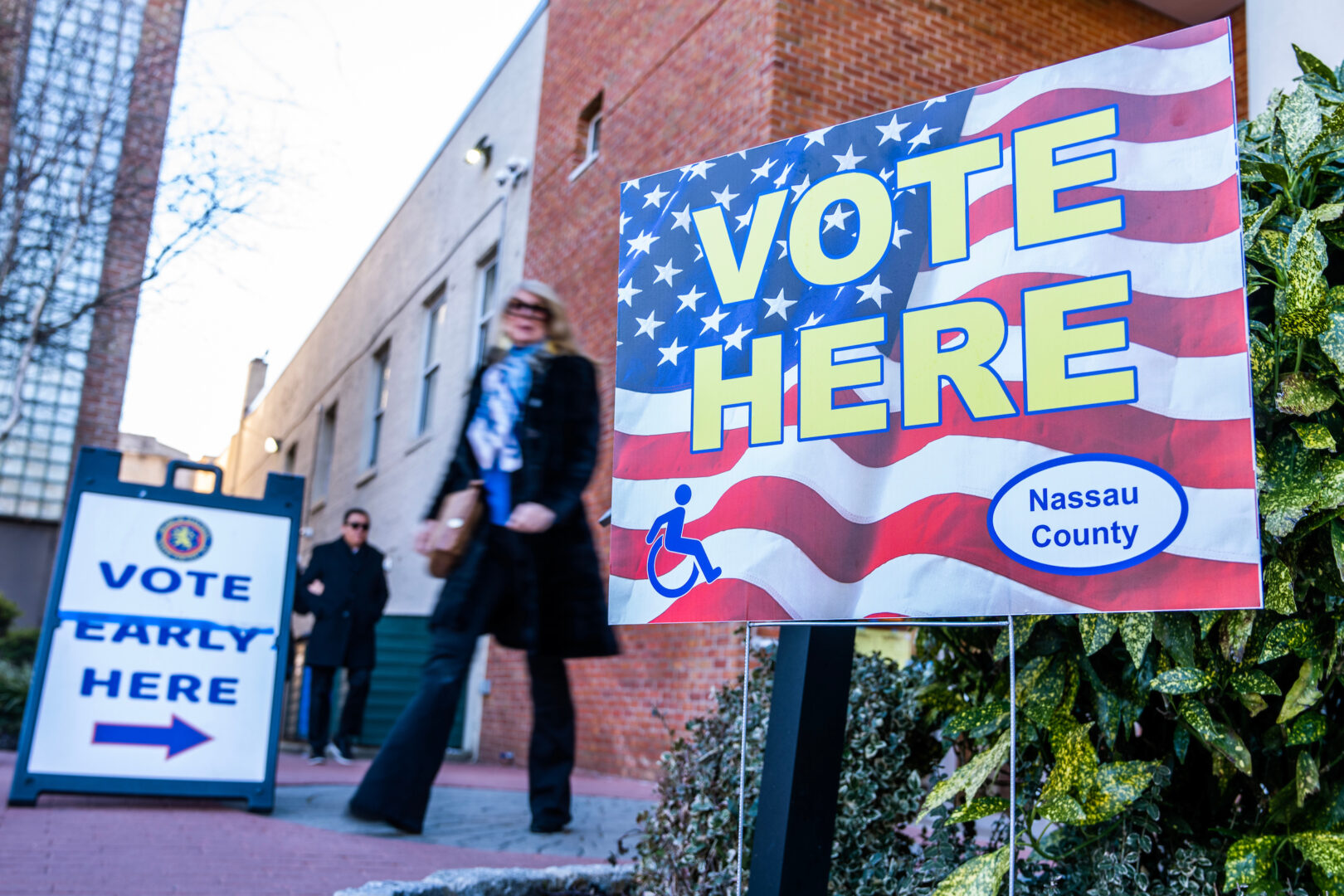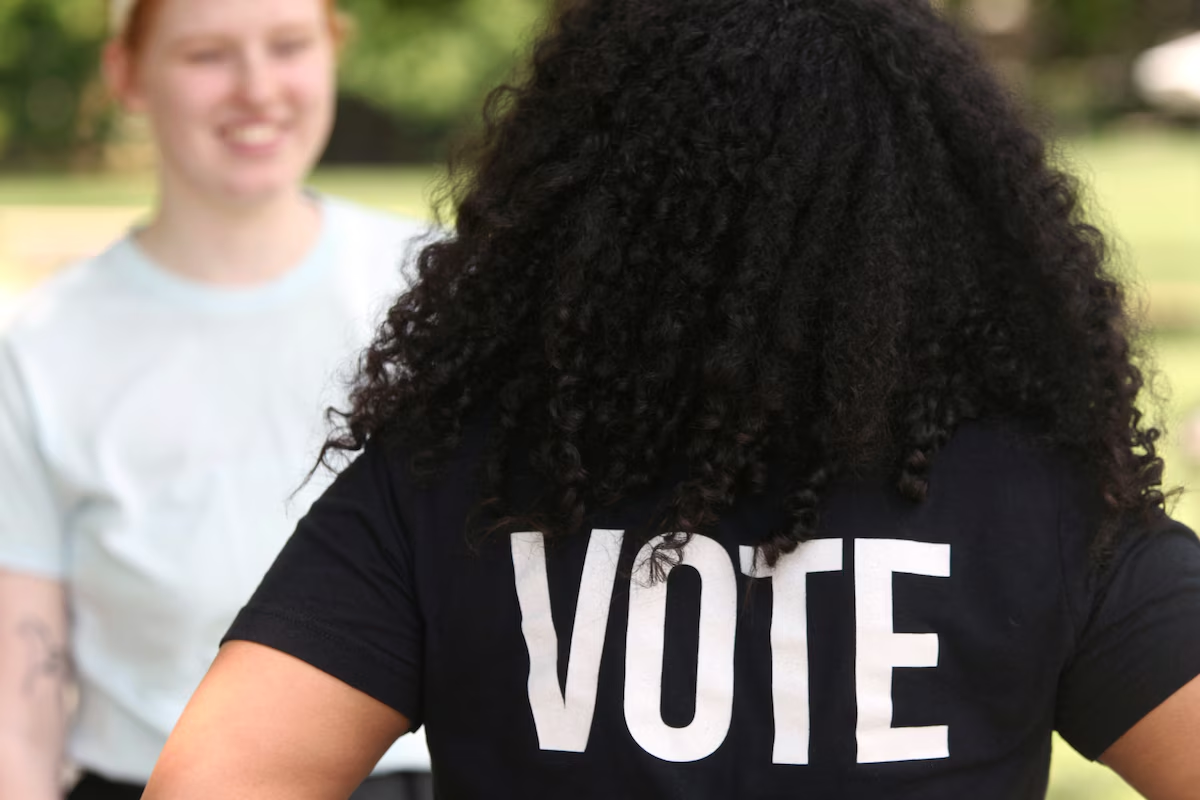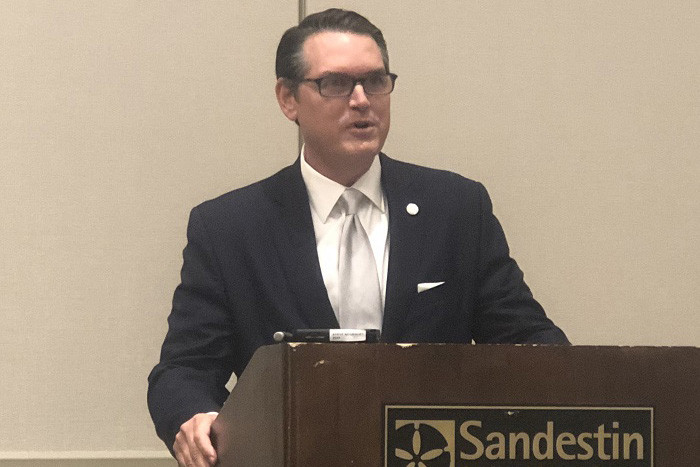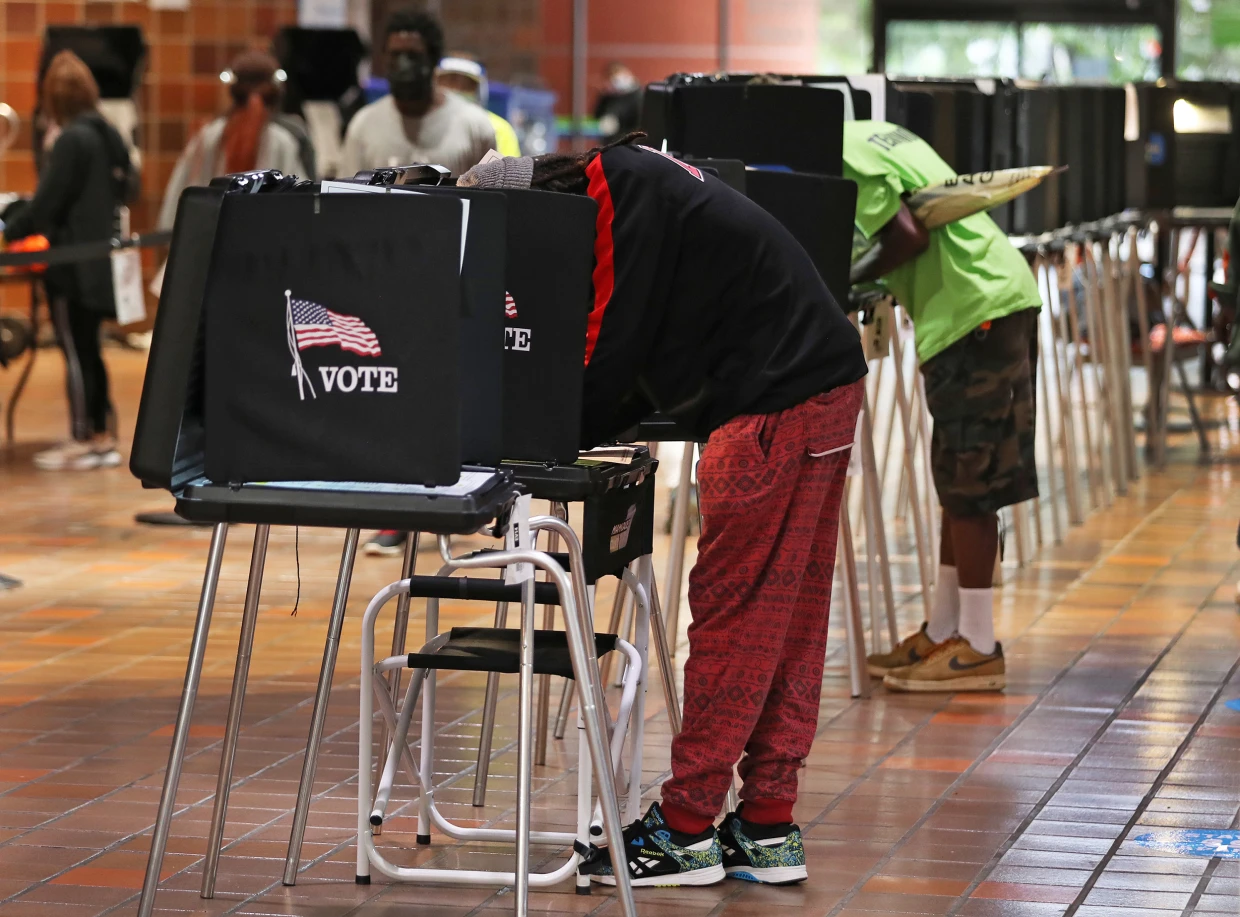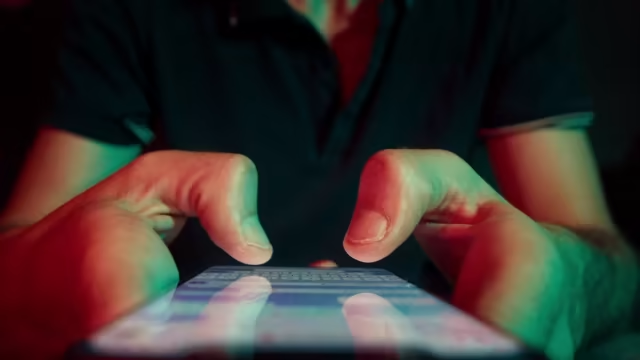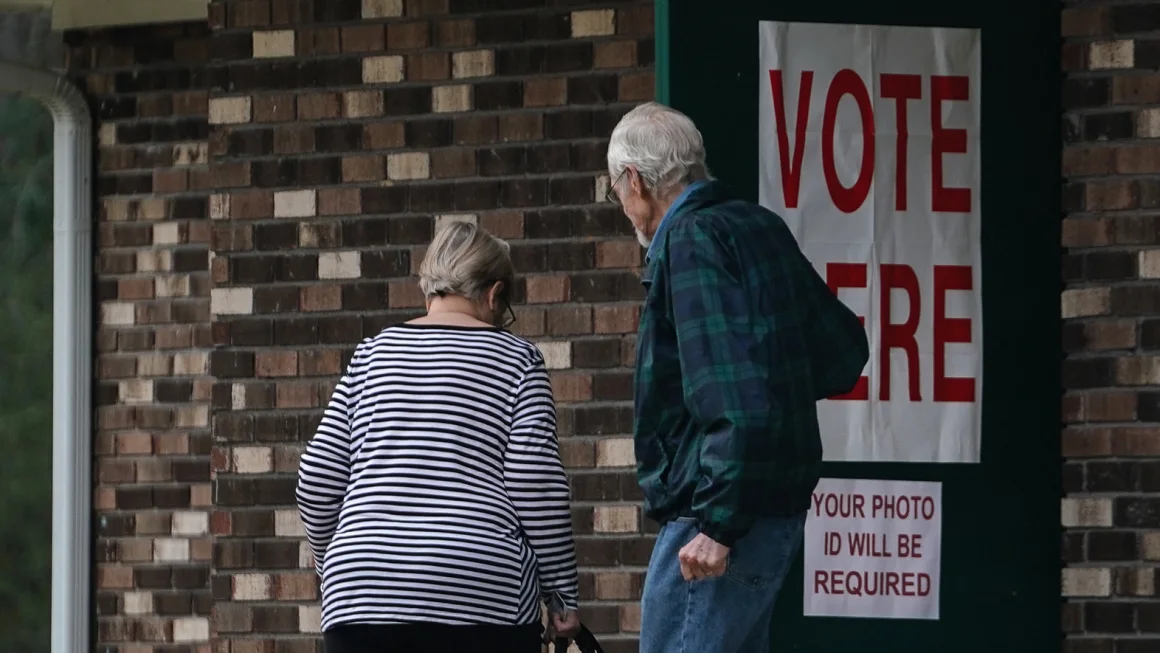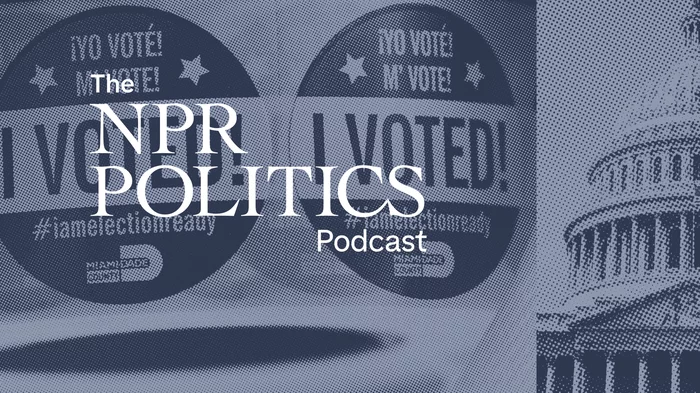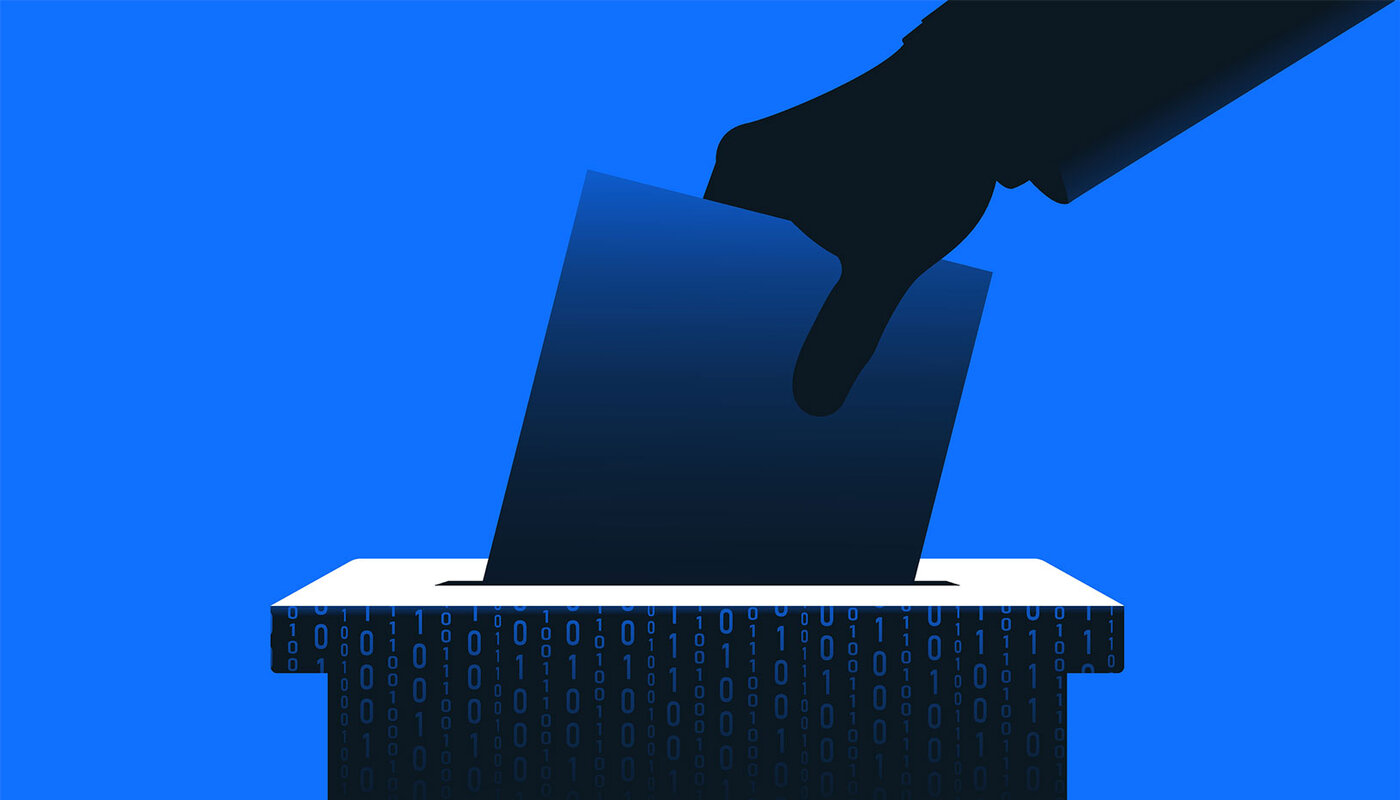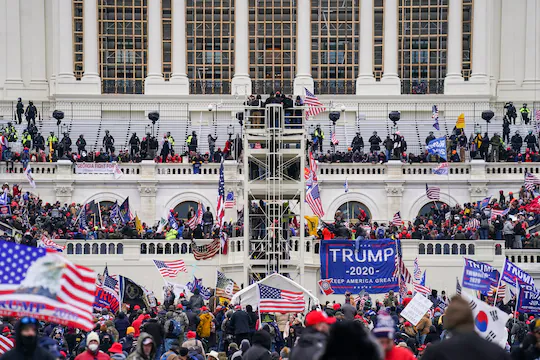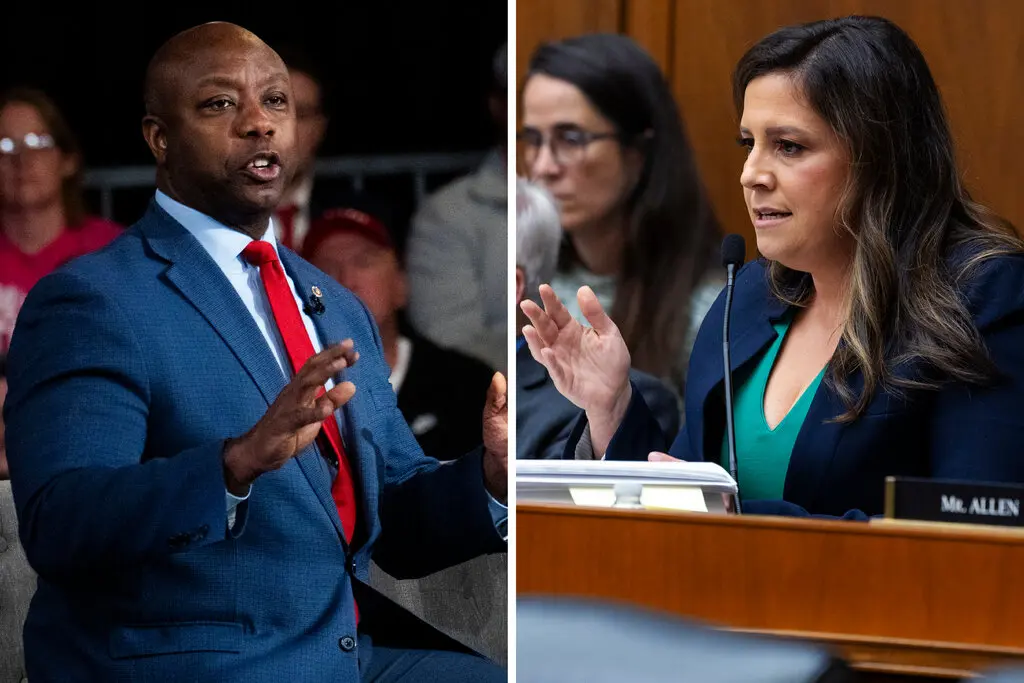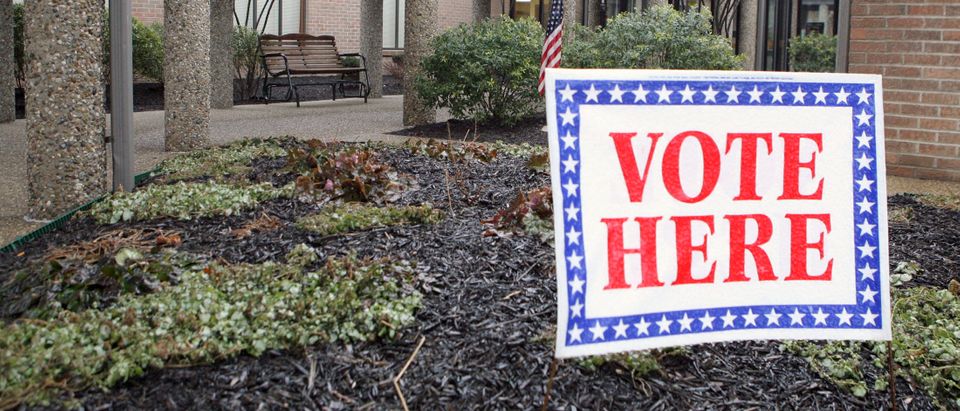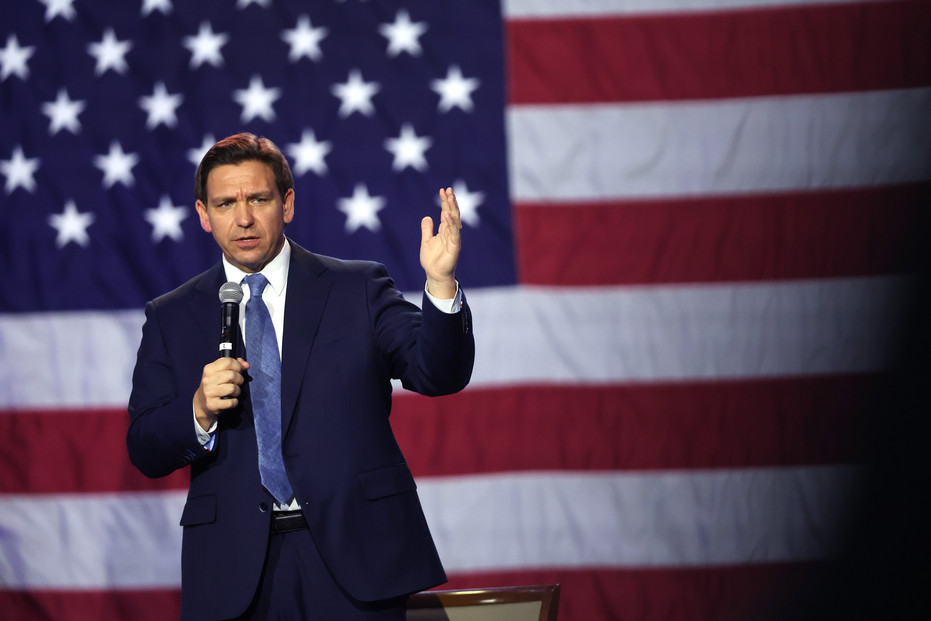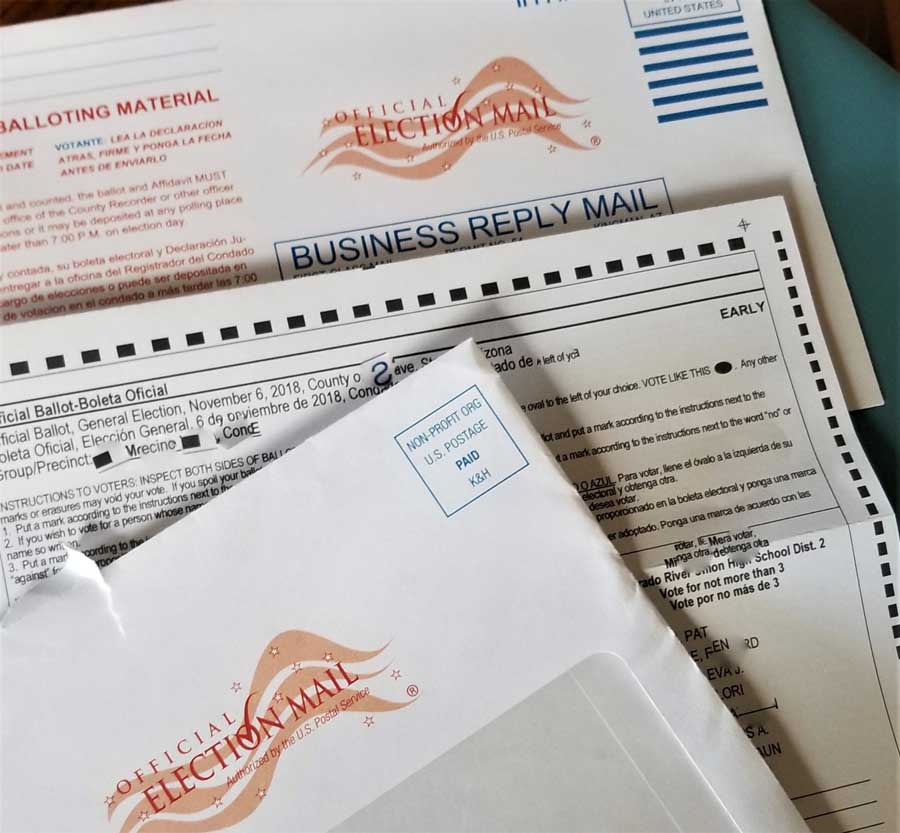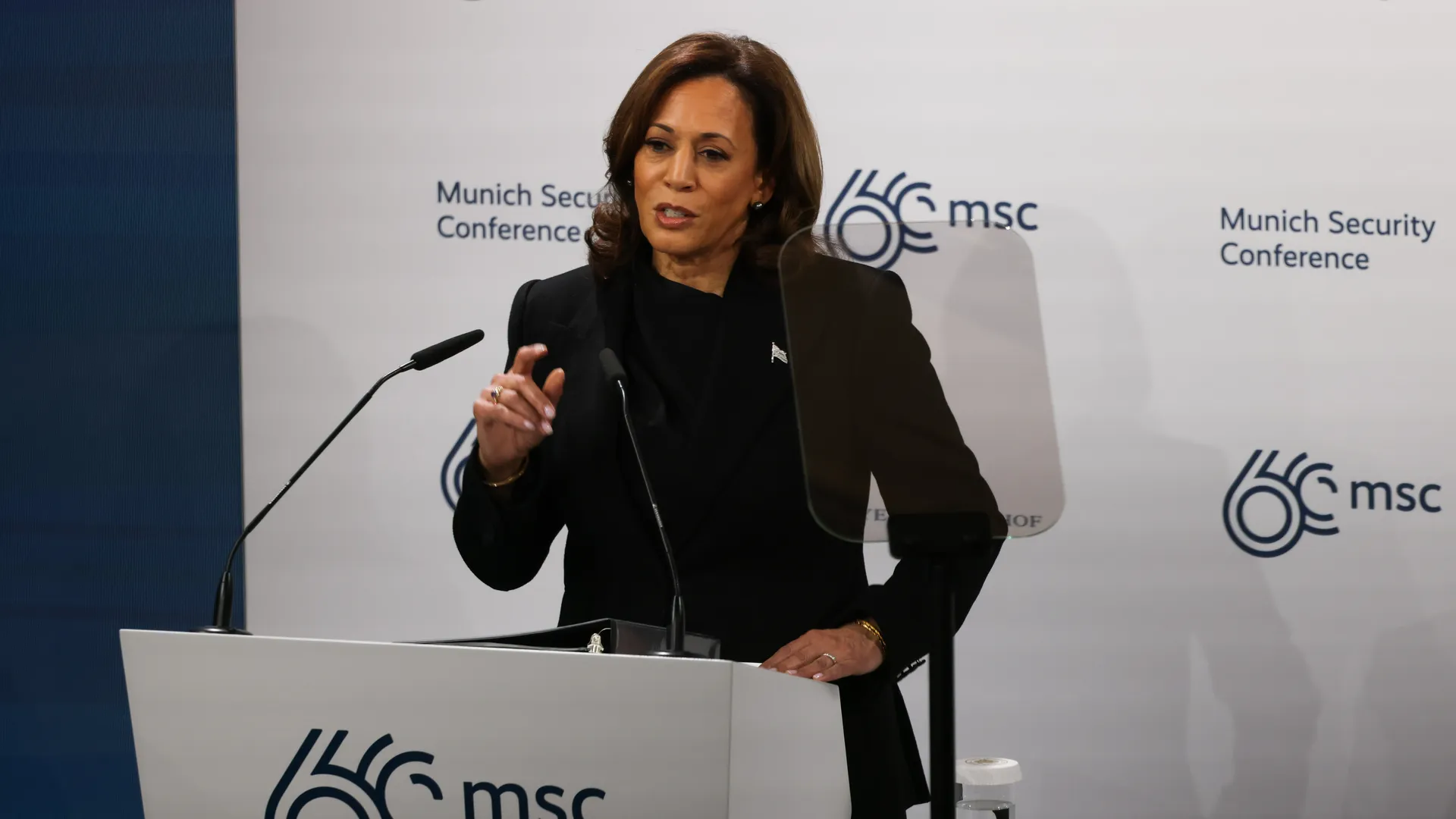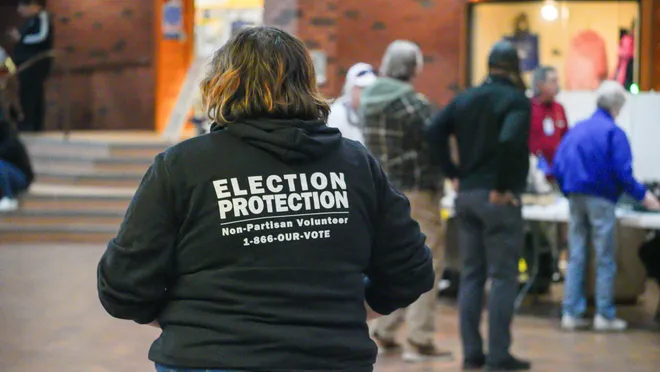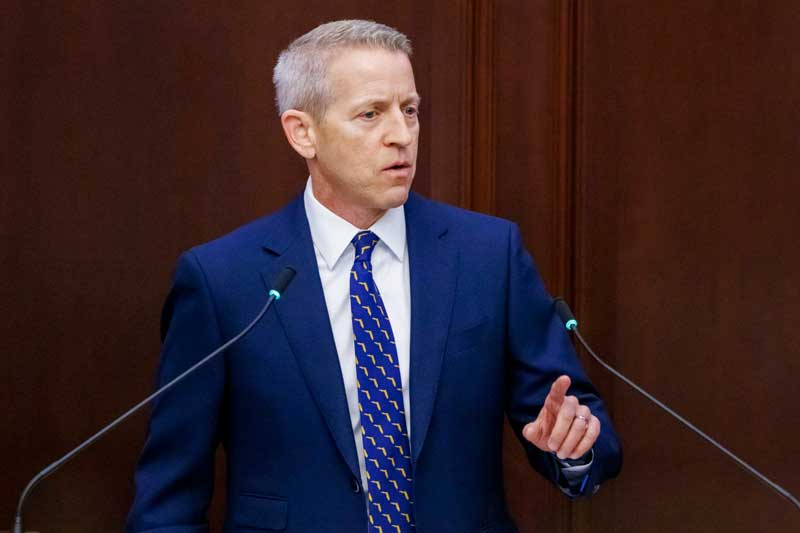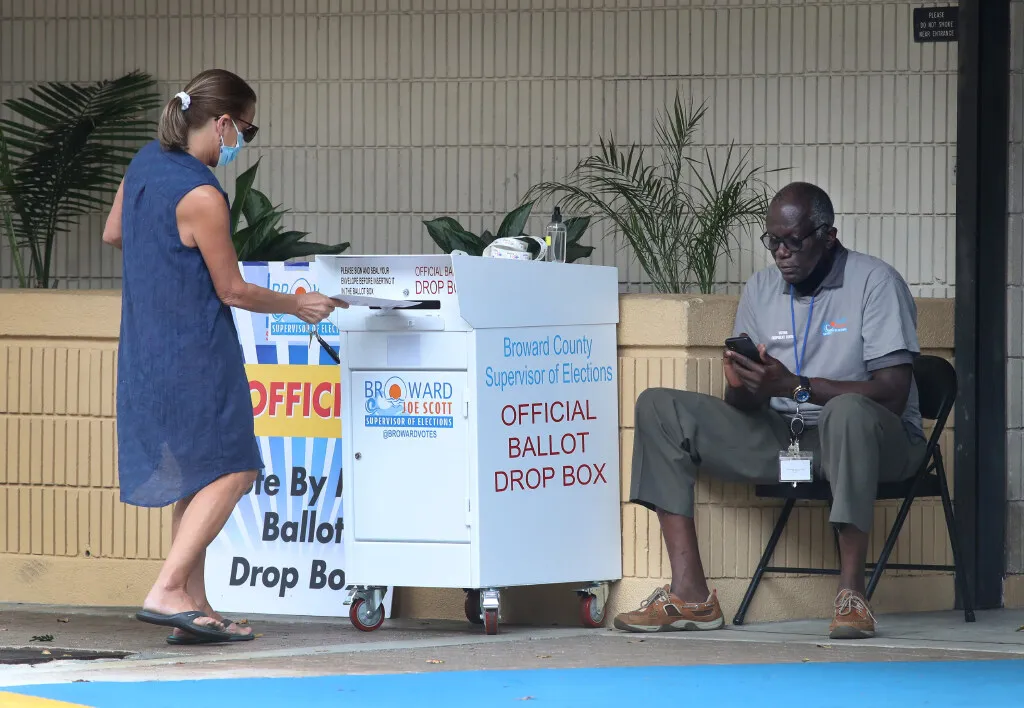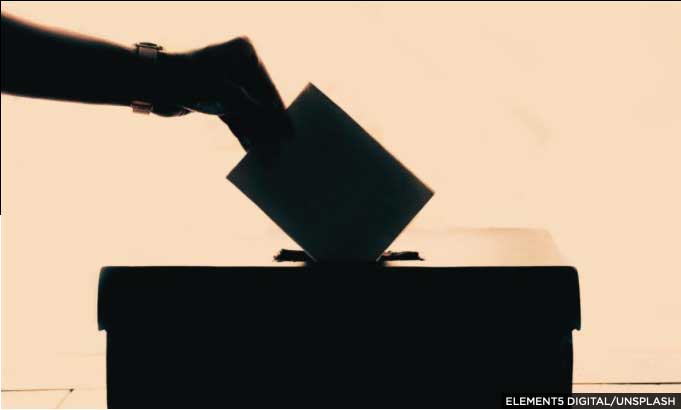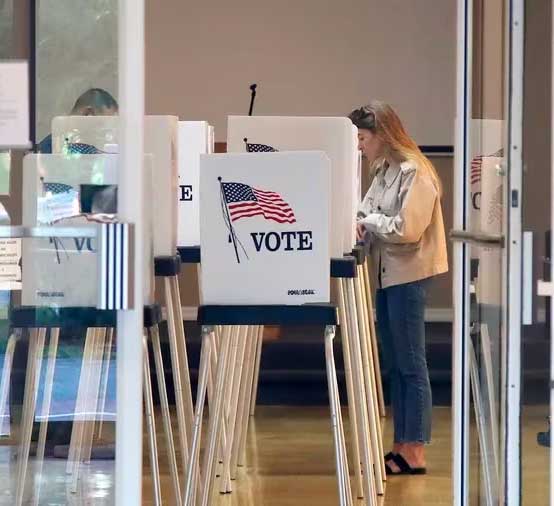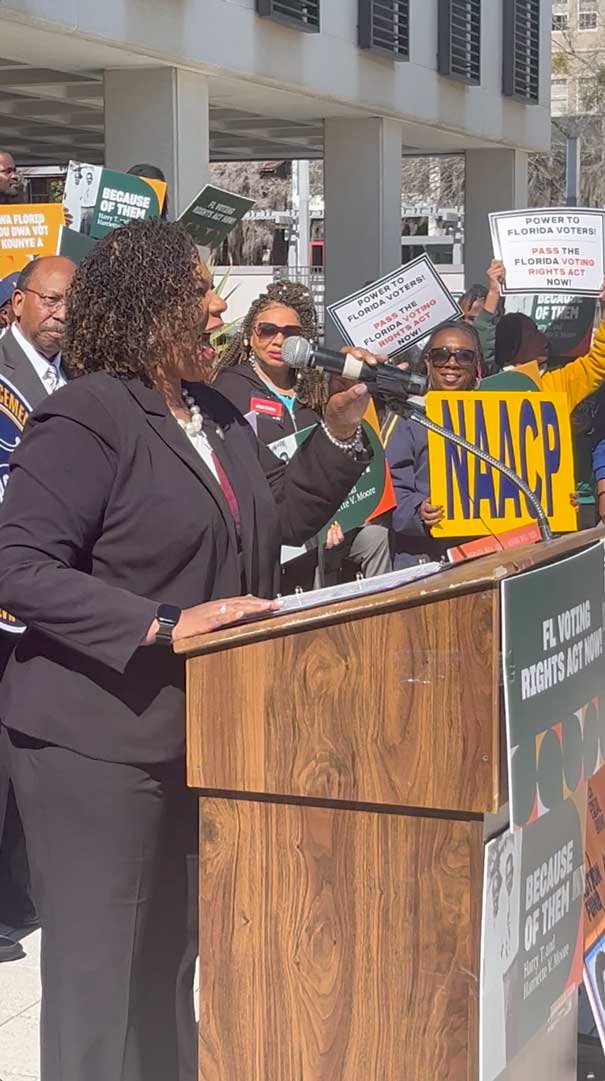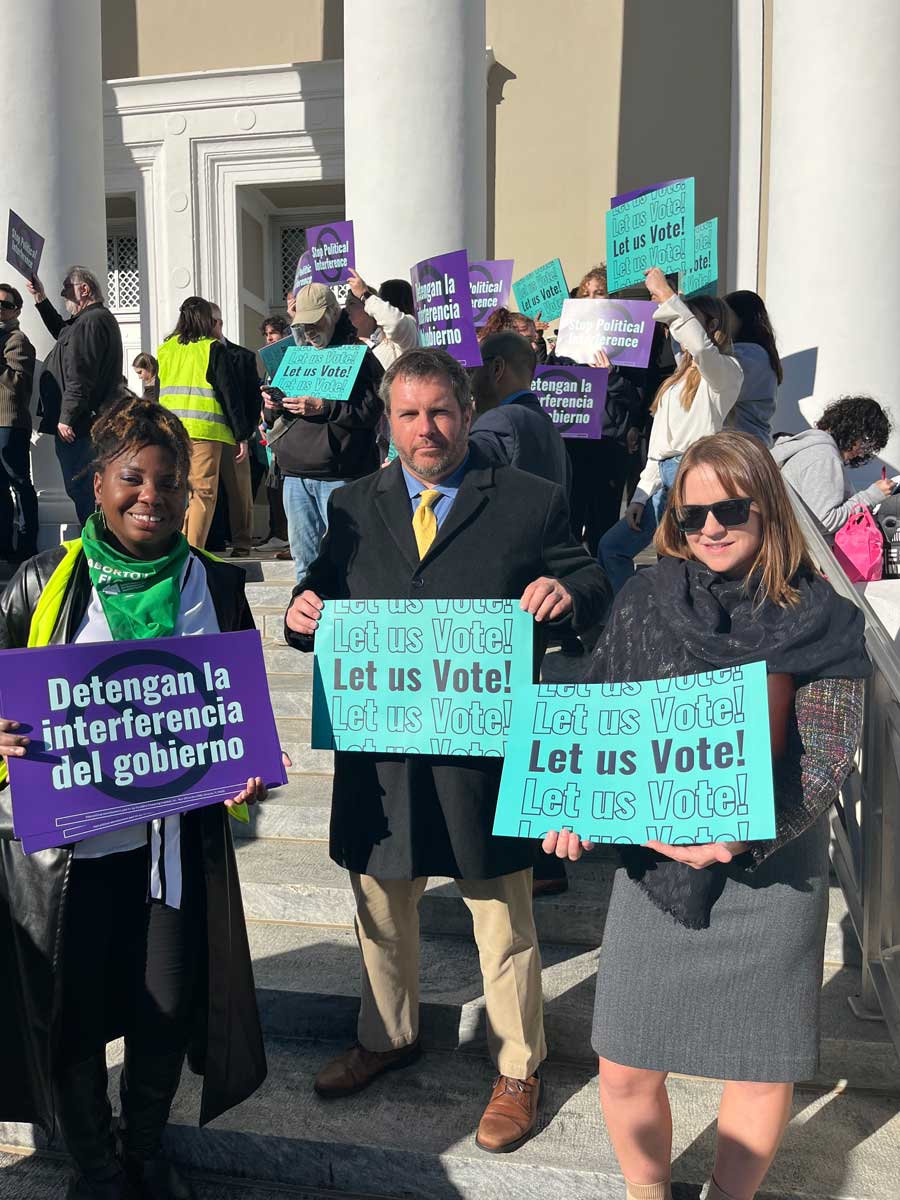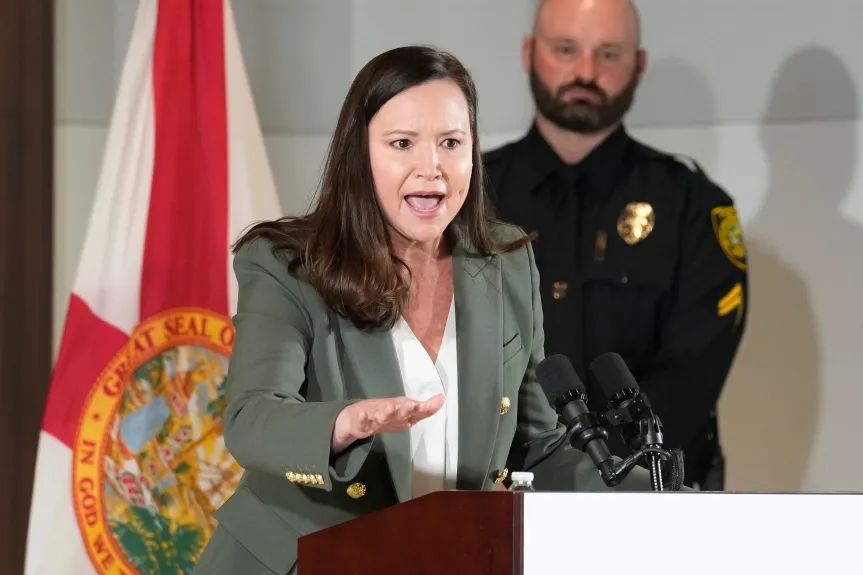President Donald Trump’s plan to overhaul elections could hurl 2026 into turmoil by forcing states to hand-count ballots or scramble to spend millions of dollars on voting systems that aren’t yet on the market, according to election officials and voting experts.
If put into effect, his recent executive order attempting to transform elections could make it impossible for some states to use voting machines, election experts said. No voting systems are commercially available that meet the standards the president put forward in his executive order. Election officials broadly oppose hand-counting ballots as an alternative because the practice is time-consuming and prone to errors.
If Trump’s plan ever comes to fruition, it could hit taxpayers hard. Outfitting every state with new machines could cost $1 billion or more.
“It will create chaos in the states, and it seems almost designed to create chaos,” said David Becker, executive director of the nonprofit Center for Election Innovation and Research.
The U.S. House has passed a bill that voting rights groups have repeatedly warned would make it harder for millions of Americans, including married women, to vote.
The Republican-controlled House on Thursday voted for the Safeguard American Voter Eligibility (SAVE) Act. The legislation purportedly aims to block non-citizens from voting, which is already illegal and is very rare.
The bill would require an individual to present in person a passport, birth certificate or other citizenship document when registering to vote or updating their voter registration information.
Voting rights groups have said the bill will pose a barrier for millions of American women and others who have changed their legal name because of marriage, assimilation or to better align with their gender identity. An estimated 69 million American women and 4 million men do not have a birth certificate that matches their current legal name.
WASHINGTON (AP) — Democratic officials in 19 states filed a lawsuit against President Donald Trump’s attempt to reshape elections across the U.S., calling it an unconstitutional invasion of states’ clear authority to run their own elections.
Thursday’s lawsuit is the fourth against the executive order issued just a week ago. It seeks to block key aspects of it, including new requirements that people provide documentary proof of citizenship when registering to vote and a demand that all mail ballots be received by Election Day.
“The President has no power to do any of this,” the state attorneys general wrote in court documents. “The Elections EO is unconstitutional, antidemocratic, and un-American.”
White House spokesperson Harrison Fields responded to the lawsuit Friday, calling the proof-of-citizenship requirements “common sense” and objections from Democrats “insane.”
“The Trump administration is standing up for free, fair, and honest elections and asking this basic question is essential to our Constitutional Republic,” he said in a statement.
WASHINGTON (AP) — Democratic officials in 19 states filed a lawsuit against President Donald Trump’s attempt to reshape elections across the U.S., calling it an unconstitutional invasion of states’ clear authority to run their own elections.
Thursday’s lawsuit is the fourth against the executive order issued just a week ago. It seeks to block key aspects of it, including new requirements that people provide documentary proof of citizenship when registering to vote and a demand that all mail ballots be received by Election Day.
“The President has no power to do any of this,” the state attorneys general wrote in court documents. “The Elections EO is unconstitutional, antidemocratic, and un-American.”
White House spokesperson Harrison Fields responded to the lawsuit Friday, calling the proof-of-citizenship requirements “common sense” and objections from Democrats “insane.”
“The Trump administration is standing up for free, fair, and honest elections and asking this basic question is essential to our Constitutional Republic,” he said in a statement.
Tallahassee, FL – HB 1205, a bill to restrict citizen-led amendments, was approved by the Florida House of Representatives earlier today. The citizen-led amendment process is one of the most direct ways Floridians can shape the future we all deserve. It embodies the collective power of Floridians, uniting us across race, zip code, and income to address the issues that matter most to our communities. This is direct democracy at its best—a system where the will of the people drives progress and shapes a better future.
If this bill or its companion in the Senate, SPB 7016, becomes law it will give only ten days to turn in petitions, and create unnecessary and burdensome fines on volunteers, preventing everyday Floridians from being able pass policies that improve our lives and strengthen our communities when politicians refuse to act.
State Voices Florida opposes this legislation and urges the Senate to reject both HB 1205 and SPB 7016. The citizen-led amendment process in Florida is the strictest in the nation, requiring nearly one million signatures to get on the ballot and 60% support from voters to pass. The process should be made easier…not harder.
The House of Representatives is expected to vote soon on the Safeguard American Voter Eligibility Act, a Republican-backed bill that would reshape the federal elections process.
Known as the SAVE Act, the proposed legislation would tighten voter registration requirements by mandating proof of citizenship for federal elections.
The bill was scheduled for a vote in early April, but on April 1, Speaker Mike Johnson canceled remaining votes for the week — pushing the timeline back.
Republicans argue the legislation will safeguard elections by ensuring non-citizens cannot vote — something President Donald Trump has repeatedly claimed is a major problem.
But elections experts say that non-citizen voting — which is already criminalized — is “vanishingly rare.” And they caution the bill will instead make voting more burdensome for American citizens, particularly married women and rural residents.
“The practical difficulties that this act would entail if it were passed aren’t small, even if the concept sounds unremarkable,” Justin Levitt, a constitutional law professor at Loyola Law School, told McClatchy News.
Here’s what to know about the SAVE Act.
Democratic lawmakers and civil rights groups are pushing a revised and expanded Harry T. and Harriette V. Moore Florida Voting Rights Act, including permanent vote-by-mail requests and other provisions which Republicans will surely reject.
Florida House Representative LaVon Bracy Davis, an Orlando Democrat, and State Senator Tracie Davis, a Jacksonville Democrat, recently announced the filing of the Harry T. and Harriette V. Moore Florida Voting Rights Act (HB 1409, SB 1582). Senator Davis will proudly carry this legislation during the 2025 legislative session in honor of her friend and colleague, Senator Geraldine Thompson, who tragically passed away in February.
The Democrats say the landmark legislation will position Florida as a voter-friendly state – ensuring the registration and voting process for Floridians before, during, and after they fulfill their civic duty at the ballot box is accessible and straightforward.
he first months of the new Trump administration have been dizzying with the breadth of executive actions to slash the social safety net, further enrich the wealthy, and inflame division based on outdated notions about culture and identity. While White House policy pronouncements have come with flair and political theater – such as the president signing orders on a Jumbotron – in Congress there are quieter but equally pernicious efforts aimed at silencing the votes and voices of communities across the country.
One such piece of legislation is the so-called Safeguard American Voter Eligibility Act, or Save Act, which would require Americans seeking to register or re-register to vote to prove US citizenship. This dangerous bill would in effect strip millions of Americans of their access to the vote, while making the voting process more difficult and burdensome for everyone else. Rather than make our elections more secure, the Save Act would disenfranchise millions based on nothing but a series of debunked conspiracy theories.
WASHINGTON (AP) — With the stroke of his pen, President Donald Trumprestructured the way Americans can register to vote and when they can cast their ballots. Or did he?
After the president signed his executive order Tuesday calling for broad election changes, such as proof of citizenship for voter registration and an Election Day return deadline for mailed ballots, election officials, state attorneys general and legal experts said it would face legal challenges for encroaching on state powers outlined in the U.S. Constitution.
The order is “unlawful,” Colorado Democratic Secretary of State Jena Griswold said in a statement.
“This cannot be done through executive action,” said David Becker, a former U.S. Justice Department attorney who leads the nonprofit Center for Election Innovation and Research.
New Jersey Attorney General Matt Platkin said he expects his and other states will challenge the executive order, just as they have several other of Trump’s actions. He said he’s never seen a president threaten the integrity of state election rules like Trump did through his order.
A super PAC tied to billionaire Elon Musk has started spending in two deeply Republican House seats in Florida ahead of next week’s special elections, according to a new campaign finance report.
America PAC, which has not filed a financial disclosure form yet this year but was almost entirely funded by Musk last year, is spending $20,000 on “texting services” to boost Florida Chief Financial Officer Jimmy Patronis in the 1st Congressional District and state Sen. Randy Fine in the 6th District, according to a report filed with the Federal Election Commission on Tuesday night, which was first reported by The New York Times.
America PAC’s spending in the special elections is minimal so far compared with the millions of dollars that have already been spent there. But it is a sign that Musk may be paying attention to the contests, as he continues to ramp up his political engagement while he serves as a key White House adviser. America PAC has also spent millions of dollars on next week’s state Supreme Court race in Wisconsin.
Tuesday’s special elections in Florida are taking place in deeply Republican territory. President Donald Trump carried the 1st District by 37 points in November and the 6th District by 30 points, according to election result calculations from the NBC News Decision Desk.
NEW YORK (AP) — President Donald Trump on Tuesday signed a sweeping executive action to overhaul elections in the U.S., including requiring documentary proof of citizenship to register to vote in federal elections and demanding that all ballots be received by Election Day.
The order says the U.S. has failed “to enforce basic and necessary election protections” and calls on states to work with federal agencies to share voter lists and prosecute election crimes. It threatens to pull federal funding from states where election officials don’t comply.
The move, which is likely to face swift challenges because states have broad authority to set their own election rules, is consistent with Trump’s long history of railing against election processes. He often claims elections are being rigged, even before the results are known, and has waged battles against certain voting methods since he lost the 2020 election to Democrat Joe Biden and falsely blamed it on widespread fraud.
Trump has focused particularly on mail voting, arguing without evidence that it’s insecure and invites fraud even as he has shifted his position on the issue given its popularity with voters, including Republicans. While fraud occurs, it’s rare, limited in scope and gets prosecuted.
JACKSONVILLE, Fla. — Dozens of demonstrators rallied outside the state attorney’s office Saturday afternoon, calling on State Attorney Melissa Nelson to reopen the case against the 18-year-old accused of threatening voters with a machete in October.
Three months after the incident outside a Neptune Beach polling location, the state attorney’s office decided not to prosecute 18-year-old Caleb Williams.
Now, Jacksonville advocacy groups and community activists have made it known loud and clear that they want Williams held accountable.
“Voter intimidation is still here, and we want it to stop,” said Northside Coalition of Jacksonville President Kelly Frazier. “It’s 2025 now, and we don’t want to hear more episodes of this.”
On Oct. 29, Williams was arrested and charged with voter intimidation and suppression and aggravated assault for brandishing a machete outside a Neptune Beach polling location and targeting a 71-year-old and a 54-year-old woman, the Neptune Beach Police Department said.
Mahmoud Khalil, a green-card holder and student activist, was arrested by U.S. Immigration and Customs Enforcement on Saturday not for criminal activity, but for things he said. If President Donald Trump gets away with deporting him, as he intends, the danger is that more legal immigrants — possibly U.S. citizens as well — will be punished for exercising their First Amendment freedoms.
A 30-year-old Palestinian raised in Syria, Khalil came to the United States on a student visa in 2022 to pursue a master’s in public administration at Columbia University. He became a high-profile leader of the pro-Palestinian, antiwar movement on campus and attracted the ire of pro-Israel activists — some of whom called for his deportation last week.
On Monday, Trump, who campaigned against campus protests such as the ones that gripped Columbia last spring, bragged about Khalil’s detainment, warning on Truth Social that “this is the first arrest of many to come.”
However, Khalil has not been charged with a crime, and there has been no evidence suggesting he was involved in terrorism.
The U.S. House may soon vote on a bill with a seemingly innocuous name — the SAVE Act, as in “Safeguard American Voter Eligibility Act.”
It is anything but innocuous — especially for the millions of Americans who could find themselves prevented from registering to vote if the SAVE Act is passed.
Ostensibly, the SAVE Act is aimed at preventing people who are in the country illegally from voting in U.S. elections — something that is so rare as to be nearly non-existent.
What its Republican sponsors don’t tell you is that the SAVE Act, with its requirement that people show proof of citizenship, could end up disenfranchising millions of Americans who are and always have been legal citizens of this country.
“It all sounds so reasonable,” said Catherine Turcer, executive director of Common Cause Ohio and a longtime advocate of voter rights. “But it has the potential to prevent so many people from registering to vote, through no fault of their own.”
As lifelong conservatives, we believe in limited government, personal responsibility, and the rights of the people to shape our own governance. We founded Conservative Women for Freedom because we are a dedicated group of local Republican women committed to safeguarding the rights and futures of our children and grandchildren. We’re speaking out against House Bill 1205, a dangerous assault on grassroots democracy that would all but eliminate the ability of everyday Floridians to bring citizen-led ballot initiatives to the people.
In a state that has long championed individual freedom, HB 1205 does the opposite. It stacks the deck against regular citizens and ensures that only the wealthiest and most powerful can even attempt to bring an initiative before the voters. This bill is not about election integrity. By requiring initiative sponsors to post a staggering $1 million bond before gathering signatures, the bill ensures that only the well-connected can afford to participate. Who among us can write a check that size?
The bill also creates unnecessary bureaucratic hurdles that make compliance nearly impossible and dramatically increases fines for simple mistakes, establishing financial punishments that could bankrupt a citizen-led effort. This red tape is unnecessary, costly, and serves no real purpose beyond discouraging participation. The bottom line is that these rules have nothing to do with preventing fraud.
As conservatives, we have long argued for limited government and the rights of the people to hold their elected officials accountable. And Republican primary voters agree—one recent poll showed 55 percent of GOP primary voters in Florida oppose any effort to make it even harder for a citizen-led amendment to make the ballot.
A day after the Florida House started moving forward with its version of the plan, the Senate on Friday released a wide-ranging bill that would add restrictions to the state’s ballot-initiative process.
The Senate Ethics and Elections Committee on Monday will consider the bill, which, among other things, would place new requirements on petition gathering and open the door to legal challenges after constitutional amendments pass.
Gov. Ron DeSantis has made a priority of trying to restrict the initiative process after he successfully led efforts last year to defeat proposed constitutional amendments on abortion rights and recreational marijuana. DeSantis and other Republicans contend changes are needed to combat fraud in the process, particularly in the collection of petition signatures needed to put measures on the ballot.
“Amending Florida’s constitution is a responsibility every voter takes very seriously, and petition integrity is critical to ensuring the effectiveness of the citizen initiative process,” Senate President Ben Albritton, R-Wauchula, said in a statement Friday as the chamber released its bill (SPB 7016). “This legislation increases transparency and accountability for sponsors of initiatives; deters, prevents and penalizes fraudulent activities; and provides voters with objective information about financial impacts of proposed amendments at the front end of the process.”
Given the volume and magnitude of actions taken by the White House since Inauguration Day, it is understandable that most of America’s attention has been focused on the executive branch. What should not be lost in this flurry of activity, however, is legislation being advanced by the 119th Congress that could be just as consequential to the institution most fundamental in a representative democracy: the vote.
The Safeguard American Voter Eligibility Act, or the SAVE Act, would require individuals to provide documentary proof of U.S. citizenship to register to vote in federal elections. It passed in the House in July of 2024 but did not advance in the Senate. Recently reintroduced by Rep. Chip Roy of Texas, the bill now has a heightened chance of success given partisan unity within government.
The consequences of the SAVE Act belie its name by compromising access to the ballot for large swaths of the populace and complicating an already overly complicated process. Moreover, the act undermines the ideals of the “democratic experiment” begun nearly 250 years ago of a republican form of government — an experiment that, until recently, has trended toward expanding rather than restricting suffrage.
TALLAHASSEE — Florida’s Legislature is eyeing changes to the ballot initiative process after last year’s intense fight over two proposed amendments on abortion access and recreational marijuana.
Opponents say the bill would consolidate more power in the hands of Tallahassee and monied special interests. Proponents say the changes ensure the integrity of the process and keep out-of-state special interests out.
Florida’s ballot initiative process, a right guaranteed in the constitution, has long been used by groups to pass measures that have been otherwise stymied by state lawmakers. It’s how Florida got a $15 minimum wage, medical marijuana and felon voter restoration.
The process is among the hardest of any of the 24 states that allow citizens to directly amend their laws or constitution. Legislative changes have made the process in Florida harder and costlier in recent years.
HB 1205 would continue that trend, about a dozen public commenters warned during the bill’s first committee meeting Thursday.
They pointed to the bill’s requirement that sponsors put up a $1 million bond before collecting any petitions, as well as its proposals to increase fines, add new requirements and tighten the window to return petitions.
After a cycle that delivered them full power in Washington, Republicans are still pushing to change federal election law — and some Democrats are sounding a renewed alarm.
A proposal that aims to bar noncitizens from voting could disenfranchise millions of American women and serve a larger strategy, Rep. Delia Ramirez argued Tuesday.
“The SAVE act is not an election security bill,” said the Illinois Democrat at a House Administration Committee member day hearing. “It’s part of an authoritarian playbook, including the funding freeze and the persecution of diverse cities, and it takes courage and moral clarity to stand against it.”
The legislation — known as the Safeguard American Voter Eligibility (SAVE) Act — was marked up by the committee last Congress and passed the House, before fizzling in the Senate. It would require American voters to provide proof of citizenship to register to vote in federal elections.
It is already illegal for noncitizens to vote in federal elections, and Democrats have lambasted the bill’s limitations on acceptable forms of identification, which they say would make it difficult for married women who have changed their last names to register to vote.
At a recent town hall in the exurbs of Atlanta, Rep. Rich McCormick, R-Ga., faced a torrent of criticism from a woman who accused him of sponsoring legislation that would make it more difficult for married women like her to vote.
She was talking about the Republican-backed Safeguard American Voter Eligibility Act, known as the SAVE Act. Clips of the town hall, where the woman told McCormick the bill was “voter suppression,” have since gone viral on social media.
If enacted, the proposed law would require people to present proof of citizenship, such as a birth certificate or passport, when they register to vote in federal elections. It’s designed to keep undocumented immigrants from voting, though it is already illegal and exceedingly rare for noncitizens to do so.
The bill was first introduced last year by Rep. Chip Roy, R-Texas. It passed the Republican House but was never taken up for a vote in the closely divided Senate. Roy reintroduced the bill in January and, though it is likely to pass the House, it will again face an uphill battle in the Senate, where a handful of Democrats would need to support the measure.
The SAVE Act is back, and it’s dangerous for democracy.
Unlike 2023, when the first national voter suppression law never reached Joe Biden’s desk, this version of the Safeguard American Voter Eligibility Act is on a fast track to Donald Trump.
If it passes, millions of married and divorced women — Republican, independent and Democrat alike — will not be able to vote in federal elections.
All voters would face new hurdles. But birth certificate names are a key to this bill, and only one voting segment routinely changes their birth name: married women.
Under the SAVE Act (H.R. 22), people who register to vote or update their registration, even for something as minor as a change of address, will have to confirm their citizenship.
For most, that would require producing either a birth certificate or a passport.
However, roughly eight in 10 women take their husband’s surname when they marry, and many who divorce keep that name. As a result, their birth certificate name will not match their legal name.
The bill has nothing to say about citizens whose current legal name doesn’t match their birth name.
After initiatives to protect abortion rights and legalize marijuana failed in November, Sen. Carlos Guillermo Smith filed a joint resolution to make it easier for voters to pass future constitutional amendments.
Under SJR 864, the threshold for ballot initiatives to pass would get lowered from 60% to 50%.
“We deserve a fair, democratic process for amending Florida’s constitution, but politicians + special interests put their thumb on the scale, blocking citizen-led initiatives to protect the status quo,” Smith, an Orlando Democrat, said on X.
The pro-abortion rights Amendment 4 initiative captured 57% of the vote, just short of the 60% supermajority to pass. Amendment 3 to legalize marijuana also failed with about 56% of the vote.
Smith is unlikely to make much progress in a Republican-controlled Legislature since it was Republicans who supported raising the bar to 60% in the first place.
Gov. Ron DeSantis, in fact, has recently pushed for making changes that would make it more difficult for citizen-led groups, like the abortion rights initiative, to get on the ballot
Federal Judges are allowing a legal challenge to South Florida’s congressional and Florida House districts to move forward.
But the three-Judge panel also said plaintiffs were only allowed to continue a challenge against eight of 10 districts originally called out in federal complaints.
The lawsuit ironically alleges the same motivations behind the cartography that Gov. Ron DeSantis claimed motivated him to veto a congressional map (P 0109) approved by the Legislature before his office submitted the map, which has been in place since 2022.
The lawsuit said Florida’s 26th, 27th and 28th Congressional Districts were all drawn motivated primarily by race. Notably, all three districts are currently represented by Republican Cuban Americans: U.S. Reps. Mario Díaz-Balartof Hialeah, María Elvira Salazar of Coral Gables and Carlos Giménez of Miami-Dade, respectively.
The courts only will allow a legal challenge to CD 26, Díaz-Balart’s district. That notably spans from Immokalee in Collier County to Hialeah and Miami Beach in north Miami-Dade County.
As Florida enters a new election cycle, it’s essential to prioritize voter education.
As of Jan. 1, Florida’s vote-by-mail (VBM) rolls were officially reset under a relatively new law.
When in the past, voters who requested mail-in ballots in previous election cycles did not have to request them again for the following two election cycles, this law requires voters to formally request mail-in ballots after every federal election cycle. Therefore, all standing requests after the 2024 Elections have now been wiped out. The impact of this change has been immediate and staggering, with the number of voters set to receive mail-in ballots plunging to record lows.
In 2024 alone, more than 3 million Florida voters voted by mail out of over 3.5 million Florida voters who had requested a mail ballot. That number will now reset, and every voter wishing to vote by mail in elections this year must make sure they request their ballot ahead of the applicable deadline. The implications are even more concerning with two congressional Special Elections scheduled for April 1. Voter turnout is at risk, particularly in a state where mail-in ballots have historically been a welcome resource.
Proponents of the VBM reset justified the change as necessary to combat voter fraud and enhance security around our elections. They framed the policy as a proactive step to secure Florida’s elections despite the absence of any significant evidence of widespread mail-in ballot fraud in the state.ogress.
The Safeguard American Voter Eligibility (SAVE) Act could prevent many married women from being able to register to vote.
The act, reintroduced by Texas Republican Representative Chip Roy, is intended to amend the National Voter Registration Act to ensure that all people registering to vote are U.S. citizens. It would require people to present in-person documentation as proof of citizenship when registering to vote.
Much of the documentation listed under the SAVE Act is based on having a birth certificate that matches the person registering to vote. However, as many as 69 million married women in the United States have changed their legal name since getting married, meaning their name does not match their birth certificate, per the Center for American Progress.
The United States is a democracy, meaning all citizens, with the exception of children and some felons, have the right to vote. The SAVE Act would make it significantly harder for married women, as well as many other members of the population, to exercise their right to vote as Americans.
In the months before last year’s election, Alabama removed valid voters from the rolls after wrongly tagging them as noncitizens. Tennessee’s secretary of state told 14,000 voters they had to prove their citizenship. And officials debated whether hundreds of thousands of Arizonans could vote in state races after they discovered they were missing citizenship documentation.
More episodes like those are likely to lie ahead throughout the country.
Republicans in Congress and state legislatures are charging forward with plans to require Americans to prove they are citizens as they say they seek to crack down on noncitizen voting — an almost nonexistent problem.
Voting by noncitizens is already illegal in all state and federal elections, and requiring voters to provide proof of citizenship could make it harder for millions of legitimate voters to cast ballots. Driver’s licenses and other state IDs can be used only for people who provided proof of citizenship to get those IDs, so some people will need to track down other documents.
Many people do not have ready access to birth certificates or passports, including women who changed their names when they got married, rural residents who live far from government offices where birth records are kept, and people who lost documents in fires or floods.
Legislative Republicans have clashed with Gov. Ron DeSantis over how best to complement President Donald Trump’s campaign against undocumented immigration, but will they resist the governor’s other priorities?
Take his reforms to Florida’s citizen initiative process.
Three months after he successfully organized enough opposition to stop proposed constitutional amendments to legalize adult use of cannabis and enshrine abortion rights in the Florida Constitution, the governor wants to change the citizen petition process to address what he calls “ballot initiative integrity.”
Among those proposals are eliminating third-party collection of petition forms and tightening signature verification, changes that voting rights advocates say could gut the citizen initiative process.
That appears a political loser, however — even among Florida Republicans.
A survey of 600 likely 2026 Republican voters by Fabrizio & Associates, the pollster for Donald Trump, shows that rank-and-file GOP voters do not approve. The poll was first published in Florida Politics.
When asked whether they support eliminating “the ability for supporters of constitutional initiatives to collect petitions signed by Floridians in order to get the initiative on the ballot, and making it almost impossible for citizens to vote on changes to Florida’s constitution,” 55% of Republicans said they did not, with just 17% supporting the idea.
So far in this year’s legislative sessions, three states have introduced state voting rights acts. If the bills pass, Arizona, Colorado and Maryland will join the eight other states that already have VRAs: California, Connecticut, Illinois, Minnesota, New York, Oregon, Virginia and Washington.
California was the first state to pass a voting rights act in 2002, and Illinois followed in 2011. Legislative action on state VRAs picked up in the late 2010s—between 2018 and 2024, six states enacted them. These laws apply to local jurisdictions and commonly include extensive provisions for language assistance, preclearance by a state entity for any proposed voting procedure changes, protections against vote dilution, and guidelines for determining what is a violation of voting rights.
Many state VRAs are modeled after the federal Voting Rights Act of 1965. Among other things, the federal law prohibits race-based denial of the right to vote and protects the voting rights of people with disabilities or limited English proficiency. The VRA also plays an important role in redistricting.
Federal VRA litigation involves complex factors that are not written in the statute but have been interpreted by courts over time. Many state VRAs include these details in their statutory text instead of leaving it up to case law. For example, state VRAs commonly require evidence that voters are polarized along racial lines to prove the government has violated the law—a tenet adopted by decades of litigation in federal cases.
JACKSONVILLE- Today, a coalition of voting rights organizations from North Florida and across the state released a letter to State Attorney Melissa Nelson, urging her office to reconsider its decision to drop all charges in what appears to be a clear case of voter intimidation at a Duval County polling site during the 2024 General Election. The coalition warns that the failure to prosecute voter intimidation sets a dangerous precedent and undermines public confidence in free and fair elections.
The letter, signed by organizations such as Northside Coalition of Jacksonville, Jacksonville Branch NAACP, and Jacksonville Community Action Committee, expresses deep concern over the decision not to prosecute an individual who reportedly brandished a machete at a polling location, threatening two women exercising their democratic rights.
“The facts of the case as publicly reported appear very compelling: a man wielding a deadly weapon approached a polling location and engaged in threatening behavior towards supporters of one of the presidential candidates on the ballot,” the letter states. “Your office’s dismissal of this case undermines public confidence in the justice system and fails in its duty to protect Florida voters.”
TALLAHASSEE — For years, Floridians have used the ballot initiative process to pass popular measures that have been otherwise stymied by the state’s political leaders.
That process is how Florida got its $15 minimum wage, medical marijuana and felon voter rights restoration. It’s the reason why Florida’s governor and lawmakers have term limits.
But new proposals from Gov. Ron DeSantis’ office could make it nearly impossible for the state’s residents to amend their constitution.
The governor’s office sent several proposals to Florida’s legislative staff earlier this month, according to a spokesperson for the Florida Senate.
Among the ideas shared was a plan to overhaul how amendment sponsors can collect petitions to get initiatives on the ballot. No longer would groups be able to use third-party organizations to collect signatures from passersby outside grocery stores or the tax collector’s office.
Instead, DeSantis’ office proposed that people could only complete a petition in person at an elections office, or by requesting a petition in a process similar to vote-by-mail.
President Trump on Monday revoked an executive order by former President Joe Biden that calls for federal agencies to promote voter registration.
The move comes after Republican officials ramped up efforts to turn the 2021 order into a partisan flash point ahead of the 2024 election.
ELECTIONS
Republicans are turning Biden’s voter registration order into a partisan flash point
GOP officials claimed — with no substantial evidence — that through this order, the Biden administration overstepped its authority and tried to generate more Democratic voters.
Federal laws, however, ban federal employees from favoring one political party over another when promoting voter registration. And the now-rescinded order covered longstanding federal agencies’ voter registration efforts that are authorized under federal laws — including the State and Defense Departments helping eligible military members and other U.S. citizens living abroad vote.
Biden’s order led to new voter registration guides, mailers, updated websites and programs such as Veteran Affairs facilities in Kentucky and Michigandistributing and helping eligible voters fill out registration forms.

January 15, 2025
Dear Clerk, Manager or Administrator,
As voting rights organizations, we truly appreciate the work the Supervisors of Elections across the state of Florida are doing to ensure voters have access to important information and are election-ready. However, this daunting task requires other election administrators, county officers, and municipal officers to do their part as well, especially as we approach special and municipal elections that may not be on voters’ radars, with the added caveat that many voters may also be unaware of the need to submit a new vote-by-mail request if that is their preferred voting method.
FOR IMMEDIATE RELEASE November 5, 2024
Florida’s Voter Information Lookup Website Has Crashed, and Many County Information Lookup Sites are Also Down
FLORIDA – The Florida Election Protection Coalition is alerting the media and voters about today’s failure of the state of Florida Division of Elections to provide critical voting information for voters who are seeking to cast their votes today, Election Day, and an alternative solution for voters.
While this does not affect the vote count or tabulation, this does affect voters’ ability to access the ballot. Voters can call their county Supervisor of Elections office to find out information about their registration status or Election Day polling location.
Abdelilah Skhir, senior strategist, ACLU of Florida:
“On the last day to vote in the 2024 General Election, the Florida Division of Elections voter lookup tool is down. The state must make it a priority to correct this issue. Thousands of voters are looking up their voter information and planning where to vote – this is a delay that interrupts their ability to cast their ballot. With hours left until the polls close, we must ensure that every eligible voter in Florida can participate in the democratic process.”
Amy Keith, executive director of Common Cause Florida:
“It is urgent for voters to be able to find the information they need to vote today. While these websites are down, voters should call their county supervisor of elections office on the phone to get the information they need before they go vote.”
Voters experiencing look-up tool issues should contact their county Supervisor of Elections. Voters can find the phone number for their supervisor of elections at this website.
MEDIA CONTACT:
Abdelilah (Ab-Dee-Lah) Skhir, ACLU of Florida, 786-363-1660
Jennifer Garcia, Common Cause, jgarcia@commoncause.org, 727-717-2308
Florida’s ballot initiative process has long been a beacon of direct democracy, a way for everyday Floridians to make their voices heard when politicians fail to represent their values. This process has enabled the public to pass landmark amendments on issues ranging from minimum wage increases to voting rights.
Amendment 4 – a new constitutional amendment aimed at securing abortion access- underwent a rigorous governmental approval process. But now, the State’s recently created election police force is investigating that same petition process as a tool to attack democracy. The Florida Secretary of State is also pushing highly dubious “fraud” claims while providing no evidence that anything was done wrong.
The amendment process, which allows citizens to propose changes to the state constitution, is not only legal but a critical part of our democracy. The sheer number of signatures required for an amendment to make it onto the ballot, combined with the hurdles of fundraising and organizing, ensure that only proposals with broad public support even have a chance of success.
The petition drive for Amendment 4 reflects just such a groundswell of public support. But rather than respecting the will of the people, state officials are using law enforcement to try to quash this effort.
TALLAHASSEE, Fla. (WCTV) – As Floridians and Georgians juggle storm recovery and preparation in the midst of a historically turbulent hurricane season, time is running out for those hoping to register to vote.
Monday is the voter registration deadline for both Florida and Georgia. It means Monday is the last day people in both states can sign up to vote for the next U.S. president and all other races this November.
Anyone who registers after Monday will not be able to vote until after the November election.
Some voting rights groups are worried that the deadline comes at a time when people may not be able to prioritize voter registration.
“People are not focused on getting registered to vote, understandably, and they have not been focused on getting registered to vote for a few weeks now,” said Larry Hannan, the communications director for State Voices Florida.
State Voices Florida and more than a dozen other groups asked Governor Ron DeSantis to “indefinitely delay” the voter registration deadline, leaving more time to register.
The governor declined on Monday morning.
“We’re happy to do it, but we’re not going to change any registration deadline,” the governor said. “You can register (Monday), and there is no reason to open that up.”
Tallahassee, FL – Today is the deadline to register to vote in Florida. But many communities across the state are still struggling to recover from Hurricane Helene and Hurricane Milton is projected to make landfall Wednesday on the central Gulf Coast. Due to these unique circumstances, a broad coalition of voting rights organizations are calling for the State to indefinitely extend the deadline to register to vote in all Florida counties until Milton has passed and everything has stabilized.
It is unreasonable to expect people to focus on registering to vote with multiple storms wreaking havoc in Florida. Floridians who are still recovering from Hurricane Helene are today preparing for Milton; they can not and should not be expected to have to meet a voter registration deadline today. It is unfair to disenfranchise newly arrived Floridians, people who have just reached the legal age to vote, and others who need to register to vote in Florida due to the impacts of natural disasters that are beyond their control. We therefore urge Governor Ron DeSantis, Secretary of State Cord Byrd, and others to pause the deadline.
Who has jurisdiction over cases launched by Gov. DeSantis’ elections police force?
The Florida Supreme Court will soon consider whether a statewide prosecutor can pursue charges against an individual arrested by Gov. Ron DeSantis’ election police force.
Following a split opinion at the appellate court level, the Florida Supreme Court agreed to take up an appeal. A court orderdeemed the question of whether a statewide prosecutor can prosecute voter fraud cases if a ballot is cast in a statewide election is a matter of “great public importance.”
In 2022, an election police force arrested 20 individuals under investigation by a new Office of Election Crimes. The arrests drew criticism as many individuals claimed to believe their right to vote had been restored after voters approved a constitutional amendment automatically allowing ex-felons to register after the completion of their sentences and once any financial obligations with the state were met.
Voter registration is breaking records as Election Day approaches, particularly among young people, many of whom are first-time voters.
On Tuesday’s National Voter Registration Day more than 150,000 people registered through Vote.org, the most the organization has ever seen on that day. The organization registered 279,400 voters in all of last year.
Last week, 337,826 people visited a link posted on Instagram by pop star Taylor Swift that directed them to their state’s voter registration site.
Although Swift noted that she would be voting for the Democratic candidate, Vice President Kamala Harris, people don’t have to declare a party affiliation when they register and neither vote.org nor Swift tracked registrations by party. Vote.org has previously told USA TODAY that about 80% of people they register turn out in the next election.
A huge percentage of the newly registered voters are young people, many voting for the first time.
TALLAHASSEE – A non-profit advocacy group has filed a federal lawsuit challenging the state’s process of verifying voter registration applications, alleging it violates federal laws.
The lawsuit, filed in the federal Middle District of Florida, focuses on the process for verifying voter registration applicants’ eligibility. Prospective voters are deemed eligible by election officials if certain identifying information entered into the state’s voter registration system lines up with data maintained by the Florida Department of Highway Safety and Motor Vehicles or the federal Social Security Administration. Applicants whose information does not produce an “exact match” are not allowed to vote “unless they overcome burdensome bureaucratic hurdles,” the lawsuit said.
The process “not only places the burden of verification on Black voters, it further disenfranchises Black eligible voters,” lawyers representing Florida Rising Together wrote in the lawsuit.
The group is a nonprofit “dedicated to advancing economic and racial justice across Florida by building power in historically marginalized communities,” according to the lawsuit. The state’s process is flawed, in part, because the federal database used to verify voter registration “is widely known to routinely produce false and inconsistent results,” the lawsuit alleged.
TALLAHASSEE | The Florida Supreme Court’s conservative majority revealed the high stakes for minority voting rights Thursday as justices questioned whether protections under the state’s Fair Districts Amendments will survive Gov. Ron DeSantis’ aggressive efforts to dismantle them.
Thursday’s oral arguments pitted plaintiffs against state officials in a challenge over DeSantis’ 2022 congressional map that eliminated a district where Black voters had consistently elected their preferred candidates for three decades. DeSantis’ map dismantled the former 5th Congressional District, which stretched about 200 miles across North Florida from Jacksonville to Tallahassee and was formerly held by Democratic U.S. Rep. Al Lawson.
In its stead, DeSantis spread those Black voters across four separate districts, all of which elected white Republicans in 2022.
While the state and plaintiffs, including Black Voters Matter and the Equal Ground Education Fund, have agreed the move diminished Black voting power in apparent violation of the state’s Fair Districts Amendments, DeSantis’ lawyers have argued the state’s protections for racial minorities violate the U.S. Constitution.
Florida is cracking down on noncitizens attempting to vote, with officials saying barring them from the ballot boxes is vital to protect the integrity of elections — despite the small fraction of incidents involving noncitizens voting.
Last week, Gov. Ron DeSantis’ administration requested data from federal immigration officials regarding the citizenship status for seven people on Florida voter rolls, which totals over 13.6 million people, whom the state suspects could be noncitizens.
The letter sent last week from deputy Secretary of State Brad McVay to U.S. Citizenship and Immigration Services associate director Tammy Mackley says federal law requires them to provide the information, and suggests the state could file suit if it isn’t provided within 14 days.
“The immediate need for accurate citizenship information is critical as we are less than ninety days from the next general election,” McVay wrote. “If verification is not provided within the time requested, Florida will pursue other remedies, including potential litigation.”
Seven members of Florida’s Democratic Congressional delegation have written a letter asking U.S. Attorney General Merrick Garland to investigate the DeSantis administration’s “brazen attempts at voter intimidation and election interference on Amendment 4.”
The state is investigating tens of thousands of allegedly fraudulent signatures on petitions collected to get Amendment 4, which would enshrine abortion rights into the Florida Constitution, on the ballot.
“These actions constitute an abuse of official resources to undermine political opponents,” the Democrats’ letter says. “Ensuring the honesty of our elections is of the greatest importance, which is why there are measures in place to ensure the validity of state constitutional amendment votes. The Governor’s undemocratic actions undermine the rights of Floridians.”
The Tampa Bay Times first reported the state investigation last week. There have been additional published reports that agents of Florida’s Office of Election Crimes and Security have visited voters’ homes questioning their signatures on those petitions.
A group of leading Black organizations are warning media and voters of disinformation targeting Black Americans ahead of November’s critical election.
In a letter led by Onyx Impact, a nonprofit organization dedicated to combating disinformation within the Black community, organizers urged Black media to recognize the impact disinformation has on Black voters.
“During a historic election year where critical issues that will determine the future of our communities are on the ballot, including the economy, healthcare, voting rights, and more, it is essential that Black media and Black Gateway Influencers and Platforms have the resources and tools necessary to stem the rising tide of disinformation and provide their growing audiences with even more accurate information,” said the letter, also signed by Judith Browne Dianis of the Advancement Project; Mondale Robinson of the Black Male Voter Project; Maurice Mitchell of the Working Families Party; and Glynda C. Carr of Higher Heights.
Earlier this year, a report from Onyx Impact found that more than 40 million Americans within Black online spaces may have been given disinformation about the election.
The Florida Supreme Court on Thursday will hear arguments in a lawsuit led by Black Voters Matter (BVM) alleging the state’s Republican-drawn congressional map unconstitutionally diminishes Black voting power in North Florida.
Although Floridaians will vote under the contested map this November, the state Supreme Court’s ultimate decision following this week’s argument could alter district boundaries for the 2026 election cycle and beyond.
Florida trial court Judge Lee Marsh struck downthe map last year after concluding that the state unconstitutionally diminished Black voting power in Jacksonville and Tallahassee. But shortly thereafter, a conservative state appeals court reversed the ruling, leaving the districts in place for 2024.
Florida’s GOP-controlled legislature enacted the discriminatory map at the behest of Gov. Ron DeSantis (R) during an April 2022 special legislative session — brazenly ignoring objections to the elimination of North Florida’s historically Black-performing 5th Congressional District.
Last week in Chicago, the National Urban League joined with the Brennan Center and Democracy SENTRY for a conversation on voting rights.
“One of the first things I want to do, should we have the presidency and keep the majority, is change the rules and enact both the Freedom to Vote Act and the John Lewis Act,” keynote speaker Senate Majority Leader Chuck Schumer said.
He later told reporters, “This is vital to democracy. This is not just another extraneous issue. This is the wellspring of it all.”
The sentiment was echoed by Vice President Kamala Harris in her acceptance speech, when she noted that among the “fundamental freedoms” at stake in the election is “the freedom that unlocks all the others: the freedom to vote.”
When the Supreme Court stripped the pre-clearance provision from the Voting Rights Act, Chief Justice John Roberts argued that “the conditions that originally justified these measures no longer characterize voting in the covered jurisdictions.”
Ben Wilcox, the research director for Integrity Florida, has heard a lot of frustrated noise coming out of Santa Rosa County this year on the topic of ghost candidates.
And understandably so. The 2024 batch of Santa Rosa write-ins prevented registered Democrats and Independents from voting in all three County Commission races, and, according to research done by the government accountability medium Florida Trident, disenfranchised some 53,000 county residents.
Two write-ins signed on to run against Commissioner Sam Parker in District 1. Two write-ins jumped into the race for James Calkins District 3 seat and three write-ins are running against District 5 Commissioner Colten Wright. Not a single one has raised the first dime, though all are, technically, still in the running for the seat they qualified to run for.
State Rep. Joel Rudman, R-Navarre, has heard the rumblings from his constituents as well, and in a post on his “Dr. Joel Rudman for Florida House” Facebook Page, he has promised to do something about it.
GRAYLING, Mich. — Clairene Jorella was furious.
In the northern stretches of Michigan’s Lower Peninsula, the Crawford County Board of Canvassers had just opened its meeting to certify the August primary when Jorella, 83 years old and one of two Democrats on the panel, laid into her Republican counterparts.
Glaring, she said she was gobsmacked by the partisan opinions they’d recently aired publicly.
“We are an impartial board,” she told them a day after the primary election, sitting at a conference room table in the back of the county clerk’s office. “We are expected to be impartial. We are not expected to bring our political beliefs into this board.”
The two Republicans, Brett Krouse and Bryce Metcalfe, had two weeks earlier written a letter to the editor of the local newspaper, endorsing a candidate for township clerk because of “her commitment to election integrity.”
Citing their positions on the Board of Canvassers, the letter went on to claim that because of new state election laws, including one that allows for early voting, “All of the ingredients required for voter fraud were present.”
GRAYLING, Mich. — Clairene Jorella was furious.
In the northern stretches of Michigan’s Lower Peninsula, the Crawford County Board of Canvassers had just opened its meeting to certify the August primary when Jorella, 83 years old and one of two Democrats on the panel, laid into her Republican counterparts.
Glaring, she said she was gobsmacked by the partisan opinions they’d recently aired publicly.
“We are an impartial board,” she told them a day after the primary election, sitting at a conference room table in the back of the county clerk’s office. “We are expected to be impartial. We are not expected to bring our political beliefs into this board.”
The two Republicans, Brett Krouse and Bryce Metcalfe, had two weeks earlier written a letter to the editor of the local newspaper, endorsing a candidate for township clerk because of “her commitment to election integrity.”
Citing their positions on the Board of Canvassers, the letter went on to claim that because of new state election laws, including one that allows for early voting, “All of the ingredients required for voter fraud were present.”
Election officials in Florida say they are working to “streamline” a process for formerly incarcerated people to figure out whether they are eligible to vote in the state.
Florida’s Department of State is considering a proposal to formalize how people who served time for a felony conviction can ask the state to clarify if they have met all the requirements to get their voting rights back. The rule change would eventually need to be approved by Gov. Ron DeSantis.
In 2018, voters in Florida approved a ballot measure, known as Amendment 4, that “restores the voting rights of Floridians with felony convictions after they complete all terms of their sentence including parole or probation.” The measure excludes people who committed murder or a felony sex offense.
But before Amendment 4 went into effect, Florida’s Republican-controlled legislature passed a law requiring that returning citizens fulfill every part of their sentence — including paying any fees or fines — in order to regain voting rights.
It might feel like the presidential election is still a long way off. It’s not.
There are just over 70 days until Election Day on Nov. 5, but major dates, events and political developments will make it fly by. Think about it this way: The stretch between now and then is about as long as summer break from school in most parts of the country.
Cut through the 2024 election noise. Get The Campaign Moment newsletter.
In just two weeks, Sept. 6, the first mail ballots get sent to voters. The first presidential debate is set for Sept. 10. Former President Donald Trump, the Republican nominee, is scheduled to be sentenced in his New York hush money case on Sept. 18. And early in-person voting will start as soon as Sept. 20 in some states.
Here’s a look at why the calendar will move quickly now that the Democratic and Republican conventions are wrapped.
TALLAHASSEE — State elections officials are moving forward with an updated process aimed at providing more clarity for people seeking to determine if they are eligible to vote, after a federal lawsuit over the handling of a constitutional amendment that restored voting rights to felons who completed their sentences.
A proposed rule, released Thursday by the state Division of Elections, includes a one-page form for felons requesting what are known as “advisory opinions” from state lawyers to clarify if they are eligible to vote.
The proposal would give state elections officials two weeks to determine “whether a form is complete,” require notification of “the felon within 14 days … of the specific deficiency or the need for any specific, additional information” and mandate that the state respond within 90 days of receiving a request for an advisory opinion.
Desmond Meade, executive director of the Florida Rights Restoration Coalition who helped advocate for the 2018 constitutional amendment, called the proposal a “step forward” by the state.
In June, a nascent right-wing group in Nevada sent more than a thousand names to 10 county clerks and registrars in an attempt to get them purged from the state’s voter registration. There’s similar efforts underway in Michigan, Wisconsin, Florida, Texas, North Carolina, Georgia and dozens of other states.
Since the 2020 election, when former President Donald Trump and his network of conservative sycophants pushed dangerous and false allegationsof voter fraud and other election conspiracy theories, his most loyal supporters are now trying to challenge millions of registered voters before the November election. The effort has evolved into a cottage industry of self-styled election integrity groups recruiting small armies of volunteers to try and identify registered voters that they believe should be removed from state and local voter rolls.
It’s hard to fully grasp the scale of this effort. The ecosystem is composed of smaller hyperlocal grassroots groups like the Pigpen Project in Nevada and North of 29 in Wisconsin along with bigger groups — like the Cleta Mitchell-backed Election Integrity Network (EIN), True the Vote and United Sovereign Americans — that are coordinating multi state efforts to challenge voters. At the heart of the issue is how these groups are obtaining voter registration data to initiate these mass challenges. True the Vote and EIN have even developed their own software — IV3 and EagleAI, respectively — that use incomplete or flawed voter registration data, resulting in dozens of mass voter challenges of lawfully registered voters’ registration status.
TALLAHASSEE, Fla. — Some Florida counties had difficulty Tuesday reporting primary election results to the public because of an unspecified glitch involving a vendor, state officials said.
Secretary of State Cord Byrd said at a news conference that counties using the vendor VR Systems reported the issue, which included websites timing out.
Cut through the 2024 election noise. Get The Campaign Moment newsletter.
“This was an issue with their public-facing websites. It had nothing to do with the data or the votes being transmitted to the Department of State,” Byrd said.
A person who answered the phone at VR Systems forwarded The Associated Press to COO Ben Martin, who did not immediately return a voicemail seeking comment.
The elections supervisor in Hillsborough County, Craig Latimer, said in a statement that the unknown problem caused “intermittent down time and slowness” on its websites but there was no interference with tabulation of votes. Hillsborough County includes the city of Tampa.
“The public website is completely separate from the vote tabulation system, voter registration system or election night results reporting website,” according to the statement.
About two weeks after Sandra Maddox qualified to run for county commission in Santa Rosa County, a campaign sign for the frontrunner in her own race – incumbent and fellow Republican James Calkins – oddly popped up in her own yard.
“The sign was right in front of her mailbox,” said Diane Warner, a retiree in the area who spends her free time investigating elections. “I drove out there, and I just stopped by and took pictures.”
The connection between Maddox and her on-paper political opponent goes deeper than just yard signs. The Florida Trident learned that Maddox’s son, Roger Belanger, did work for Calkins’ campaign, ostensibly in league against his own mother, who is 80 years old and has been almost entirely absent from the race.
Belanger received $5,000 from Calkins for “advertising,” campaign finance records show. In 2022, Calkins described Belanger as a “good friend” in a social media post.
“It’s incredulous,” said Warner, a Republican voter. “They walk right up to the line of slimy, and it gets old.”
Maddox’s candidacy may seem absurd on its face, but her entrance as a write-in for District 3 had a profound impact. If Calkins had run alone as an unopposed Republican for the seat, the primary would have been open under Florida law, allowing Democrats and independents to vote. When Maddox filed to run, however, it closed the primary to everyone except Republicans, disenfranchising everyone else.
Kamala Harris, the Democratic nominee for president, has selected Minnesota Gov. Tim Walz (D) as her running mate, she announced in a post on X. Harris has a strong record on voting rights, and so does Walz.
“It is the honor of a lifetime to join [Harris] in this campaign,” Walz wrote in a post on X. “I’m all in. Vice President Harris is showing us the politics of what’s possible. It reminds me a bit of the first day of school. So, let’s get this done, folks!”
He specifically emphasized his commitment to voting rights at a rally on Tuesday evening, alongside Harris.
Walz said he and Harris strive to create “a place where we settle our political differences, not through violence, but with our votes.”
He was elected governor in 2018 and was re-elected in 2022 — both with large margins of victory.
In May 2023, Walz signed the “Democracy for the People Act,” which promoted voting rights in many ways, including by allowing 16- and 17-year-olds to pre-register to vote, permitting voters to opt into a permanent absentee voter list and expanding language access in voting materials.
Voter registration efforts scaled back | Aug. 7
What a shame that the Florida Legislature has accomplished what the Ku Klux Klan used to do for decades: Intimidate voting rights activists from registering people to take part in America’s democracy. The Klan did it through threats of violence. Lawmakers today do it under the pretense of “election integrity.”
Sixty years ago, three civil rights workers were murdered in Mississippi for trying to get Black people to register. Today, groups like The League of Women Voters won’t get shot for voter registration efforts, but the threat of a fine has the same effect on their efforts. I hope they step up their efforts in the coming months. It’s the least that can be done to honor the sacrifice Andrew Goodman, James Chaney and Michael Schwerner made during the Freedom Summer of 1964.
Joseph Brown, Tampa
Keep up the effort
Voter registration efforts scaled back | Aug. 7
I am grateful to people like Judy Gallizzi and Ruth Barrens who volunteer their time to register other citizens to vote. Voting is the cornerstone of a democratic country. Our governor and legislators have over and over again rehashed lies about election fraud, even after all of the studies and proof of practically no voter fraud. Who would think that somewhere in the United States, the government would try to keep us from voting. It’s beyond weird. It appears they are worried that they will not be elected if everyone who is eligible to vote decides to vote. Hmm. Sounds like the way Russia’s leader Vladimir Putin wins elections.
Ann Jamieson, St. Petersburg
Kamala Harris, the Democratic nominee for president, has selected Minnesota Gov. Tim Walz (D) as her running mate, she announced in a post on X. Harris has a strong record on voting rights, and so does Walz.
“It is the honor of a lifetime to join [Harris] in this campaign,” Walz wrote in a post on X. “I’m all in. Vice President Harris is showing us the politics of what’s possible. It reminds me a bit of the first day of school. So, let’s get this done, folks!”
He specifically emphasized his commitment to voting rights at a rally on Tuesday evening, alongside Harris.
Walz said he and Harris strive to create “a place where we settle our political differences, not through violence, but with our votes.”
He was elected governor in 2018 and was re-elected in 2022 — both with large margins of victory.
In May 2023, Walz signed the “Democracy for the People Act,” which promoted voting rights in many ways, including by allowing 16- and 17-year-olds to pre-register to vote, permitting voters to opt into a permanent absentee voter list and expanding language access in voting materials.
For the past six months, election denial groups across the United States have been laser-focused on efforts to purge voter rolls in support of former president Donald Trump’s reelection bid.
Using new apps and online tools, they claim their volunteers have filed hundreds of thousands of voter registration challenges. Though these efforts are based on unreliable data and debunked election fraud conspiracies, they threaten to disenfranchise voters by removing legitimate registrations. And as the deadline to file these voter roll challenges approaches next week, experts warn that these groups are already planning out their next moves to stop Democratic voters in swing states.
This month marks two years since Florida Governor Ron DeSantis announced the creation of a new state office dedicated to uncovering voter and election fraud in the state.
“This was my idea,” he boasted during the 2022 summer press conference about the new office.
The four vacancies are an improvement from a year-and-half-ago when we were first to discover of the unit’s 15 positions at the time, just three were filled.
In response to questions about ongoing employment vacancies in the office, Mark Ard, spokesperson for the Department of State, stated they are, “nearly at full capacity going into the primary election, doing great and continuing to build.”
Critics don’t agree.
“I think the office really amounted to much ado about nothing,” said Mike Gottlieb, a Broward-based attorney who represents one of the original 20 ex-felons arrested as part of DeSantis’ debut of the office.
Robert Brigham, a retired math professor at the University of Central Florida, has difficulty waiting in line to vote because he was concerned about the lack of access to a clean restroom after his treatment for colorectal cancer. But he prefers to drop off his ballot in person because he had a couple of bill payments get lost in the mail.
“I have a medical condition that literally makes me scared to be far from a bathroom,” Brigham said. “When there are more boxes available, I have more ability of where to go to drop off my ballot. I like short distances.”
Brigham was one of 1.5 million Floridians who dropped off their absentee ballots in 2020 and he would like to again this year. Florida adopted restrictions for drop boxes in 2021 to strengthen election security, even though studies found the boxes secure and trustworthy.
The new law required election staffers to monitor drop-off locations during early voting hours, which eliminated some curbside boxes and ended the possibility of stopping by after regular working hours or on most weekends.
Florida was one of 28 states that adopted 67 laws to make it harder to vote since 2020, when former President Donald Trump falsely claimed the election was stolen through fraud, according to a roundup by the Brennan Center for Justice at New York University. Trump especially targeted ways of voting other than in person, on Election Day, such as voting by mail or in drop boxes.
JACKSONVILLE, Fla. – Multiple groups in Jacksonville want more early voting and election day polling locations added to District 10, a predominantly Black district.
The area lost some of its polling sites because of a lawsuit settlement last year.
Jerry Holland, Duval County Supervisor of Elections, said the lawsuit dealt with some groups arguing about equal access to voting. The argument was some districts had too many voting sites while others didn’t have enough.
“That was a whammy,” Janine Williams, a member of Harriet Tubman Freedom Fighters and resident of District 10, said.
She along with other groups are fighting for the district.
Some of those other groups include: All Voting is Local, Beaches Activist Movement, Campus Vote Project, Fair Elections Center, Jacksonville Branch of the NAACP, League of Women Voters of Jacksonville, Northside Coalition of Jacksonville and State Voices Florida.
LaVon Bracy has been registering Florida voters ever since Lyndon Johnson signed the 1965 Voting Rights Act, because she wanted, she said, to give others the voice she was denied as a Black student in a largely white high school. In an average year, she said, the nonprofit Faith in Florida, where she serves as democracy director, used to add 12,000 new voters to the state’s rolls.
That ended last year, when Gov. Ron DeSantis signed legislation that imposed tough new rules on voter registration drives in the name of stopping fraud — and made voter registration groups that break the rules liable for fines as high as $250,000.
These days, Faith in Florida canvassers no longer help would-be voters fill out registration forms. Instead, they hand out slips of paper with a QR code that links to the state’s online registration website. And it’s not just small-time civic groups that are affected: The Florida chapter of the League of Women Voters has scaled back its trademark voter registration drives, too.
“These draconian laws and rules are like taking a sledgehammer to hit a flea,” said Cecile Scoon, a lawyer and the president of the Florida league.
The Florida primaries are less than a month out, and that means deadlines are coming and going in the blink of an eye.
The deadline to register to vote and change party affiliation for the primaries passed on Monday and the deadline to submit your vote-by-mail request is rapidly approaching.
Many people who submitted requests during the 2022 midterms will need to submit new requests under a new law, making that deadline all the more important.
Here’s how to check your vote-by-mail status and how to submit a request.
How to check your vote-by-mail status in Florida
You can check your vote-by-mail status on your local Supervisor of Elections website. Not sure where that is? You can use the Florida Department of State’s website to find it.
While a major party’s presumptive nominee withdrawing his presidential candidacy is an extraordinary occurrence, rules and procedures are in place to respond to this development.
Americans can be confident that this situation falls well within existing rules and that their election system continues to allow for a free and fair election.
A political party has control over how to choose its nominee in accordance with the party’s own governing rules. When a presumptive nominee withdraws before their party makes its nomination official, the party will follow its own rules and procedures to choose an official nominee (typically, but not necessarily, in person at the party’s nominating convention). In this instance, the Democratic Party will determine its path forward and its delegates will vote to approve a nominee at or before the Democratic National Convention this August. Additionally, state ballot access laws are no obstacle to the party choosing a nominee other than President Biden. States have not yet printed ballots for the general election, and state laws across the country provide for the candidate chosen by the Democratic Party at or before the convention to appear on ballots this November irrespective of whether that nominee is the same individual as the party’s presumptive nominee based on the results of the party’s presidential preference primaries.
Far fewer Floridians have received mail-in ballots this election after a new state law changed how often voters need to request them.
Why it matters: That could spell bad news for Democrats, who are seeing the biggest decline in absentee ballots so far this cycle.
By the numbers: Politico reports that 46% fewer Florida voters are in line to receive a mail-in ballot compared to the 2022 midterms, according to the latest state data available.
- Just about 2.23 million voters have asked for absentee ballots for this year’s elections, compared to 4.11 million ahead of the 2022 primary, the outlet reported.
Catch up fast: Gov. Ron DeSantis signed an election law in 2021 that requires voters to request new mail-in ballots every election cycle, instead of every two.
- As a result, all of Florida’s standing mail-in ballot requests expired after the 2022 elections, instead of carrying over to this November’s presidential election.
Stunning stat: About 868,000 fewer Democrats are expected to receive mail-in ballots this year, compared to a drop of about 506,000 requests for the Republican Party, per Politico.
One core tactic in election deniers’ playbook is making false claims of voter fraud — and these are disproportionately aimed at cities with large populations of people of color. Such lies put the lives of election workers across the country at risk by spurring threats, harassment, and abuse. Election officials who serve communities of color, however, were disproportionately likely to be targeted by such attacks, according to the Brennan Center’s latest annual survey of election officials.
Following the 2020 election, Donald Trump’s campaign team filed dozens of lawsuits contesting the results. These efforts primarily focused on urban centers with larger shares of voters of color than surrounding communities. At a press conference in late November 2020, Trump’s personal attorney Rudy Giuliani cast doubt on results in the mostly Black city of Philadelphia by falsely claiming, “Unless you’re . . . stupid, you knew that a lot of people were coming over from Camden[, New Jersey,] to vote. They do every year. . . . And it’s allowed to happen because it’s a Democrat, corrupt city, and has been for years.” Such claims were echoed by outlets like Newsmax and other prominent election deniers, including Trump.
In Michigan, the campaign’s accusations of fraud centered on Detroit, where the population is nearly 80 percent Black, and not on nearby white counties where Joe Biden also won by significant margins. In Wisconsin, Trump singled out Milwaukee, which has the largest percentage of voters of color in the state. He accused the county of counting ballots slowly to perpetrate fraud, even though Wisconsin election officials are legally required to wait until Election Day to count mail-in ballots.
The allegations were outlandish, but they still shocked Pinellas County Supervisor of Elections Julie Marcus when they appeared on a blog in 2022.
Clearwater resident Chris Gleason claimed that Pinellas County was “ground zero” for mail ballot fraud that stole the 2020 election from former President Donald Trump, even though Trump won Florida. To his followers online and at local political clubs, Gleason spread allegations that Marcus erased votes and attempted to hide the evidence, which Marcus said is “categorically false.”
After nearly two years of attacking the county’s handling of ballots and voting machines, Gleason qualified to challenge Marcus, a fellow Republican and 22-year elections professional, in the Aug. 20 primary. He’s one of at least nine candidates running to control county elections offices across Florida with platforms casting doubt about the integrity of those operations.
County supervisors enforce regulations that safeguard elections through testing of voting machines, auditing of results and verification of mail ballots. But the drumbeat of U.S. election fraud claims spawning from the 2020 presidential election are being injected into races to control these agencies that count votes.
A federal court officially rejected Alabama Republicans’ attempt to drastically weaken part of the Voting Rights Act. Thanks to today’s order, a crucial lawsuit fighting for fair representation in the state will continue. Due to prior court rulings, Alabama already has a new congressional map with two Black-opportunity districts for the 2024 elections.
The order issued Thursday holds that Section 2 of the Voting Rights Act — which is a crucial tool in fighting racial discrimination in voting and map drawing — contains a private right of action. This means voters and organizations have the ability to bring challenges to racially discriminatory maps under Section 2. This is exceptionally important as most cases challenging state’s maps under Section 2 are brought by voters themselves.
This win is particularly important as Republicans have been relentlessly pushing the theory that only the U.S. Department of Justice — not private citizens or nonprofit organizations — can bring claims under Section 2. Last year, in a catastrophic 2-1 ruling, the 8th U.S. Circuit Court of Appeals sided with Republicans and ended the ability for voters in those states to bring Section 2 challenges. The 8th Circuit includes Arkansas, Iowa, Minnesota, Missouri, Nebraska, North Dakota and South Dakota.
With concerns about election dis- and misinformation coursing through the election cycle this year, a group of Florida voting rights and social justice groups are calling on every state and county elected official to be aware of election laws and communicate that information accurately to their constituents.
More than two dozen groups — led by All Voting is Local Florida, the NAACP Florida State Conference, Common Cause Florida, and the ACLU of Florida — have written a letter to state legislators and county commissioners stressing the critical role that they play in combating bogus information.
“While dis- and misinformation about our elections have circulated for many years, the 2020 election acted as the impetus for sowing doubt regarding the safety and security of our voting systems, particularly in relation to falsehoods perpetuated around the safety and reliability of vote-by-mail ballots,” the missive begins.
“All election disinformation is dangerous; according to POLITICO, ‘disinformation alone has now become the single biggest threat to electoral integrity in many countries around the world, meaning that what election authorities have traditionally seen as their biggest obligation — organizing technically competent free and fair elections — is no longer enough.’”
With concerns about election dis- and misinformation coursing through the election cycle this year, a group of Florida voting rights and social justice groups are calling on every state and county elected official to be aware of election laws and communicate that information accurately to their constituents.
More than two dozen groups — led by All Voting is Local Florida, the NAACP Florida State Conference, Common Cause Florida, and the ACLU of Florida — have written a letter to state legislators and county commissioners stressing the critical role that they play in combating bogus information.
“While dis- and misinformation about our elections have circulated for many years, the 2020 election acted as the impetus for sowing doubt regarding the safety and security of our voting systems, particularly in relation to falsehoods perpetuated around the safety and reliability of vote-by-mail ballots,” the missive begins.
“All election disinformation is dangerous; according to POLITICO, ‘disinformation alone has now become the single biggest threat to electoral integrity in many countries around the world, meaning that what election authorities have traditionally seen as their biggest obligation — organizing technically competent free and fair elections — is no longer enough.’”
The dramatic plunge in requests for vote-by-mail ballots proves two things: Voter suppression works, and it’s up to every Floridian to protect their access to the ballot box. Local elections supervisors are doing what they can, but Florida voters must look after themselves in overcoming these new hurdles.
Tampa Bay is facing a steep drop in mail ballot requests ahead of this year’s presidential election, thanks to changes in state law under Republican Gov. Ron DeSantis and the GOP-led Legislature. The sponsors maintained the shift would make voter rolls more secure.
Hillsborough, Pasco and Pinellas counties have far fewer mail ballot requests for this year’s general election cycle than they did in the 2022 midterms, as the Tampa Bay Times’ Nina Moske reported recently. As of last week, fewer than 42,000 Pasco voters had requested mail-in ballots for the general election, compared to more than 124,400 requests two years ago.
Hillsborough reported fewer than 155,500 vote-by-mail requests for elections this year, compared to more than 335,600 requests for the midterms. Pinellas reported about 232,900 requests this year, compared to more than 332,800 requests in 2022.
BLOOMFIELD HILLS, Mich. (AP) — The Republican National Committee on Friday launched a swing state initiative to mobilize thousands of polling place monitors, poll workers and attorneys to serve as “election integrity” watchdogs in November — an effort that immediately drew concerns that it could lead to harassment of election workers and undermine trust in the vote.
The RNC says its plan will help voters have faith in the electoral process and ensure their votes matter. Yet, as former President Donald Trump and his allies continue to spread false claims that the 2020 election was marred by widespread fraud, the effort also sets the stage for a repeat of Trump’s efforts to undermine the results — a gambit that ultimately led to the Jan. 6, 2021, attackon the U.S. Capitol.
Trump allies already have signaled that they might not accept the results if he loses to President Joe Biden.
The RNC has said its new effort will focus on stopping “Democrat attempts to circumvent the rules.” The party will deploy monitors to observe every step of the election process, create hotlines for poll watchers to report perceived problems and escalate those issues by taking legal action.
The national party says it hopes to recruit 100,000 volunteers — a number some election experts have said would be difficult to achieve even in a high-profile presidential election year.
Florida Secretary of State Cord Byrd and Attorney General Ashley Moody this week appealed a federal judge’s decision blocking part of a 2023 Florida elections law that placed new restrictions on voter-registration groups.
As is common, a notice of appeal filed Monday did not detail arguments that lawyers for Byrd and Moody will make at the 11th U.S. Circuit Court of Appeals.
But they are challenging a final judgment issued May 15 by Chief U.S. District Judge Mark Walker involving part of the law that would prevent non-U.S. citizens from “collecting or handling” voter-registration applications. In issuing a permanent injunction, Walker said that part of the law violated the U.S. Constitution’s Equal Protection Clause.
The groups Hispanic Federation and Poder Latinx and individual plaintiffs filed the challenge in May 2023 after Gov. Ron DeSantis and the Republican–controlled Legislature approved the restrictions.
DENVER — President Joe Biden’s reelection campaign on Thursday called on top Republicans to drop litigation seeking to curtail aspects of mail balloting now that Donald Trump has begun to embrace the method.
Trump for years falsely claimed voting by mail was riddled with fraud, but his 2024 campaign began a program this month to encourage mail voting if convenient for people. It is part of Republicans’ attempt to increase mail voting among their supporters.
At the same time, the Republican National Committee, newly under the former president’s control, has sued or joined lawsuits seeking to limit certain aspects of mail voting. That includes laws in some states, including Nevada, that allow late-arriving mailed ballots to be counted as long as they are sent by Election Day.
“If Donald Trump is serious about finally recognizing that mail voting is a great option for voters to utilize this November, he should demand the RNC and his MAGA allies drop every one of these lawsuits throughout the country,” Biden’s campaign manager, Julie Chavez Rodriguez, said in a statement, referring to Trump’s “Make America Great Again” movement.
With House appropriators set to mark up a spending bill this week that may, or may not, end up including more money for election security, a bipartisan collection of current election administrators and former elected officials is pleading with them to step up before the contentious 2024 presidential campaign gets into full swing.
The groups, both organized by the nonpartisan government watchdog Issue One, had asked congressional appropriators for at least $400 million in election security grants administered by the Election Assistance Commission. President Joe Biden’s budget requested $96 million.
But the Financial Services and General Government spending bill released Tuesday by House Republicans proposes to cut all funding for election security grants.
“They zeroed out election funding, which is a fundamentally unserious position to take,” said Gideon Cohn-Postar, legislative director for Issue One.
TALLAHASSEE — When Gov. Ron DeSantis opted last year to remove Florida from a multistate voter data-sharing agreement, advocates and elections officials feared it would become harder to detect illegal voting.
New data shows they might be right.
DeSantis’ voter fraud unit last year received 93% fewer referrals from other states about double-voters than it did the year before, an analysis by the Times/Herald shows.
The voter fraud unit received 72 tips from other states about people suspected of casting ballots in Florida and another state in the same election, a third-degree felony under Florida law. That’s down from at least 986 in 2022.
Those numbers are minuscule compared to the nearly 7.8 million Floridians who cast ballots in the November 2022 election alone. Far fewer of those tips led to criminal charges.
WASHINGTON — During the presidential election four years ago, the Equal Ground Education Fund hired over 100 people to go door-to-door and attend festivals, college homecomings, and other events to help register voters across Florida. Their efforts for this year’s elections look much different.
Cut through the 2024 election noise. Get The Campaign Moment newsletter.
A state law passed last year forced them to stop in-person voter registration, cut staff, and led to a significant drop in funding. Organizers aren’t sure how robust their operations will be in the fall.
Genesis Robinson, the group’s interim executive director, said the law has had a “tremendous impact” on its ability to host events and get into communities to engage directly with potential voters.
“Prior to all of these changes, we were able to operate in a space where we were taking action and prepare our communities and make sure they were registered to vote — and help if they weren’t,” he said.
ORLANDO, Florida — Florida election officials are warning that an obscure new ballot rule being put in place by the administration of Gov. Ron DeSantis could force them to break state law or face removal from office.
A wave of exasperated election supervisors — meeting at their summer conference — vented to top officials from the Department of State about a recently rolled out proposal that they contend would violate the right to a secret ballot. They also said they worried it would put them in the crosshairs of activists who continually question the validity of elections.
“I deal every day with a bunch of wackadoodles in this state,” said Alan Hays, the Republican elections supervisor from Lake County. “We need clarification. These wackadoodles will take one little bitty thing like that and blow it out of proportion.”
The rule is being proposed to create a uniform way of disposing of “spoiled” ballots and prevent them from being tabulated, said Joseph Van de Bogart, who is general counsel for the Department of State and had worked in the past on poll watching and election monitoring for Florida Republicans.
TALLAHASSEE, Fla. — Florida wants local elections officials to use data collected by far-right activists, some of whom falsely believe the 2020 election was stolen, to potentially remove people from the state’s voter rolls, according to emails obtained by NBC News.
The network of activists has been collecting voter data in 24 states, and on May 3, one of them emailed the Florida-specific information to a top state election official. It included the names of roughly 10,000 voters from across the state the group insists should be examined for potential removal from the voter rolls, a process commonly referred to as list maintenance.
The state’s chief elections official then forwarded that information to county election supervisors and asked them to “take action.”
LAKE COUNTY, Fla. – A text message asking voters to update or change their Florida voter registrations may be a scam, warns the Lake County supervisor of elections.
On Friday, Supervisor Alan Hays sent an alert about a potential text scam. The alert said some people may get a text message prompting them to log into a website and click a link to update or change their voter registration.
No supervisor of elections office in Florida will send an unsolicited text message to update voter registration. Hays is urging anyone who gets this text message to not click on any links.
“I caution all citizens to be vigilant this election cycle for political scams that can mislead unsuspecting individuals into a frightful experience that can be difficult to overcome,” Hays said in the news release. “Don’t get caught up by aggressive tactics or emotions.”
Americans in more than half of the states will face voting restrictions this year that weren’t in place four years ago during the last presidential election, a new analysis finds.
Twenty-eight states – ranging from political battlegrounds such as North Carolina to Republican strongholds such as Alabama and Idaho – have enacted laws since 2020 that make it harder to cast a ballot, according to a report released Friday by the liberal-leaning Brennan Center for Justice at New York University’s law school.
“The most aggressive years for restrictive voting legislation in the last decade have come after the 2020 election,” said Sara Carter, a Brennan Center attorney who analyzed legislation across the country for the new report. “These new laws are making voting harder, really, at every stage of the process – from registration to mail voting to strict voter ID.”
Florida recently increased criminal penalties for mistakes and possible fraud by groups who work to register voters. The move has led many of the groups to dramatically scale back their efforts to limit their legal risk. That could lead to lower turnout rates for young voters and voters of color in November.
This story was supported by the Pulitzer Center and co-reported with the Center for Public Integrity.
Generative artificial intelligence is already being deployed to mislead and deceive voters in the 2024 election, making it imperative that voters take steps to identify inauthentic images, audio, video, and other content designed to deceptively influence their political opinions.
While election disinformation has existed throughout our history, generative AI amps up the risks. It changes the scale and sophistication of digital deception and heralds a new vernacular of technical concepts related to detection and authentication that voters must now grapple with.
For instance, early in the generative AI boom in 2023, a cottage industry of articles urged voters to become DIY deepfake detectors, searching for mangled hands and misaligned shadows. But as some generative AI tools outgrew these early flaws and hiccups, such instructions acquired greater potential to mislead would-be sleuths seeking to uncover AI-generated fakes.
We know it is coming. The array of contestants in four-times indicted former president Donald Trump’s vice-presidential beauty pageant have repeatedly refused to say they unequivocally will accept the election results. Trump has already begun to lie about Democrats enlisting illegal immigrants to vote. If the MAGA forces do not win, Americans can expect an enhanced replay of 2020 election denial — amplified by Truth Social, Elon Musk’s X and China’s TikTok. Americans must collectively prepare for it — and for any violence MAGA forces (from the gang who argued Jan. 6, 2021, was “legitimate political discourse”) might incite.
Democrats can certainly sound the alarm. For starters, they can underscore that only one side is planting the seeds of election denial. President Biden and other top Democrats can talk about it at the convention this summer when they will have the largest national audience of the campaign. But Democrats cannot do it alone. It’s an all-hands-on-deck moment both to ensure all legal votes get counted and to counter expected election denial.
Top Justice Department leaders promised Monday to respond swiftly to threats against officials overseeing this year’s elections and to combat the increasing use of sophisticated technology to disguise the origins of any disruptions.
With a close-fought presidential campaign looming in November, high-ranking federal officials convened at DOJ headquarters to warn that threats of violence related to the election will be pursued aggressively and prosecutors will seek extra punishment in cases involving artificial intelligence and other digital advances.
“If you threaten to harm or kill an election worker, volunteer or official, the Justice Department will find you and we will hold you accountable,” Attorney General Merrick Garland told reporters at the outset of the meeting. “The public servants who administer our elections must be able to do their jobs without fearing for their safety or their families. We will aggressively investigate and prosecute those who threaten election workers.”
Less than six months out from the presidential contest, leading Republicans, including several of Donald J. Trump’s potential running mates, have refused to commit to accepting the results of the election, signaling that the party may again challenge the outcome if its candidate loses.
In a series of recent interviews, Republican officials and candidates have dodged the question, responded with nonanswers or offered clear falsehoods rather than commit to a notion that was once so uncontroversial that it was rarely discussed before an election.
The evasive answers show how the former president’s refusal to concede his defeat after the 2020 election has ruptured a tenet of American democracy — that candidates are bound by the outcome. Mr. Trump’s fellow Republicans are now emulating his hedging well in advance of any voting.
For his part, Mr. Trump has said he will abide by a fair election but has also suggested that he already considers the election unfair. Mr. Trump frequently refers to the federal and state charges he is facing as “election interference.” He has refused to rule out the possibility of another riot from his supporters if he loses again.
An influential left-of-center donor’s charity launched an initiative compelling other philanthropies to pour money into voter mobilization efforts ahead of the 2024 elections.
Democracy Fund, which was founded and is funded by liberal philanthropist Pierre Omidyar, has rallied a group of 174 organizations and individuals pledging to expedite their disbursement of grants related to efforts including get-out-the-vote operations. The pledge calls on its signatories to either make the bulk of their election-related donations by the end of April, to “move up” disbursements scheduled for later in the year or to streamline their grant approval processes.
Alex Soros’ Open Society Foundations, the liberal dark money giant Arabella Advisors, Tides and Democratic megadonor Susan Pritzker are among the major left-of-center philanthropic players who have signed the pledge.
TALLAHASSEE, Florida — Florida is legally blocked from enforcing a key portion of the high-profile 2022 law restricting what Gov. Ron DeSantis called “woke” workplace trainings about race after a federal appeals court ruled Monday that the policy “exceeds the bounds of the First Amendment.”
A three-judge panel of the 11th U.S. Circuit Court of Appeals dealt a blow to the DeSantis administration by deeming one of the Republican governor’s signature laws — the “Stop Woke” Act — unconstitutional, upholding a previous ruling that prevented it from taking hold. DeSantis officials, meanwhile, disagreed with the decision, signaling that the governor could ask the Supreme Court to weigh in.
Florida’s voting laws now require voters who wish to request a vote-by-mail ballot to do so after every election cycle. The new law requires that every voter who requested a vote-by-mail ballot before November 8, 2022 must do so again if they wish to receive their mail ballots for 2023 municipal elections, primaries and the 2024 general election.
In order to apply for vote-by-mail before Florida’s statutory 12-day deadline ahead of upcoming election periods, make sure to go to your county’s web page listed below.
If you need assistance with obtaining a Florida ID or driver’s license, contact VoteRiders at 1-866-ID-2-VOTE / 1-866-432-8683.
The Biden administration is partnering with voting rights groups to try to boost turnout among key voting blocs this November, in what officials say is a move to counter GOP efforts to restrict voting.
Why it matters: The move comes as House Republicans are refusing to consider measures to improve voting access pushed by Democrats — and after conservative state lawmakers nationwide introduced more than 300 bills last year that included voting restrictions.
- Vice President Kamala Harris is announcing the plan Tuesday.
- “The president and vice president are doing everything they can to protect democracy, including by calling on all of the federal agencies to do what they can to protect the right to vote,” said Erica Songer, counsel to the vice president.
Zoom in: The Democratic plan includes a call to reinforce the Voting Rights Act of 1965, which has been weakened by recent Supreme Court decisions. Harris also is announcing new strategies that federal agencies will use to encourage millions of Americans to vote in November.
Runoff elections for Primary contests won’t be returning to Florida any time soon. House Speaker Paul Renner said legislation that emerged last week is dead for the Regular Session.
“We had a conversation. It was a short conversation,” Renner told reporters, acknowledging the vehement opposition from many Republicans to the bill (PCB SAC 24-06).
The bill would have brought back runoffs for Primary Elections, which Florida held until 2002. In any Primary contest where no single candidate received 50% or more, the top two vote-getters would square off in a second Primary to see who would go on to the General Election. The change wouldn’t have taken effect until the 2026 election cycle.
The Republican-controlled Florida Legislature has unveiled another election bill that would further restrict where voters can drop off mail-in ballots and also force party primary candidates into runoffs if they don’t get more than 50% of the vote.
The bill is just the latest in a series of controversial bills since the 2020 election aimed at mail-in voting, all of which have come under fire from Democrats who say they are designed to suppress turnout.
But this proposal also brought immediate pushback from some members of the GOP for what they claimed was an attempt to prevent them from winning primaries without garnering a majority as candidates can do now.
State Voices Florida was proud to take part in a rally in support of the Harry T. and Harriette V. Moore Voting Rights Act at the Florida Capitol on Wednesday, February 7. We want to extend our thanks to Equal Ground and the NAACP of Florida for planning and putting on this event. It was a joyous occasion with many different organizations coming together in solidarity.
While it has no chance of passing this session, it will be the most important piece of voting rights legislation in the history of Florida whenever it does become law.
The legislation is named in honor of Harry T. and Harriette V. Moore, two of Florida’s most important voting rights advocates who died championing the right to vote for Black Floridians.
State Voices joined with other supporters outside of the Florida Supreme Court in support of Amendment 4. This is the abortion ballot initiative that would legalize reproductive freedom in the Florida Constitution. The Florida Supreme Court reviewed the ballot language on Wednesday, February 7. As Communications Director Larry Hannan explains in the video below, the Supreme Court reviewed whether the ballot language was clear for voters.
Larry was one of the many who showed up for the Supreme Court oral argument to show their support for reproductive freedom. Now that the ballot signature requirement has been achieved we still have the challenge of getting people to the polls in November. Polling shows that the majority of Floridians support Amendment 4, but we must get to 60% to win.

